Fish and chips, The Beatles, James Bond: Britain has bestowed many great things upon the rest of the world. Add to that list a rich menswear heritage that dates back centuries. From outerwear experts to luggage labels; masters of minimalist menswear to shirting specialists, Britain is responsible for producing some of the best men's clothing and accessories brands – both established and emerging – on the planet. Celebrate homegrown talent with our pick of the best British clothing brands at the moment.



Best British men's clothing & accessories brands in 2025

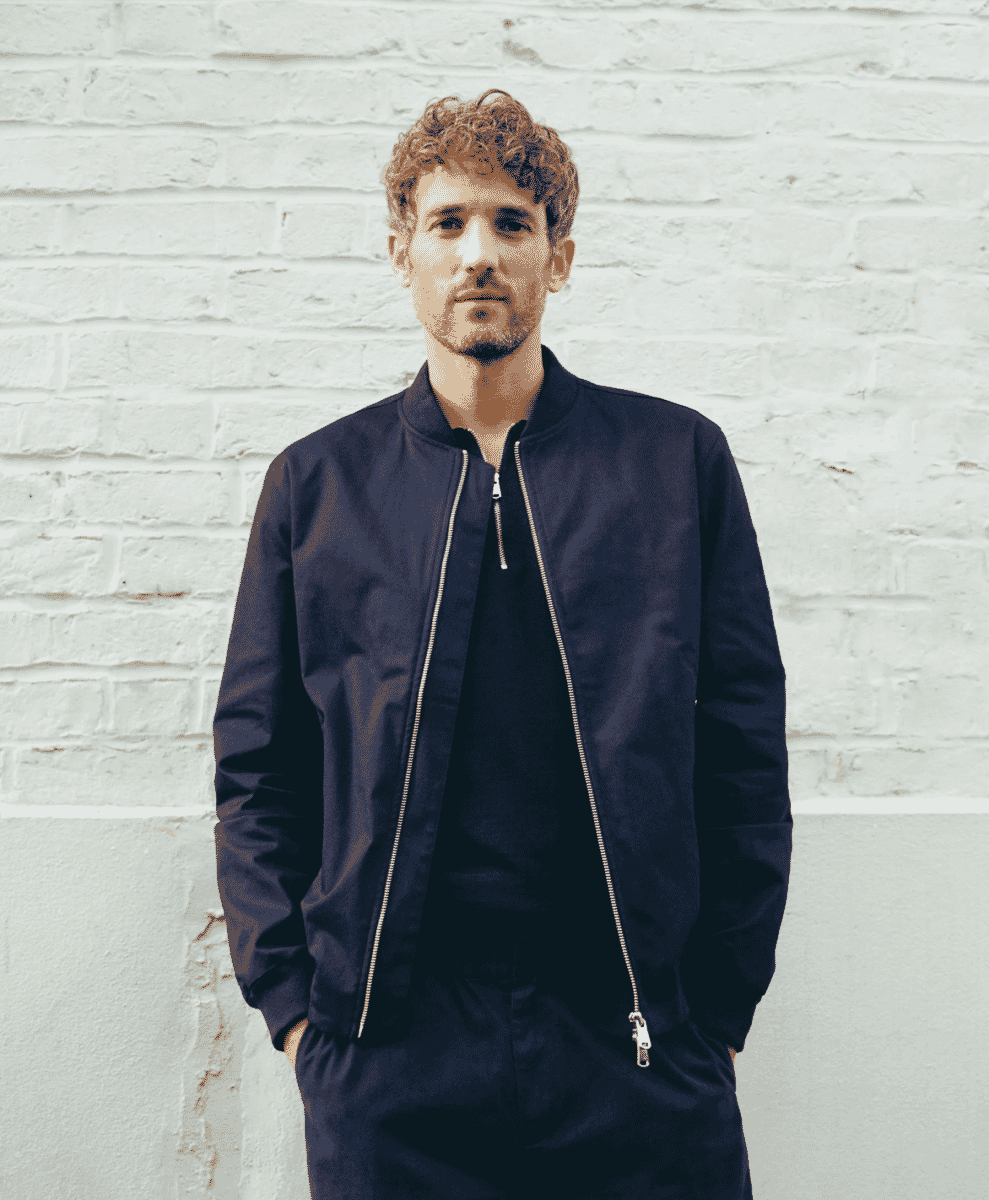
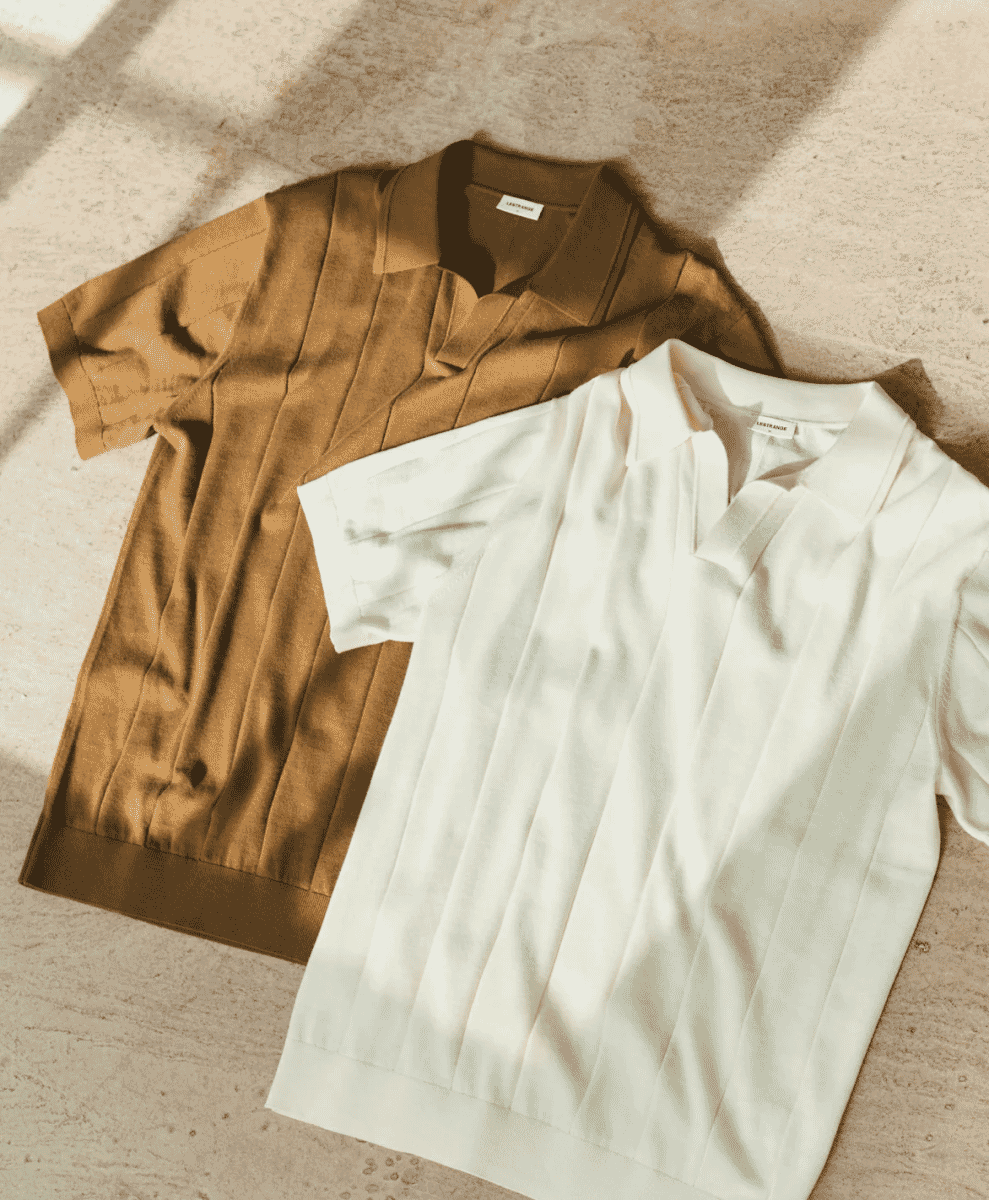
LESTRANGE
Topping the list of best British menswear brands is LESTRANGE. The London-based label is renowned for its carefully curated range of expertly-crafted seasonless essentials, which includes the likes of classic trousers, tailored T-shirts and timeless hoodies. In a bid to rail against fast fashion, L'Estrange limits its offering to core pieces that stand the test of time. Versatility and ease-of-wear are inherent in its pared-back collections, resulting in a selection of smart-casual staples that exude understated elegance.
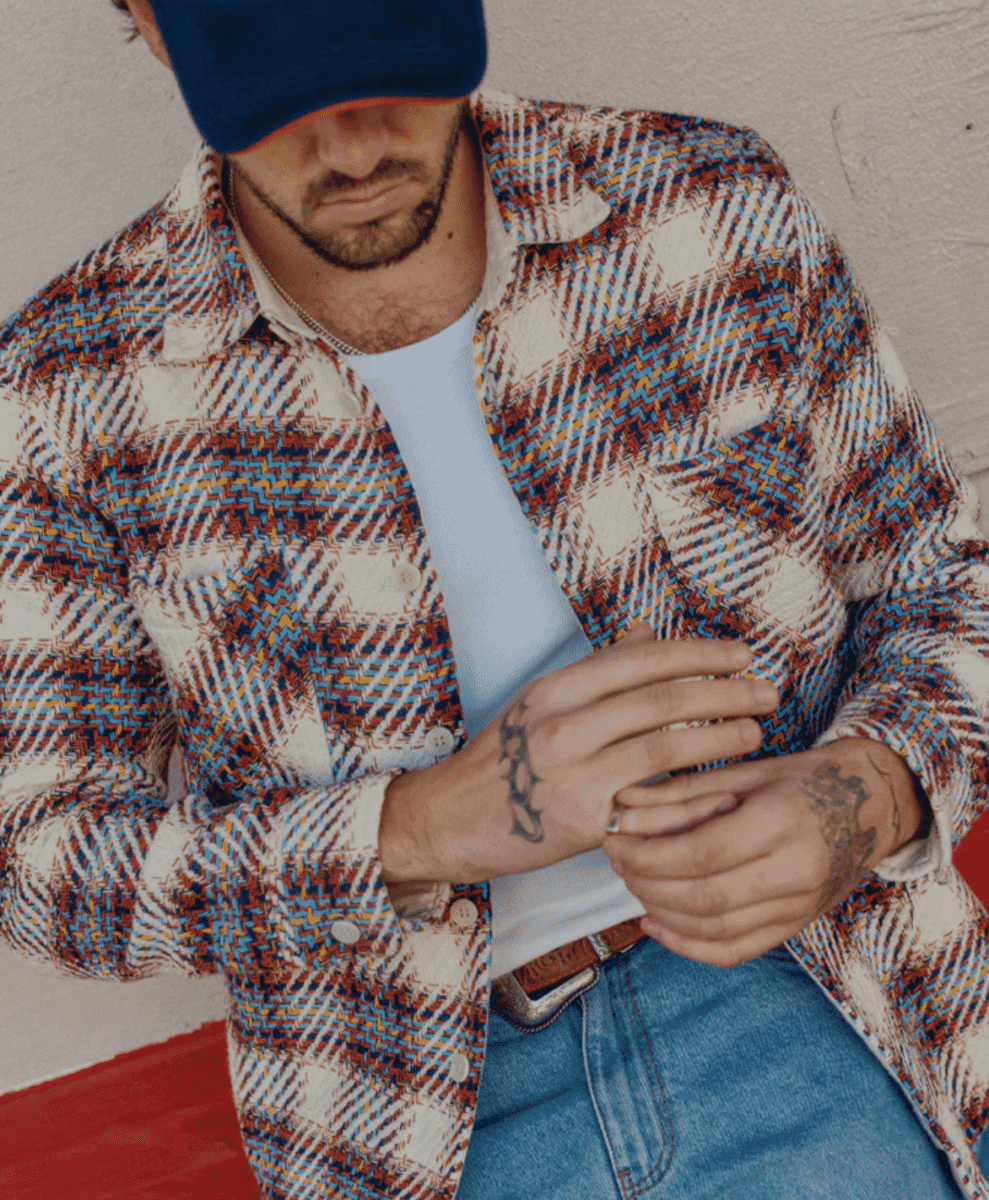
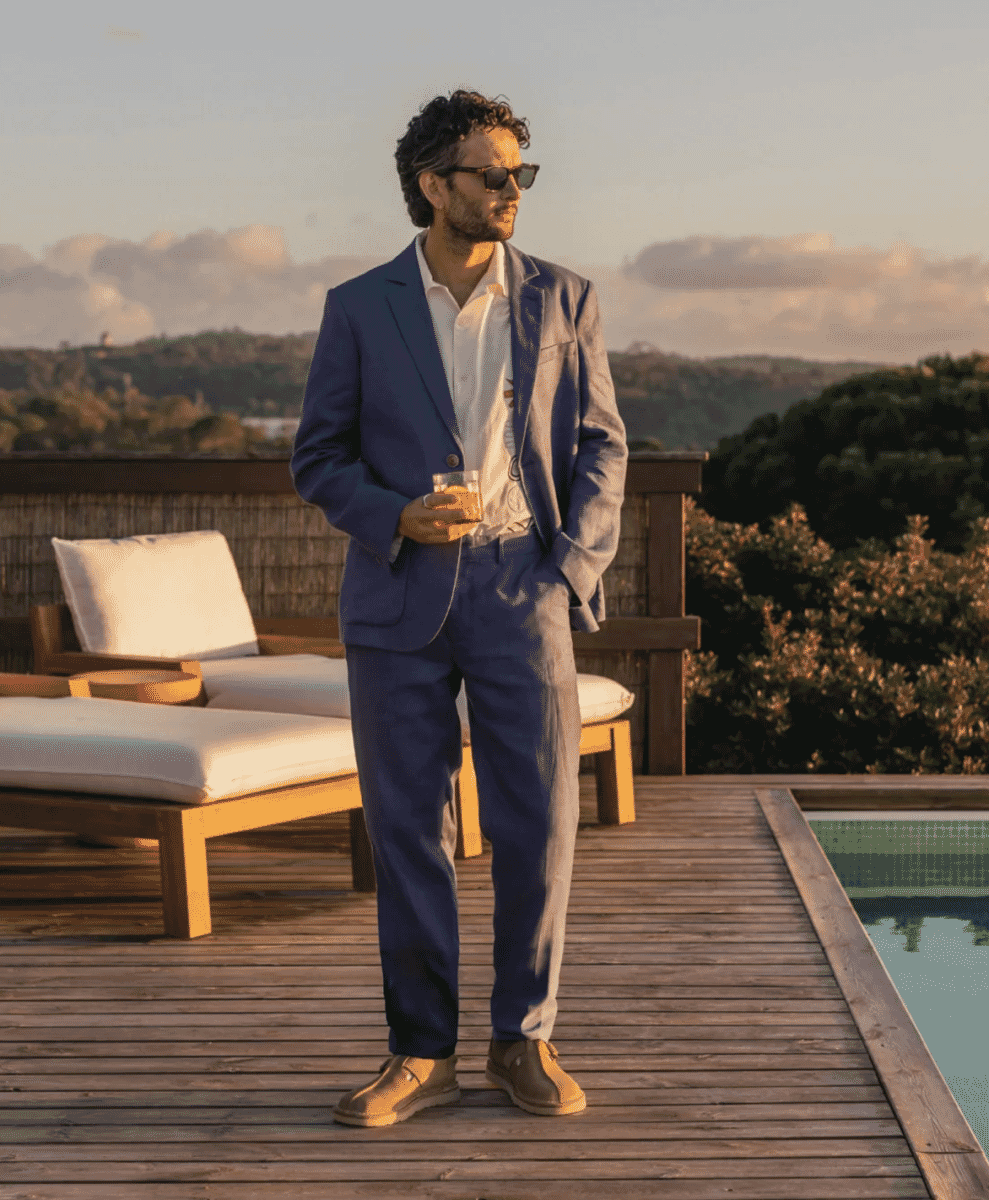
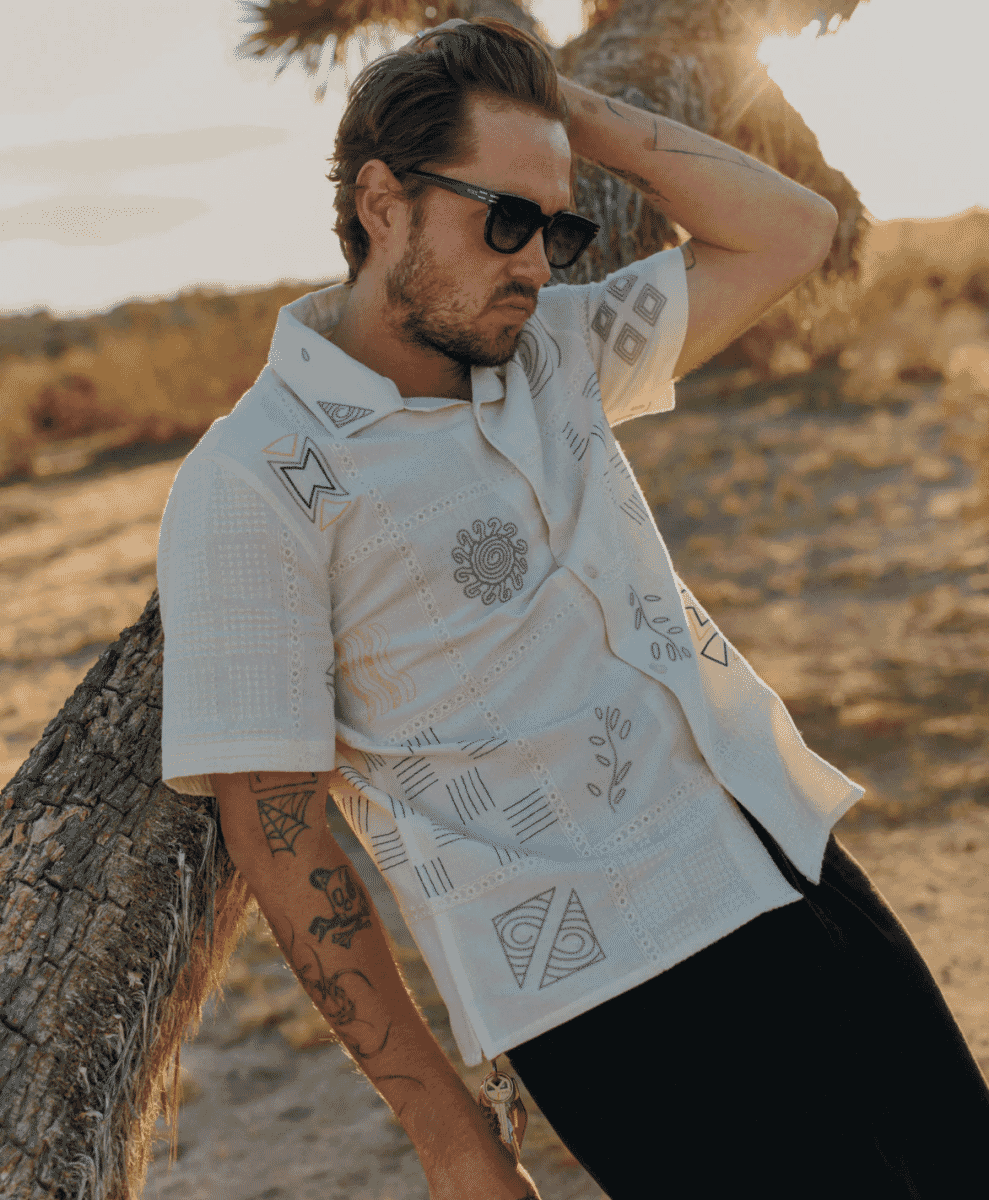
Wax London
Wax London was established with the aim of bringing the actual ‘making’ tradition of British outerwear back to the UK. The majority of its pieces are made in London, using sustainably produced fabrics and natural dyeing techniques. Expect ultra-versatile utilitarian-style staples that will form the backbone of your everyday uniform – from workwear-inspired chore jackets to essential tees. These are garments designed to transcend seasons, made to be worn time and again for years to come.
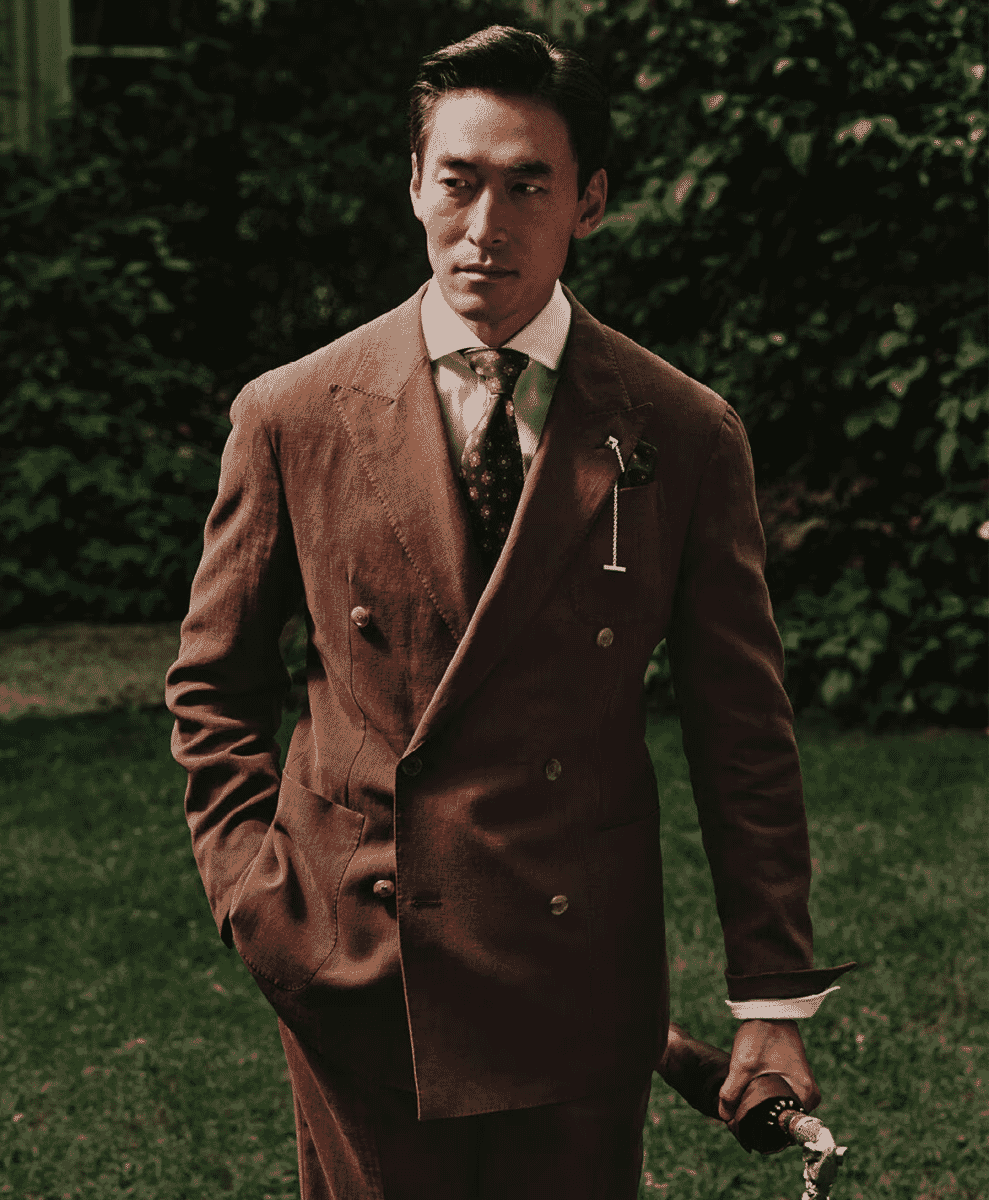
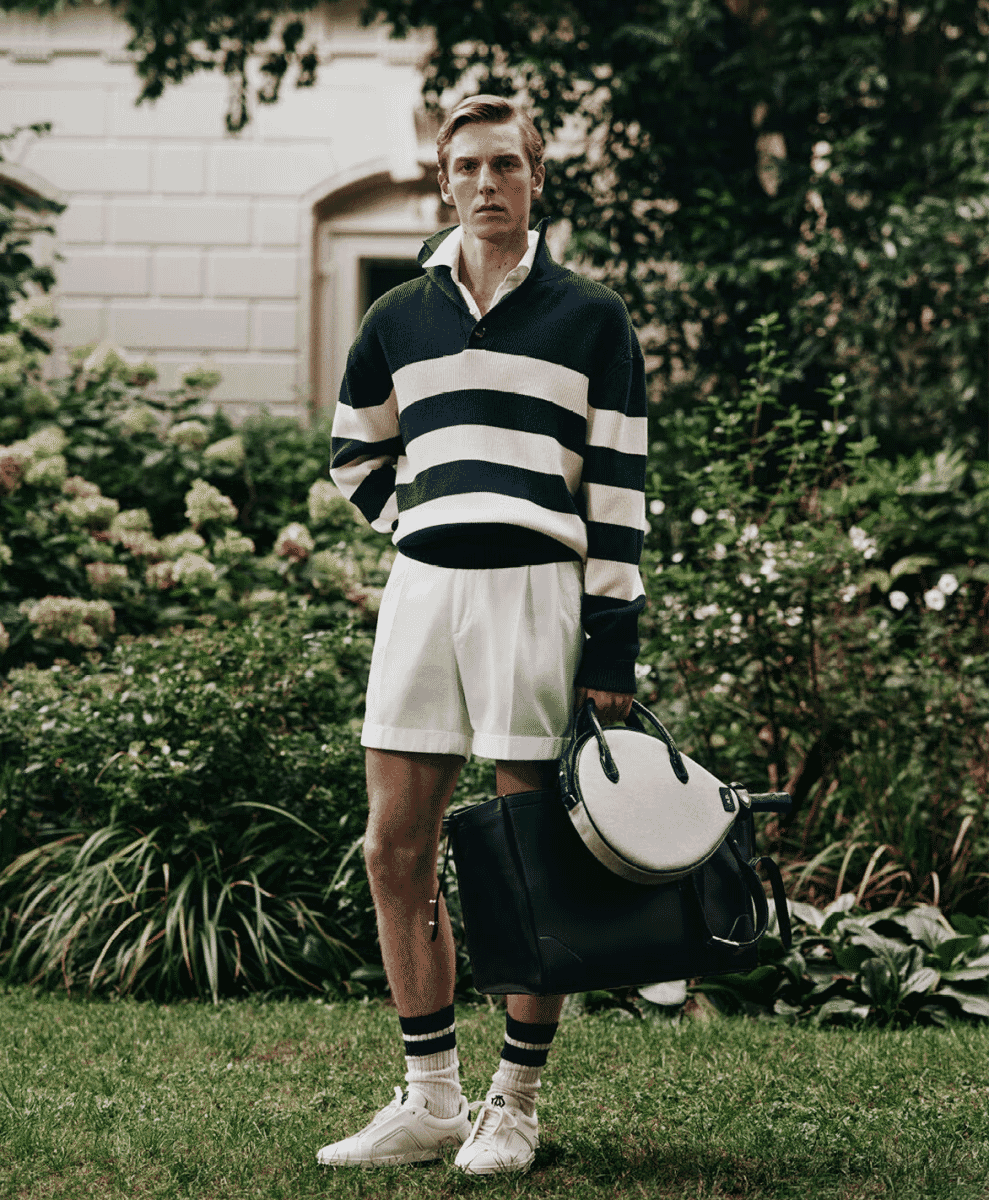
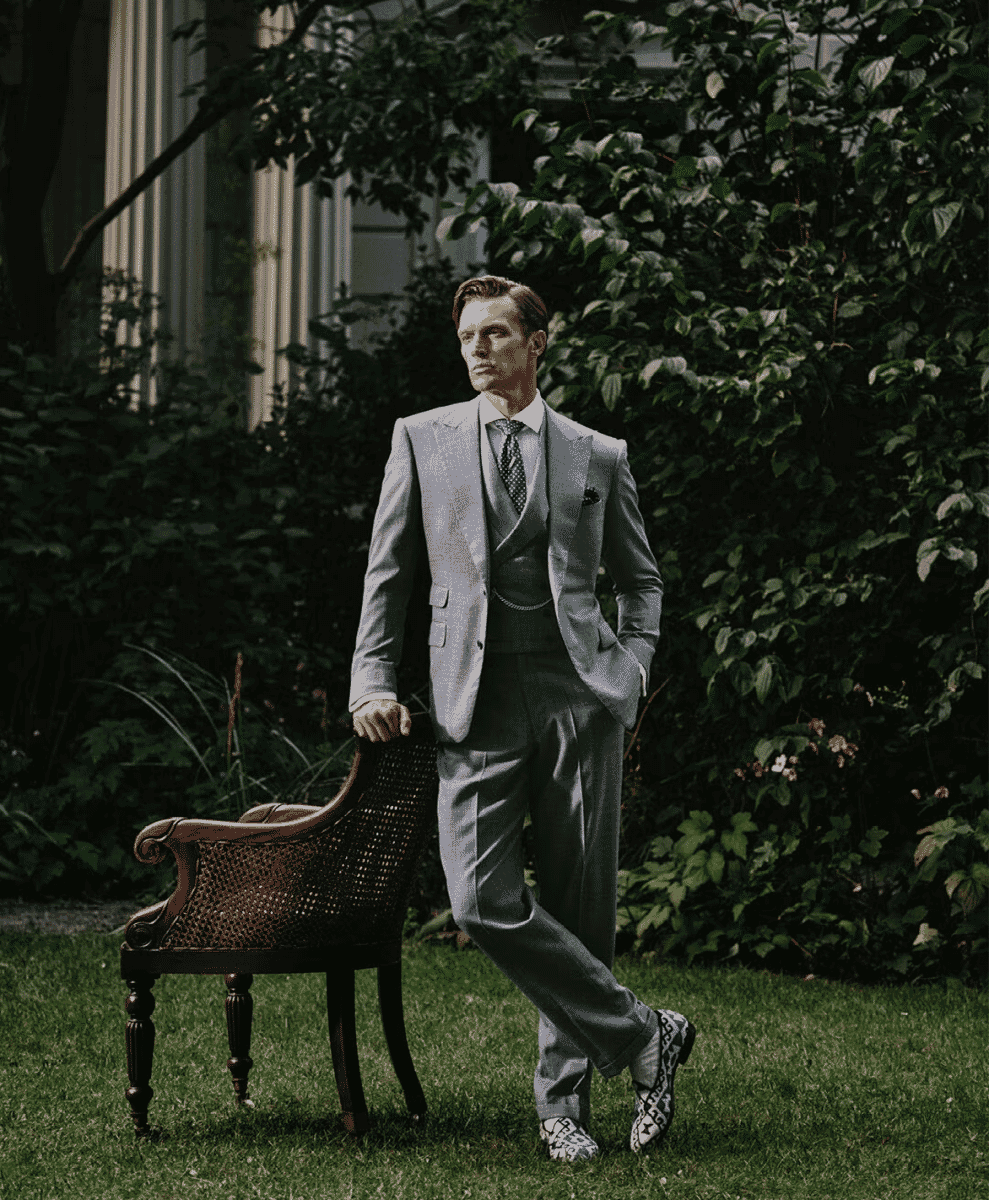
Dunhill
Alfred Dunhill began in motoring accessories but evolved into a full expression of British masculine elegance. It built its reputation on refined leather goods, luxurious outerwear, and razor-sharp tailoring. Today, Dunhill represents the kind of quiet confidence that doesn’t need to shout. Think cashmere car coats, supple briefcases, and off-duty tailoring for the international man who values understatement over flash. It’s also one of the few luxury brands with a deep London heritage and a true gentlemanly sensibility.
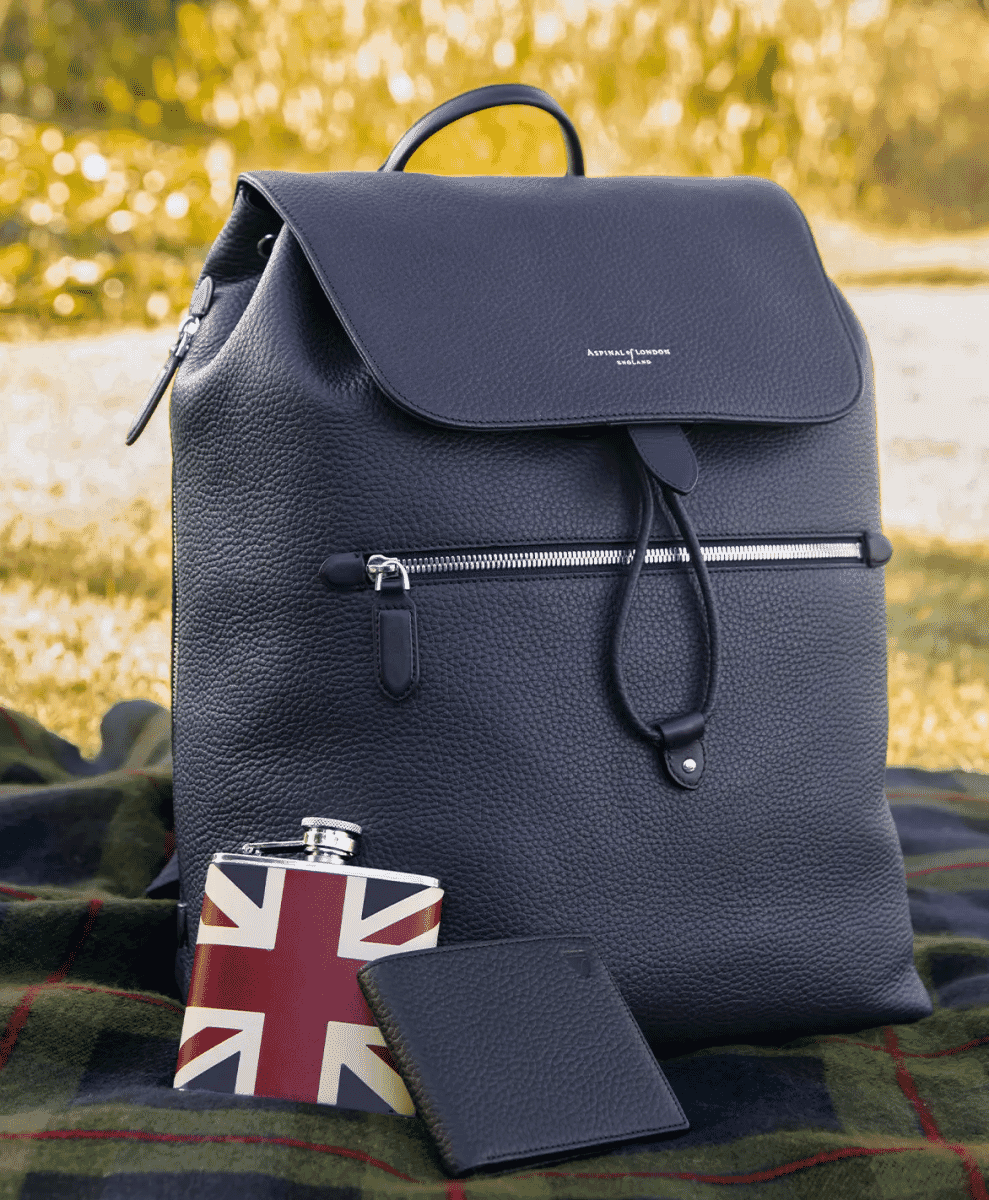
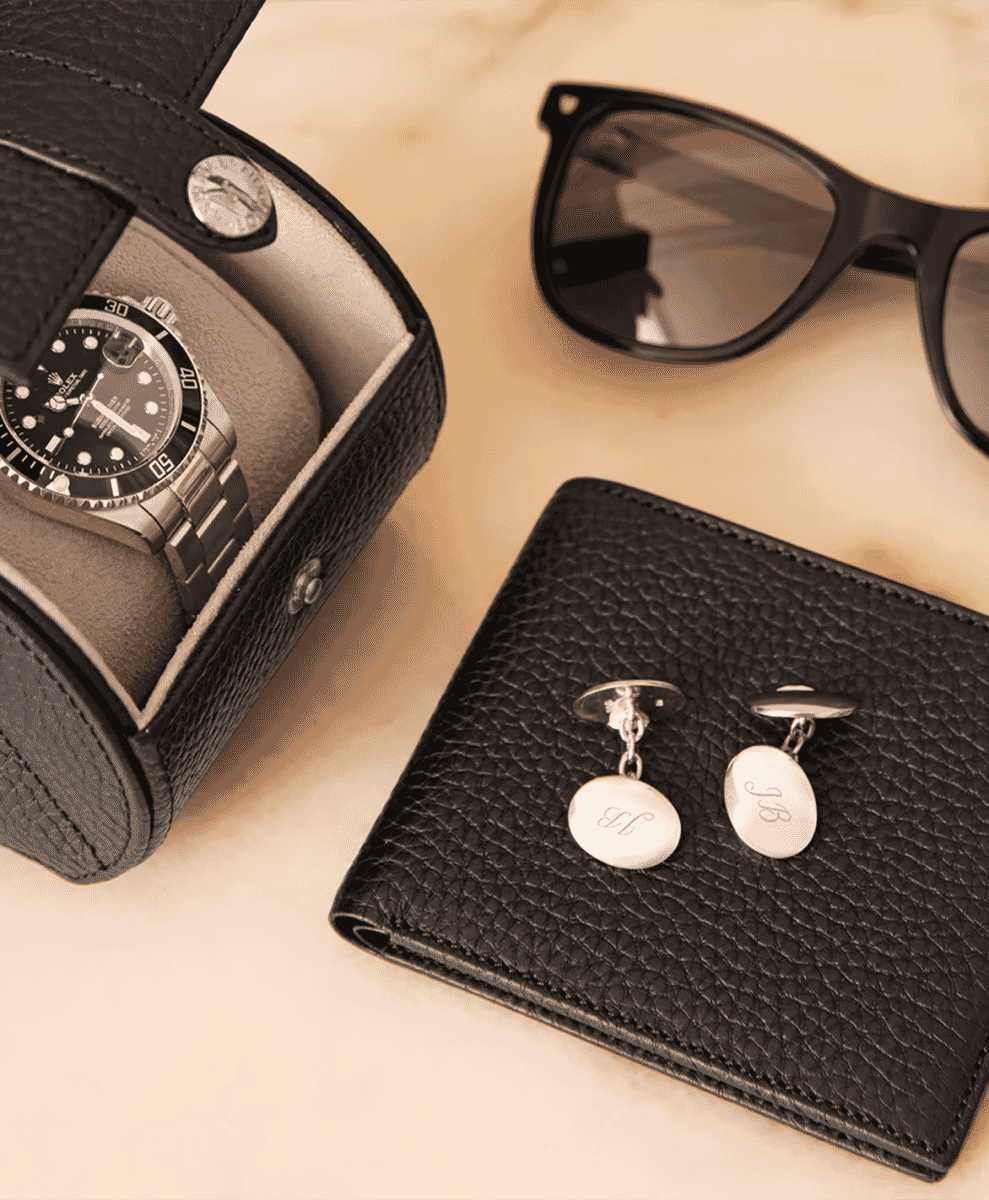
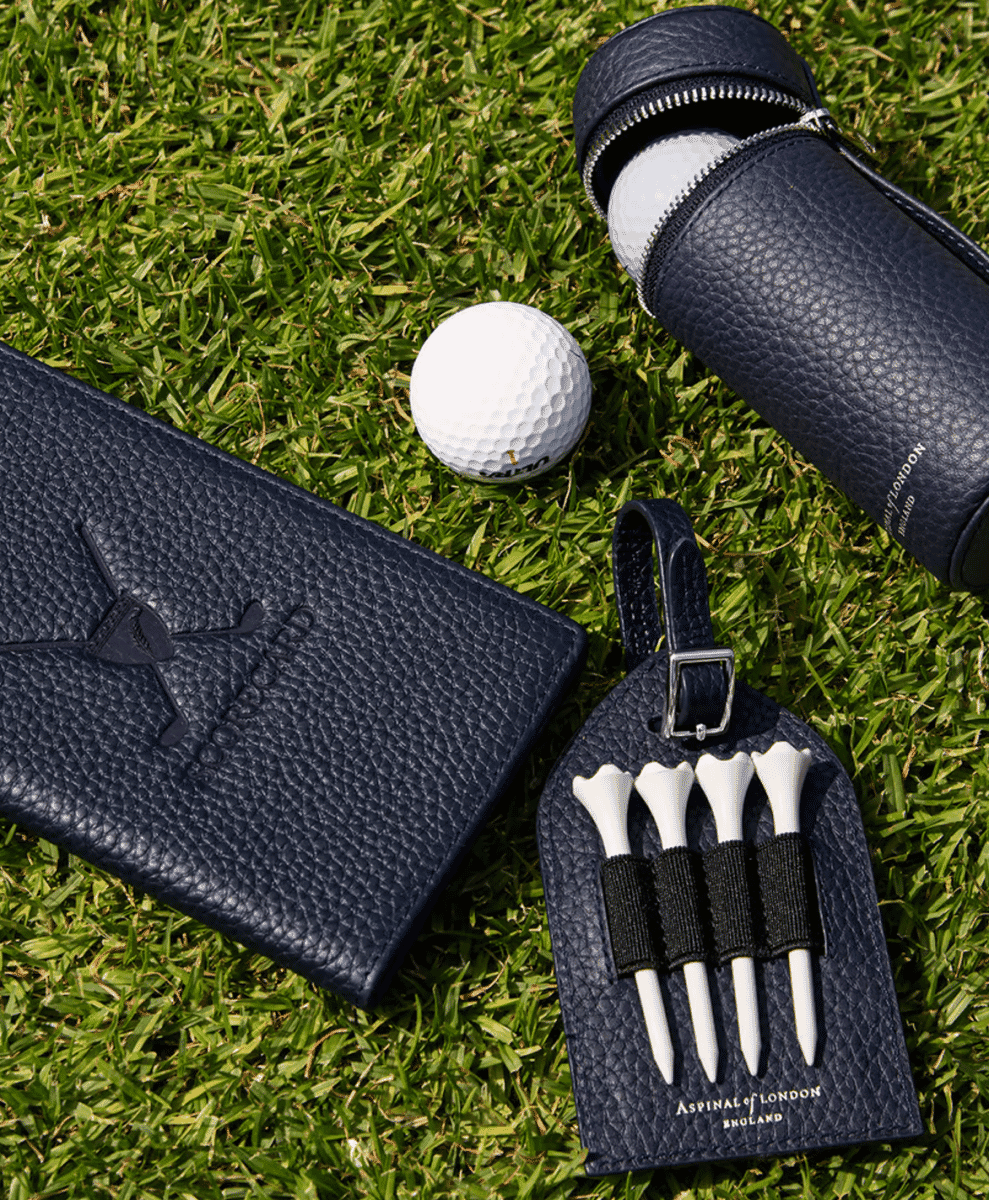
Aspinal of London
Aspinal is best known for its structured leather goods – briefcases, holdalls, wallets and accessories – all designed in West Sussex and made with full-grain leather. It walks the line between traditional British luxury and modern lifestyle branding, offering timeless silhouettes with a polished finish. While its designs are relatively conservative, the quality of materials and construction is hard to fault. If you’re after a work bag or travel wallet that looks the part in a City boardroom, Aspinal delivers.
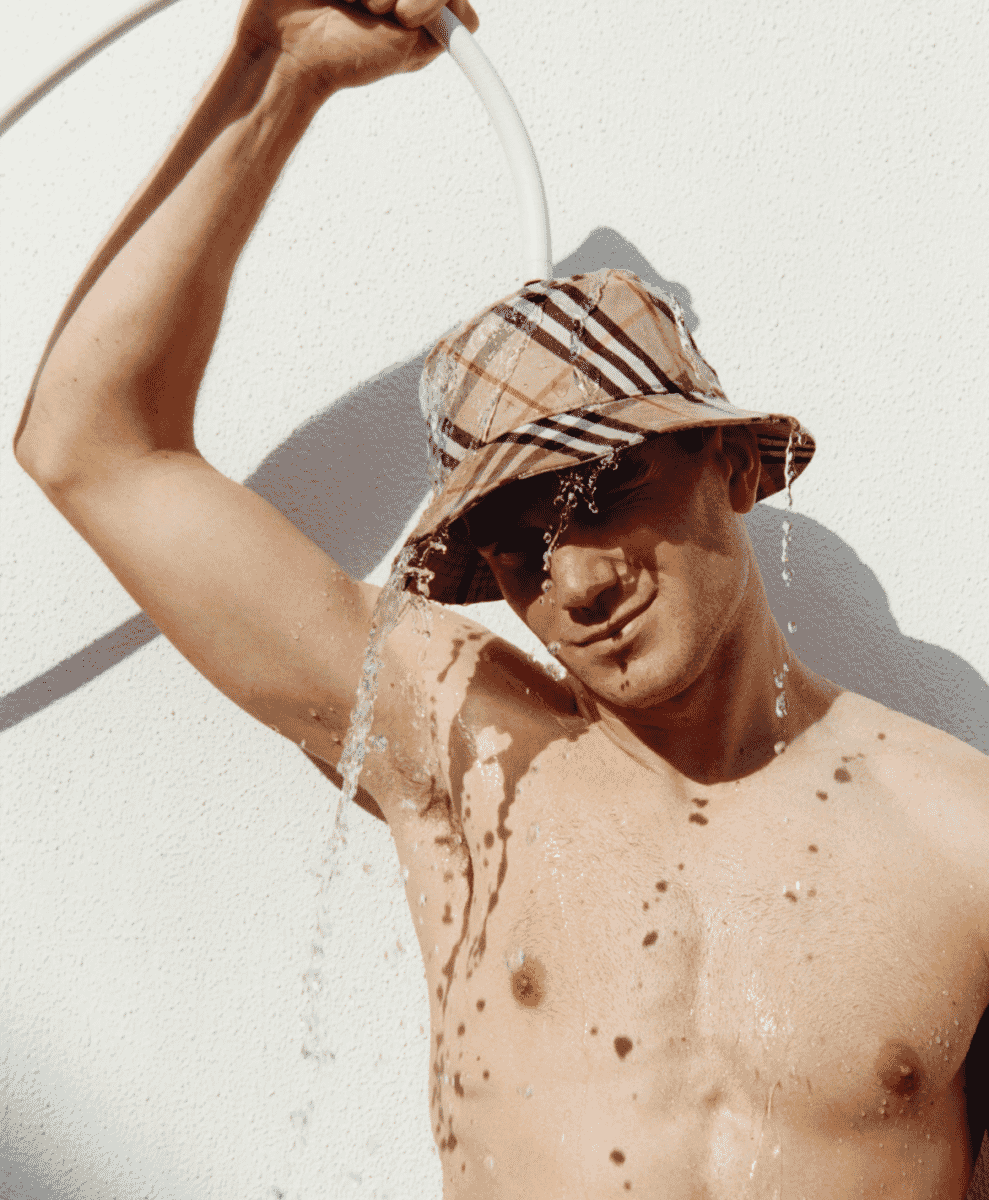
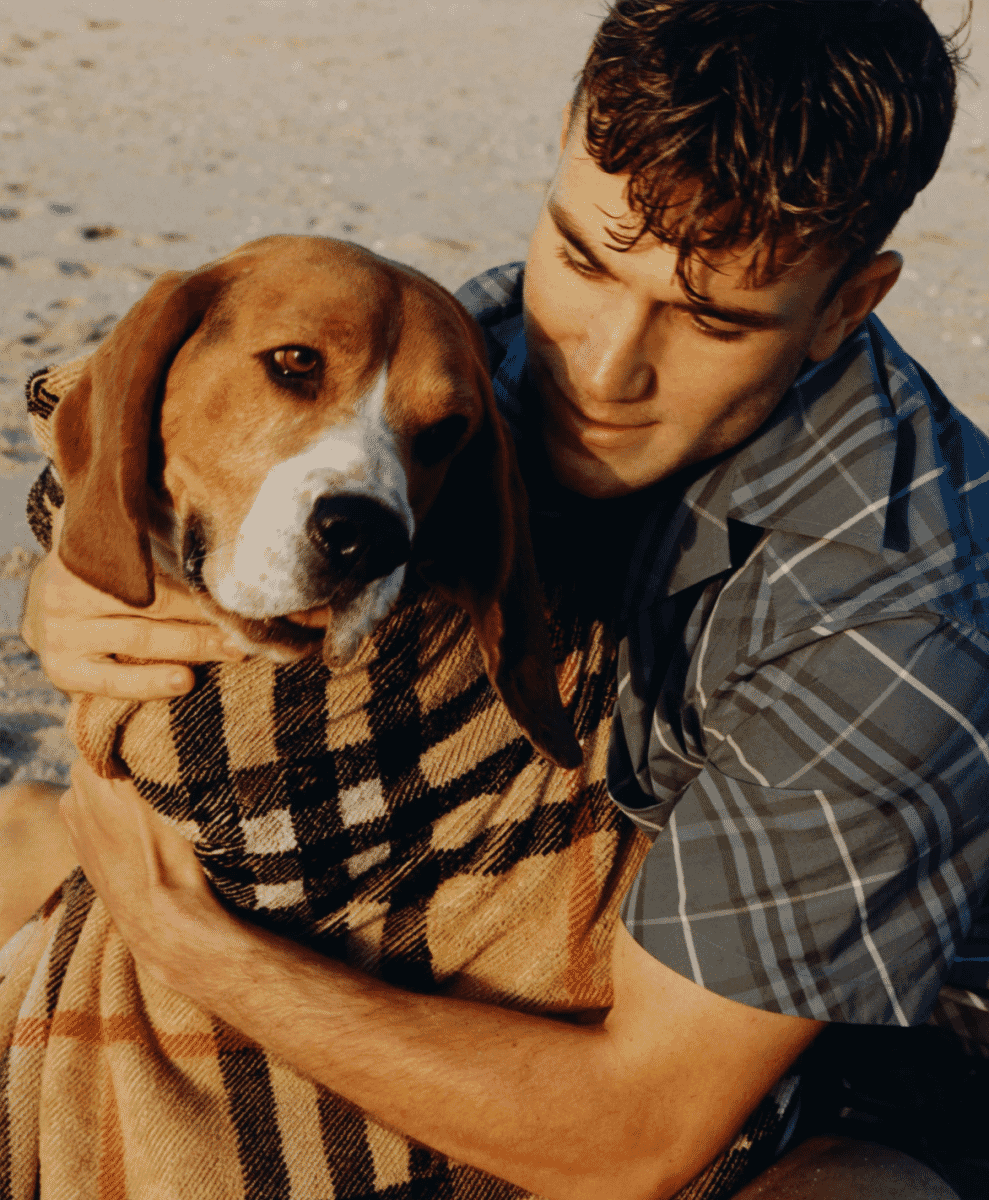
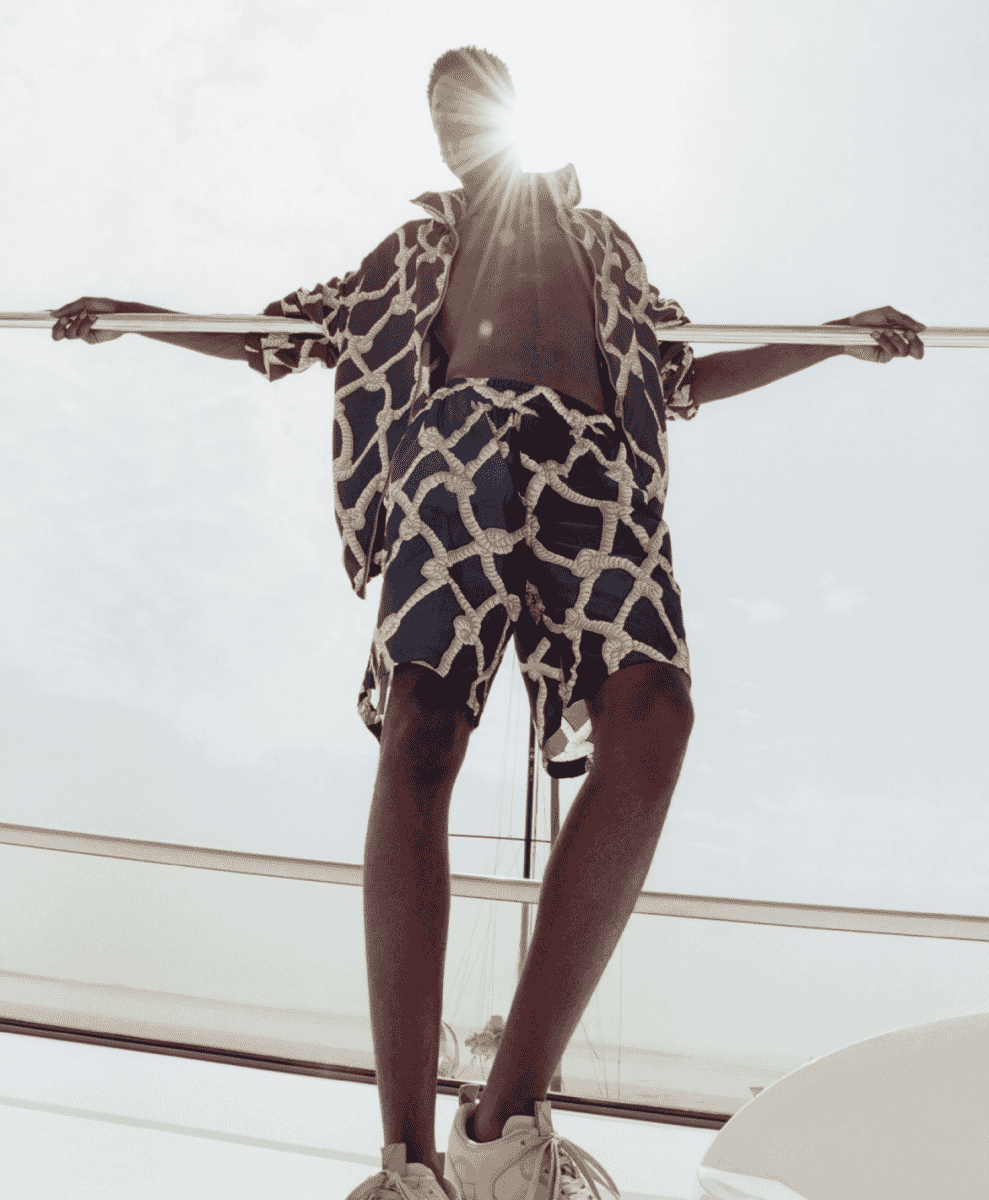
Burberry
Few British brands are as globally recognisable as Burberry. Its trench coat, created for British officers in WWI, remains its most iconic garment – but the brand’s reach extends well beyond outerwear. Known for technical innovation (gabardine was a game changer) and signature check patterns, Burberry has walked the line between tradition and reinvention, with varying results. Today, it combines high fashion credibility with deep heritage, offering both luxury staples and more directional, street-influenced pieces under its seasonal collections.



Barbour
Barbour’s waxed jackets are the uniform of the British countryside, but their appeal stretches far beyond muddy fields and pheasant shoots. The brand’s classic Bedale and Beaufort jackets are still handmade in South Shields, with a loyal following that includes everyone from country gentry to Shoreditch creatives. What sets Barbour apart is its utility – weatherproof, hardwearing, and repairable – with just enough nostalgia baked in. Collaborations with fashion-forward brands have helped maintain its relevance without diluting its DNA.
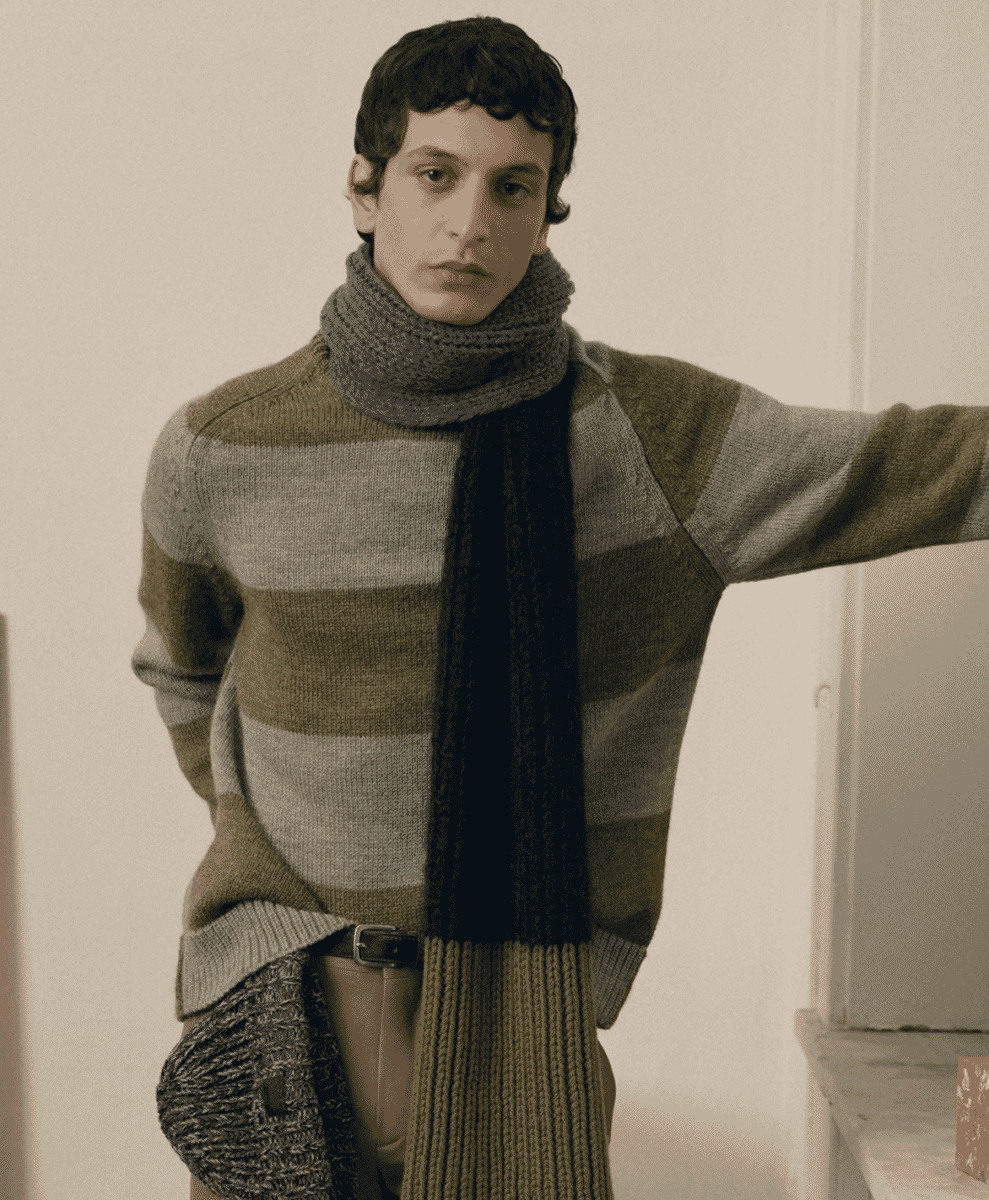
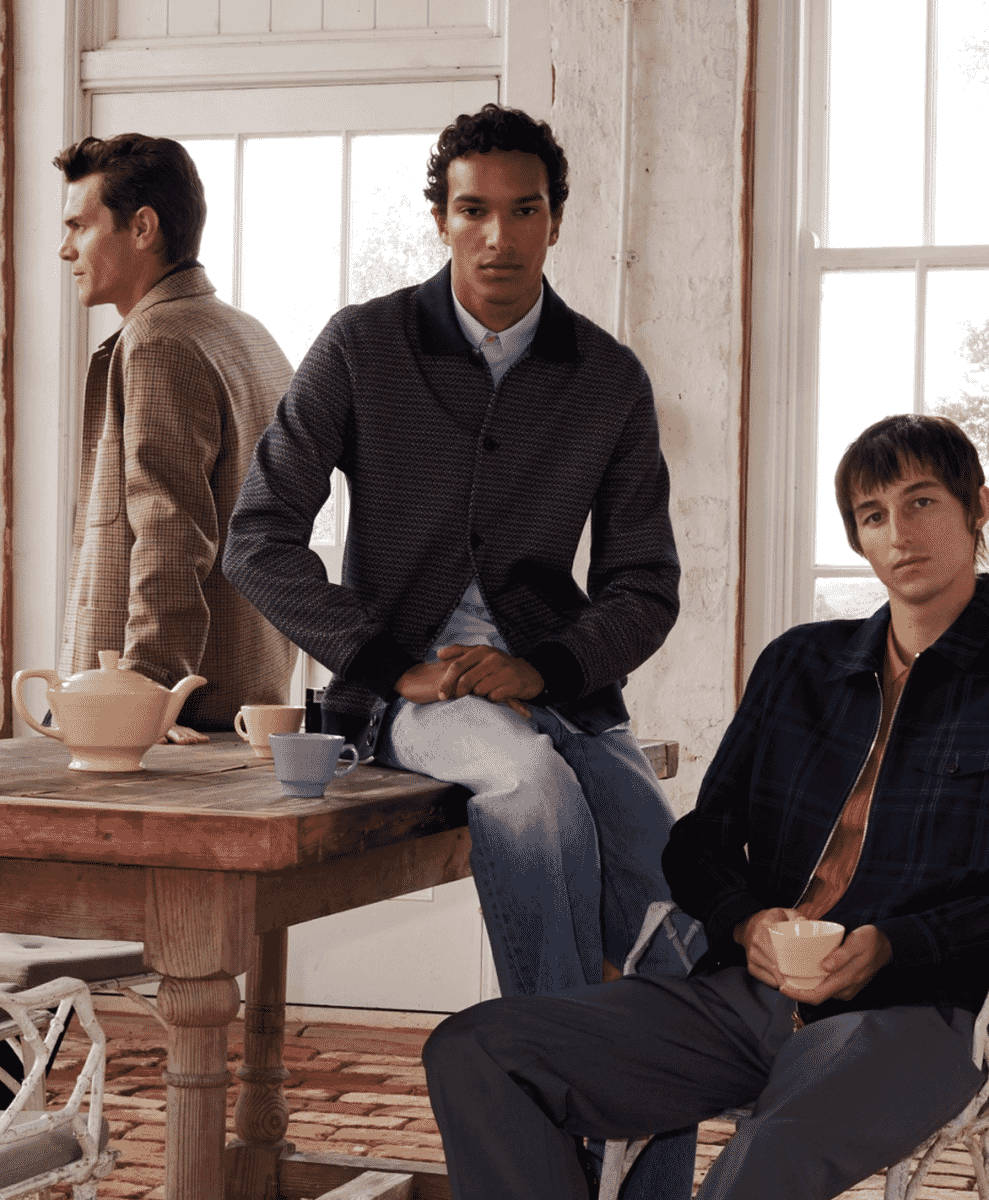
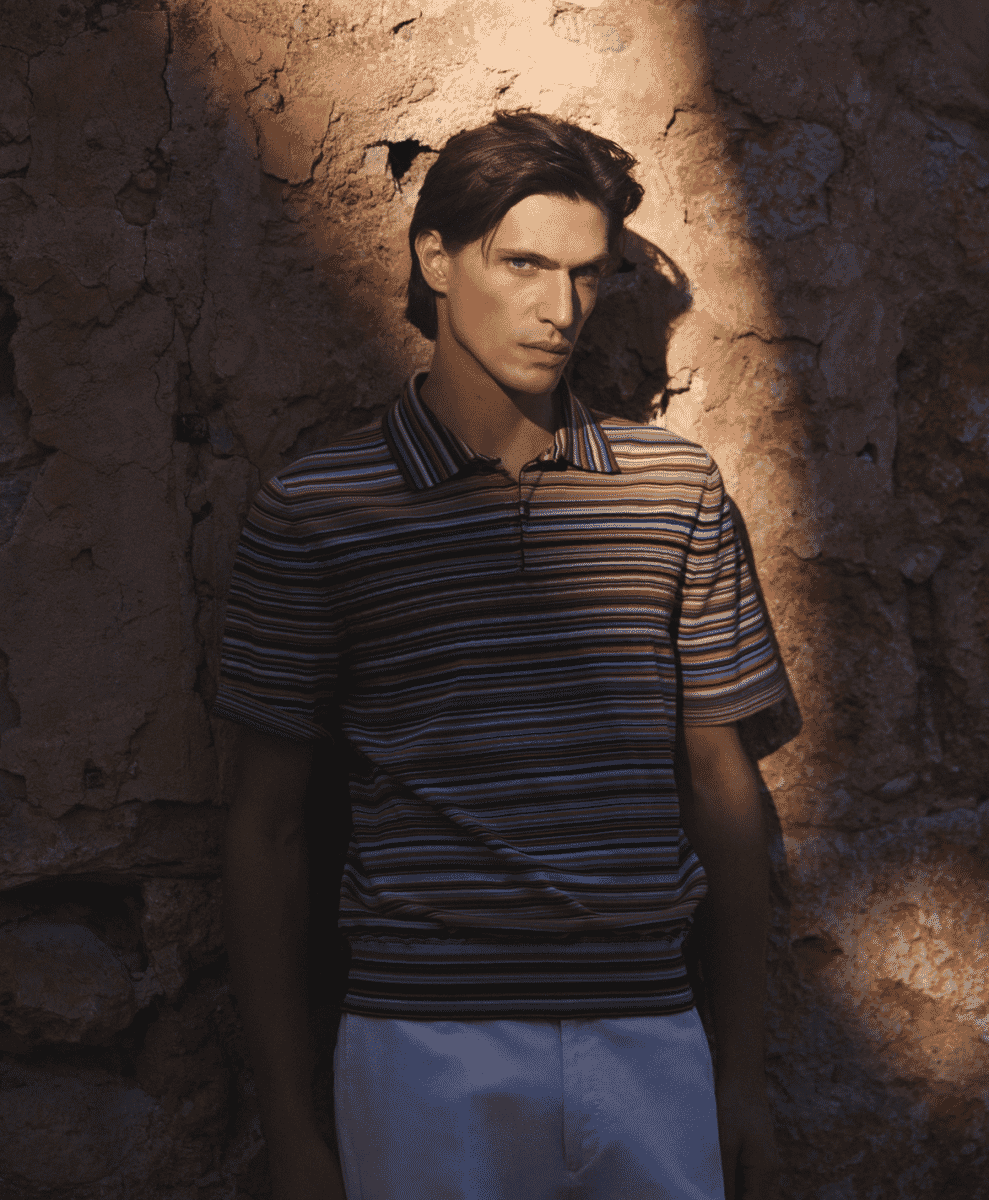
Paul Smith
Paul Smith brought humour, eccentricity and a touch of surrealism to British tailoring. His motto – “classic with a twist” – still defines the brand, from suits lined with photographic prints to subtle details like colourful buttonholes and striped linings. Paul Smith managed to make tailoring feel accessible without losing quality, and has always been adept at mixing Savile Row tradition with playful irreverence. His influence on British menswear is hard to overstate – not just in design, but in attitude.
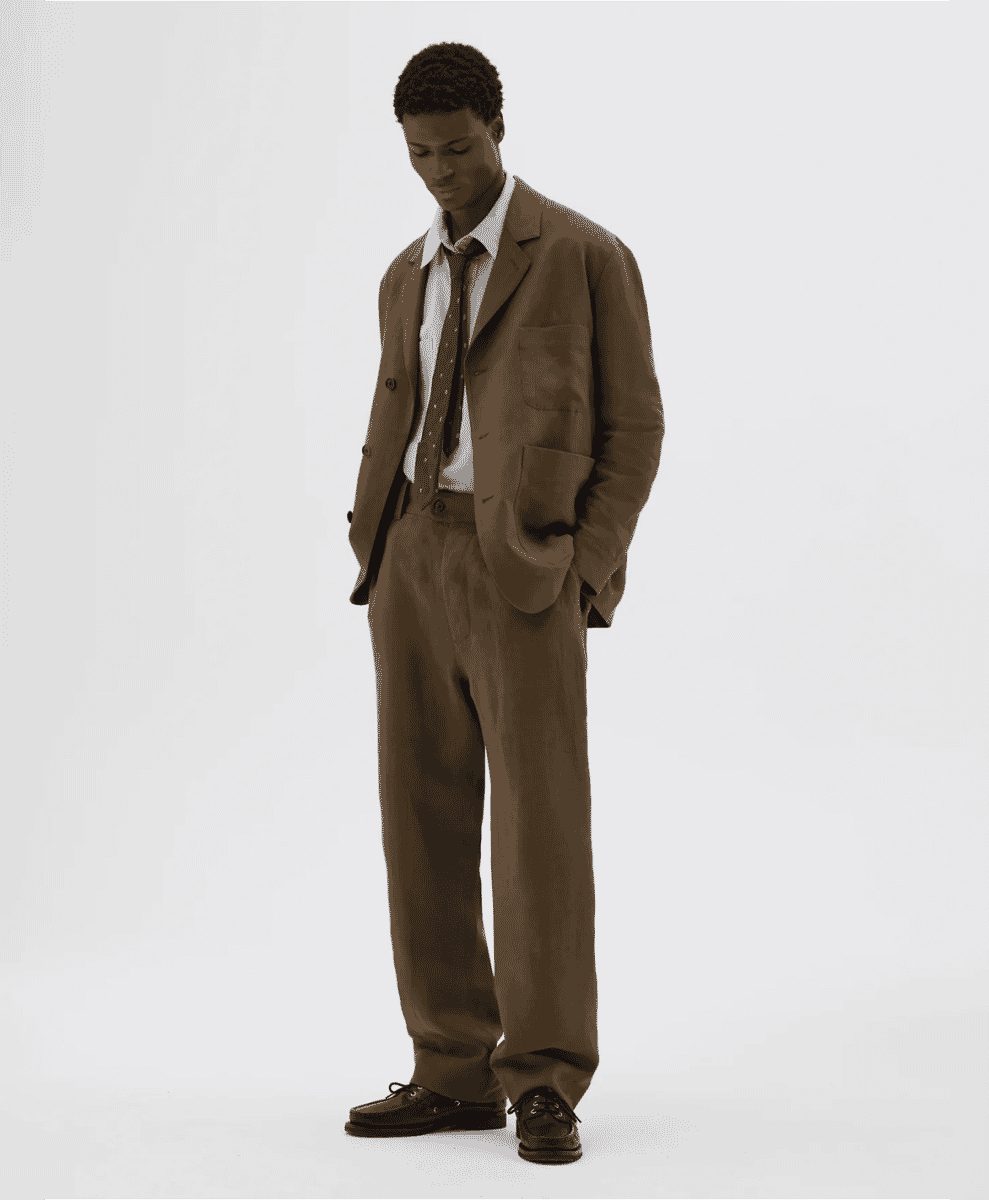
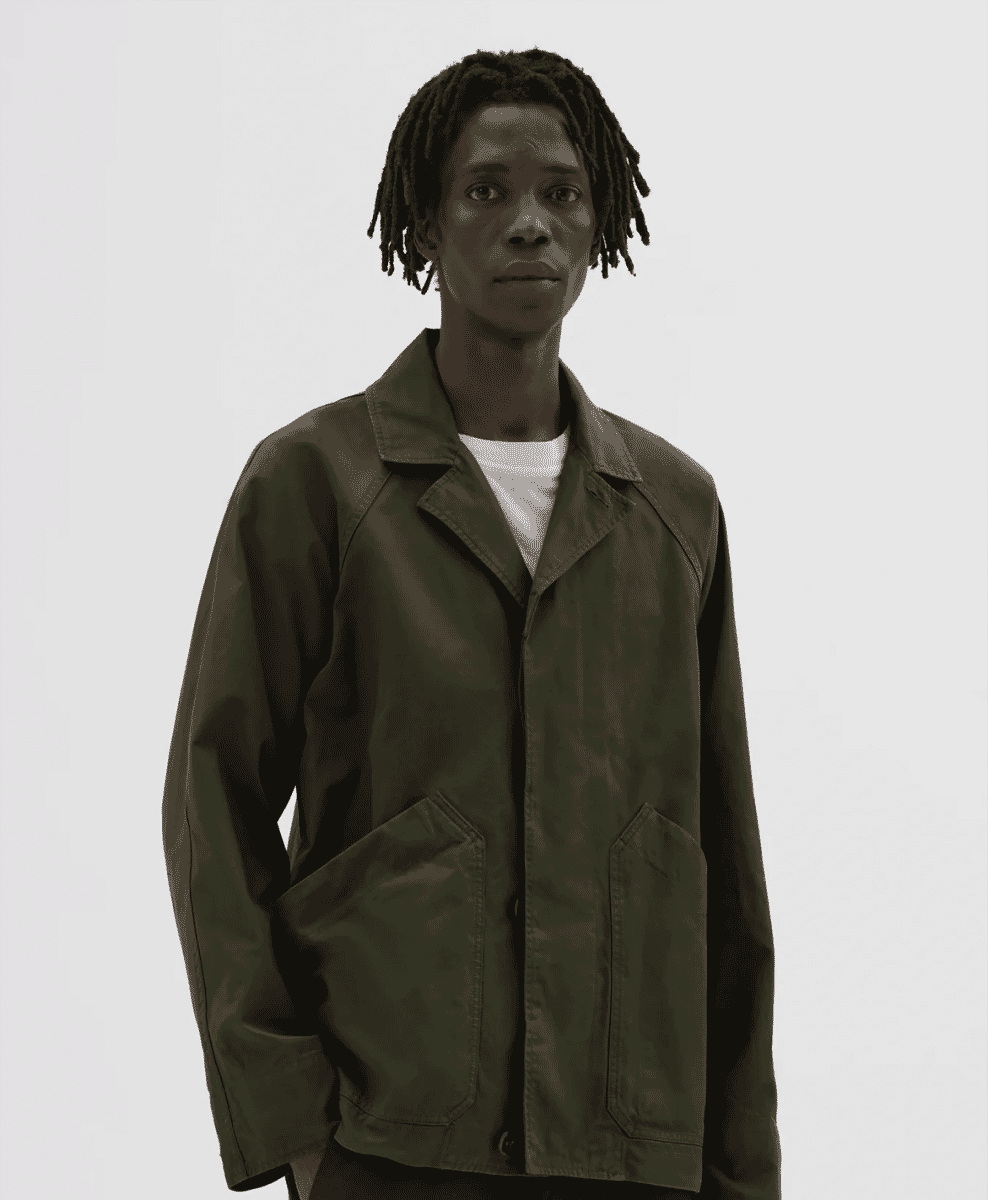
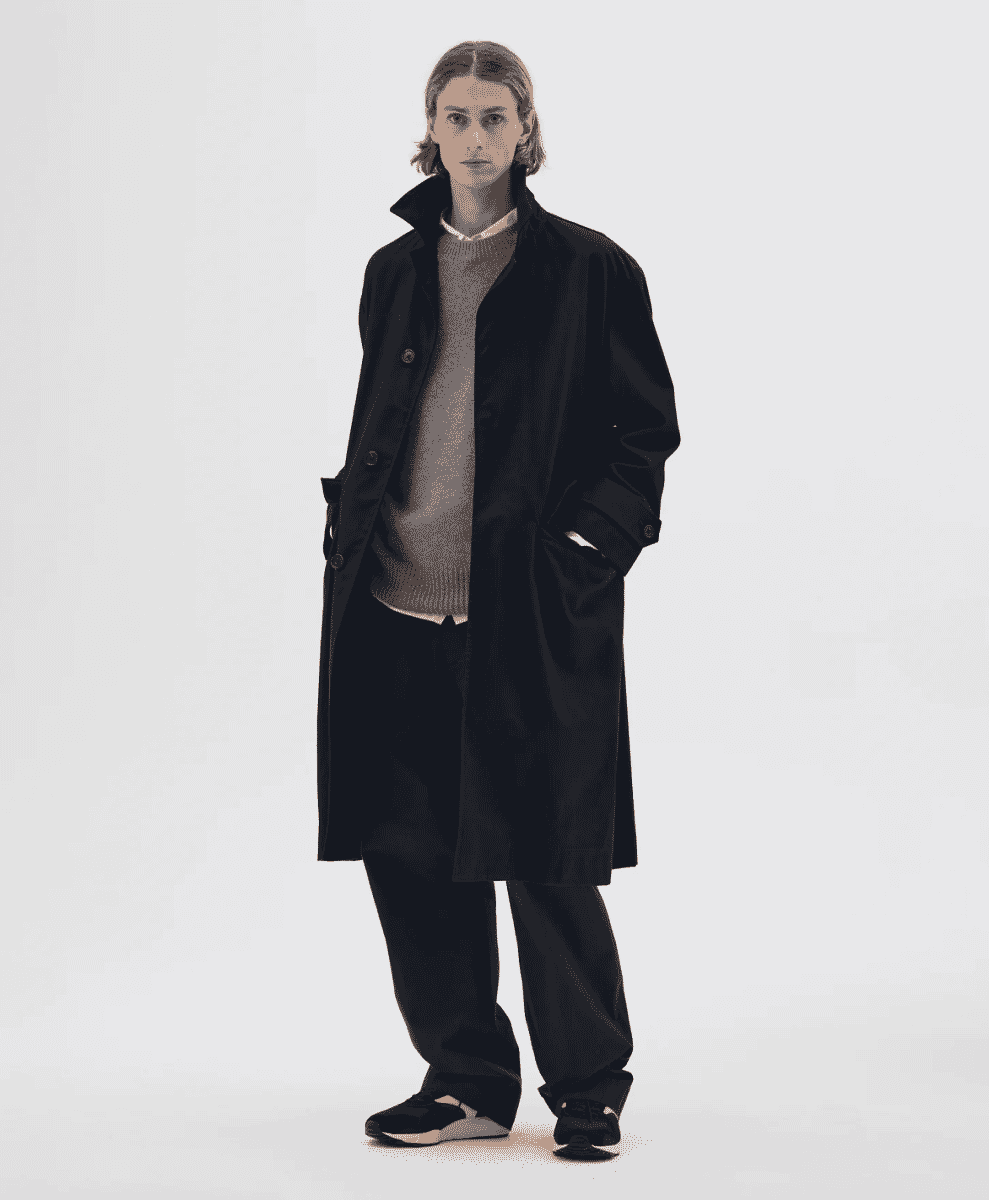
Margaret Howell
Margaret Howell’s clothes are deceptively simple: relaxed shirts, boxy knits, and softly structured jackets in muted tones. But look closer and you’ll find meticulous detailing, premium fabrics and subtle references to British utility and mid-century design. Howell’s aesthetic is grounded in restraint and timelessness – anti-trend by design. Her loyal fanbase, which includes architects, designers and academics, appreciate the craftsmanship and integrity of her garments. It’s the thinking man’s uniform: refined, modest, and made to last for decades.
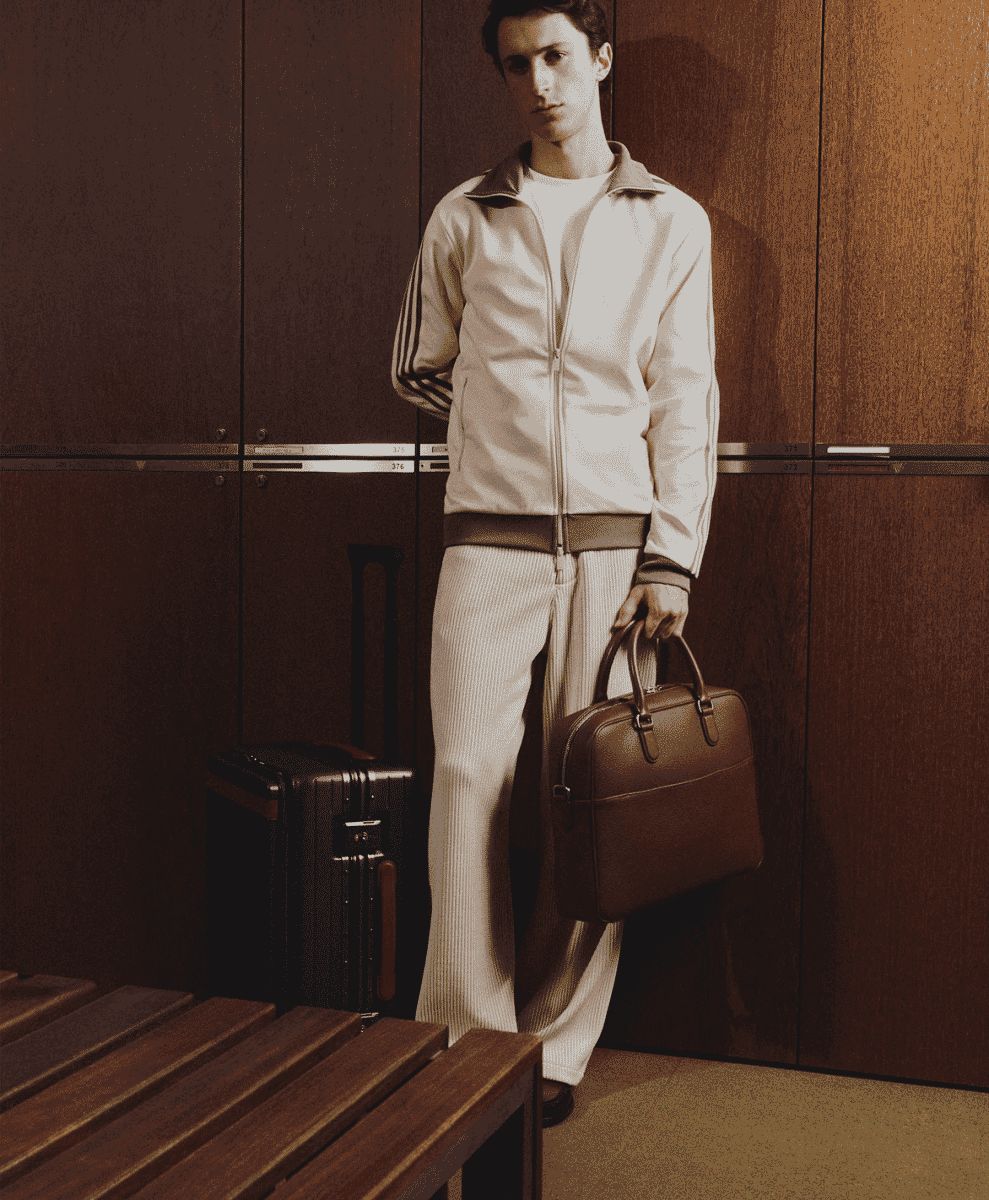


Carl Friedrik
Though founded by two Swedish brothers, Carl Friedrik is very much embedded in the London menswear world – its sleek, functional leather bags for men appeal to the modern traveller or tech-conscious commuter. The briefcases, backpacks and luggage are made in Europe using Italian leather and durable hardware. Designs are stripped back – no fuss, just clean lines and considered compartments. Carl Friedrik’s appeal lies in its clarity of purpose – accessories that feel grown-up, minimal and quietly luxurious, without the legacy-brand markup.
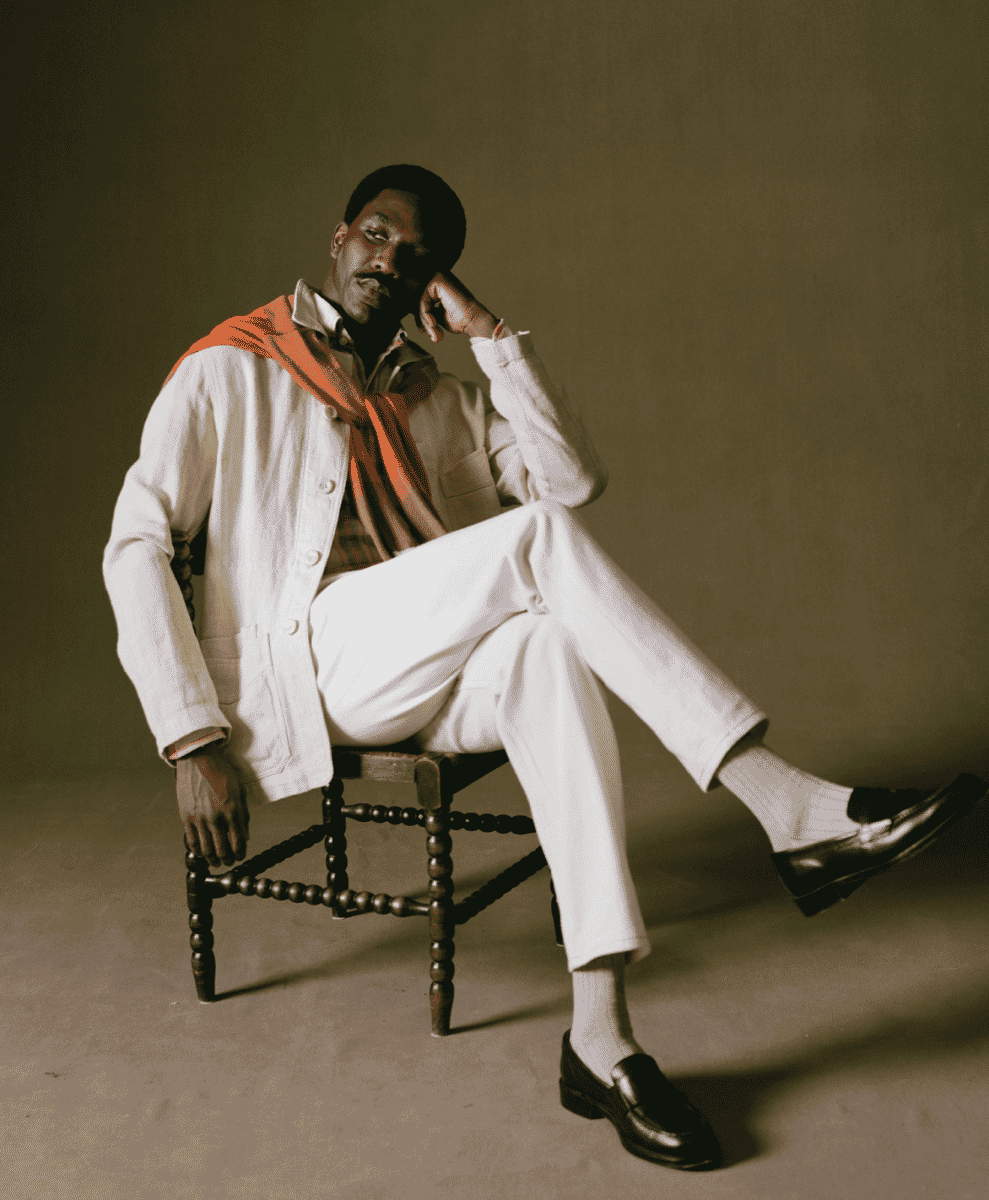
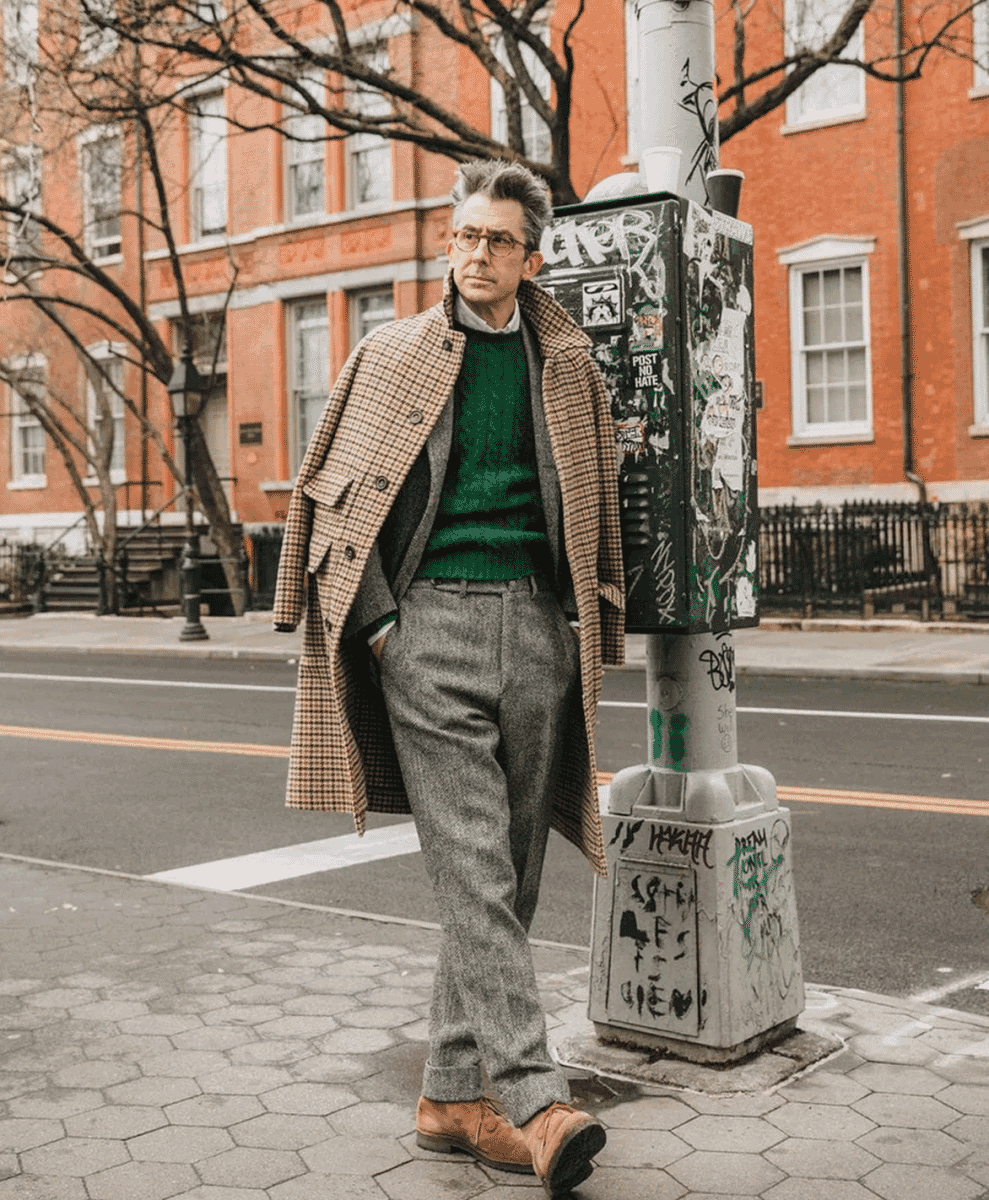
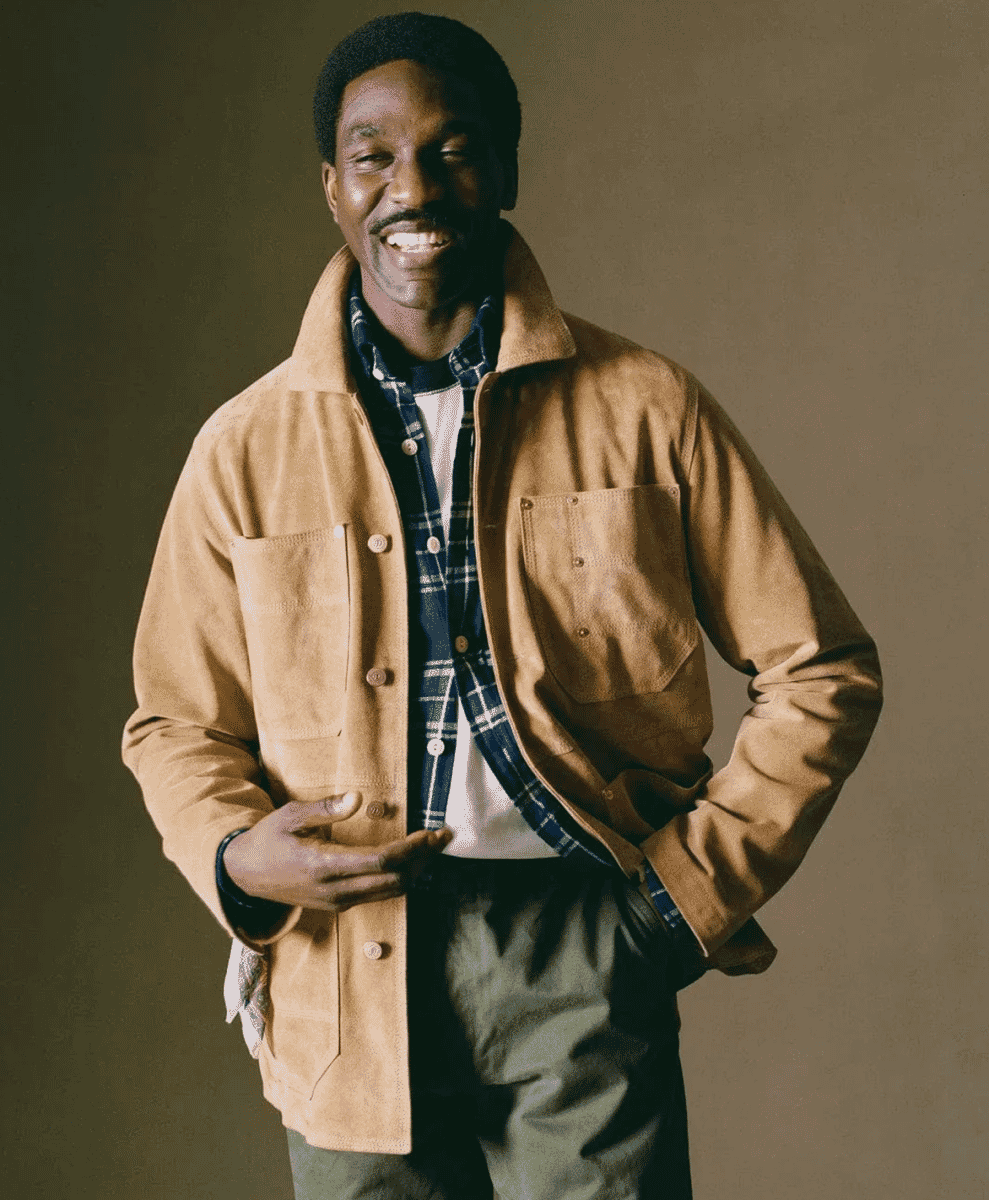
Drake’s
Drake’s started in the 1970s as a maker of ties and pocket squares, catering to the tailoring crowd. Since then, it has evolved into a full menswear brand that blends British elegance with a distinct Ivy League sensibility. Known for its soft tailoring, button-down shirts, and playful use of colour and pattern, Drake’s appeals to modern dressers who value quality but don’t want to look stuffy. It’s an ideal entry point into grown-up dressing with personality and ease.
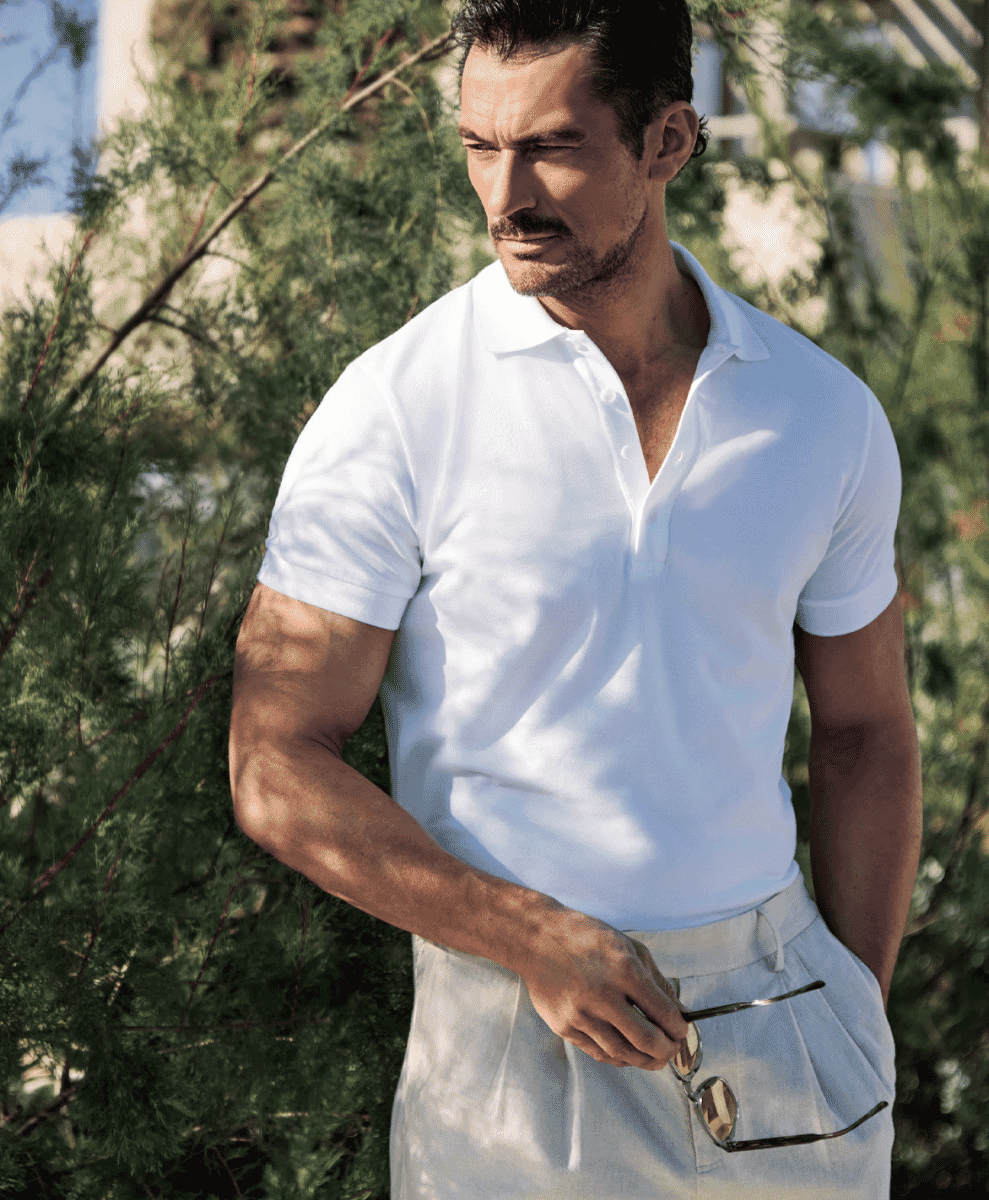
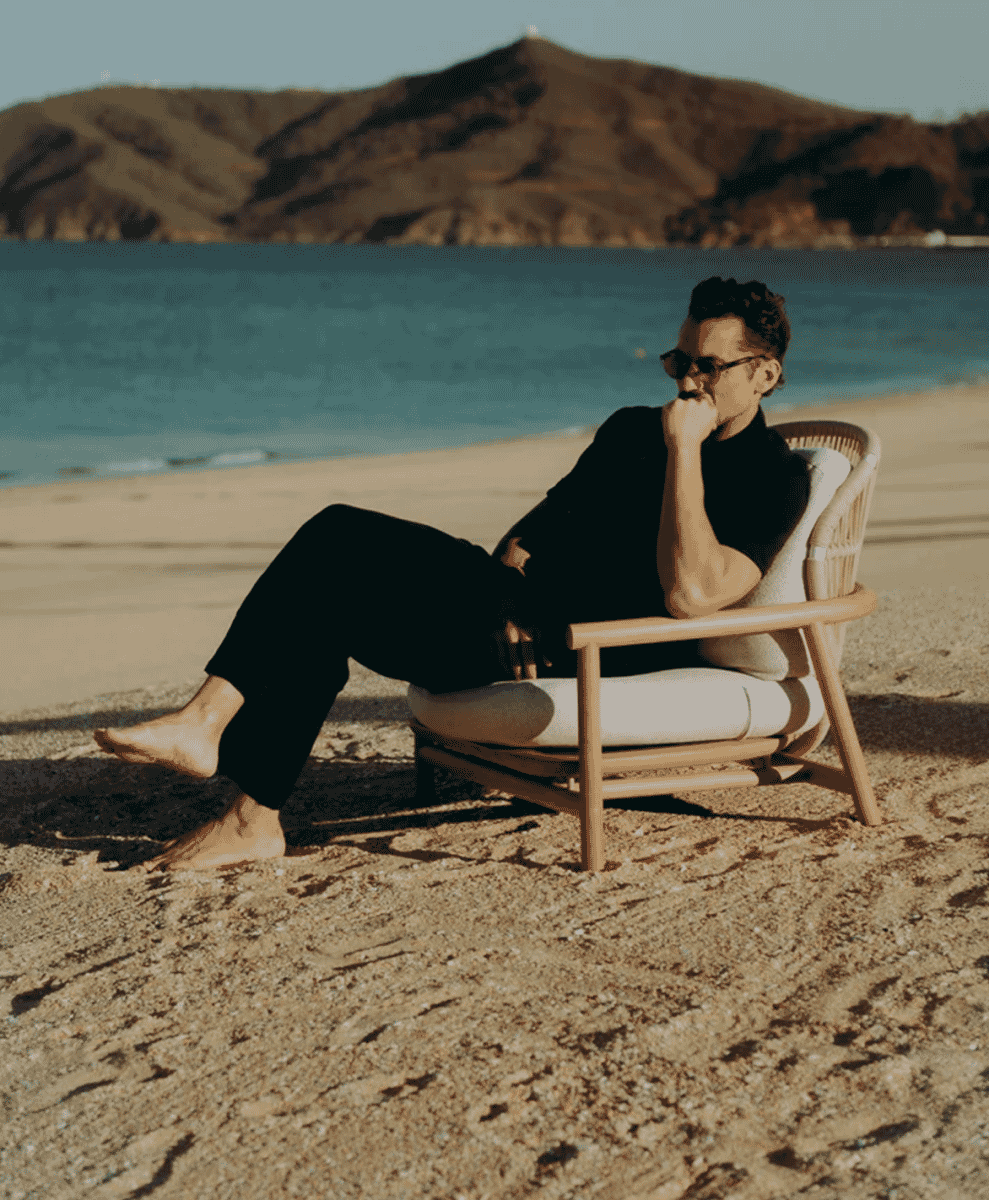
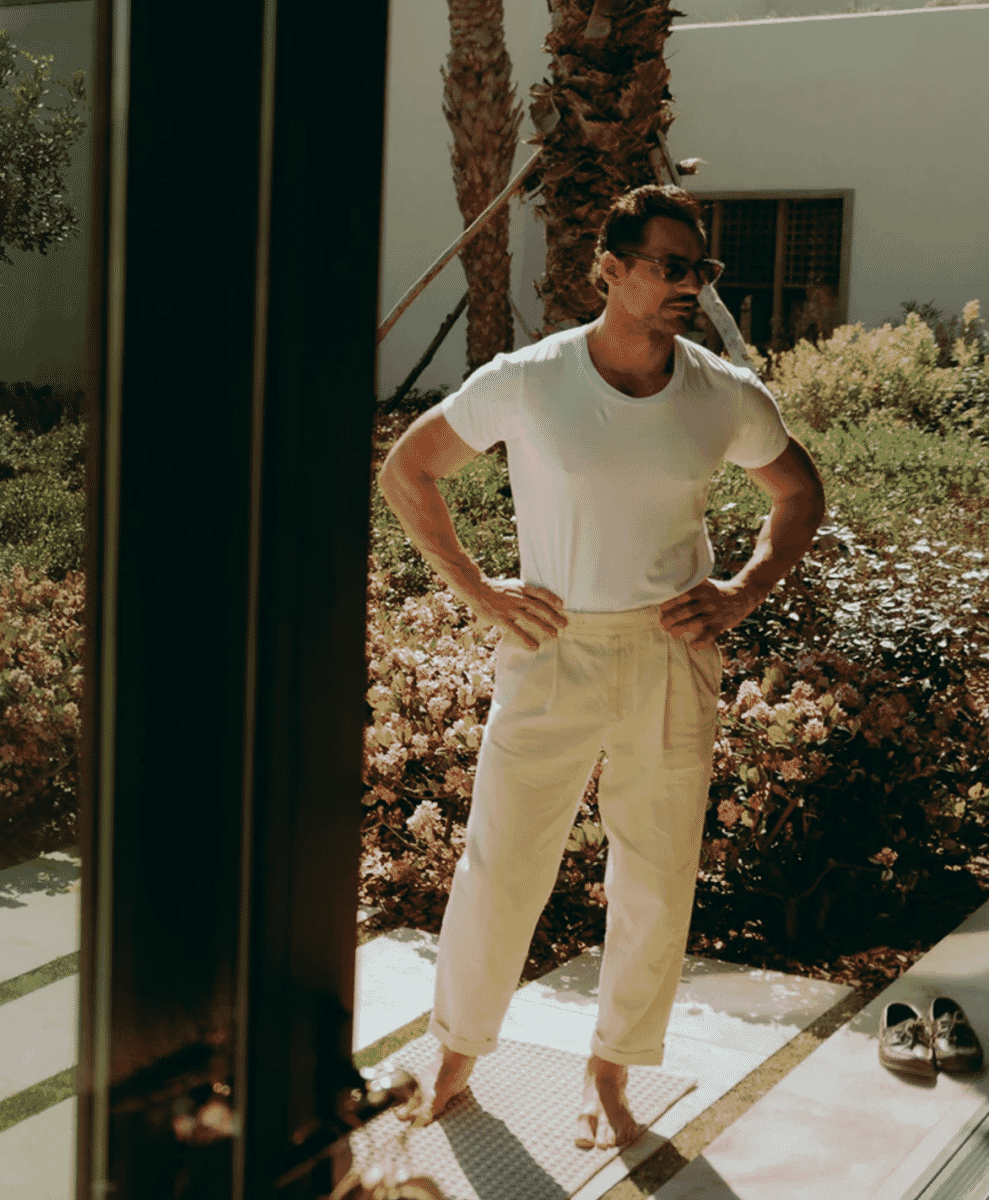
David Gandy Wellwear
David Gandy Wellwear isn’t trying to reinvent loungewear – it’s trying to retire the term altogether. Launched in 2021, the brand positions itself in a category of its own, somewhere between off-duty style and soft science. The idea is simple: clothes that look good and feel even better. Think brushed cotton hoodies, tailored joggers, T-shirts with structure, and pyjamas that actually fit. Everything’s clean, comfortable and purposefully tactile – designed to support both physical and mental well-being without overthinking it.
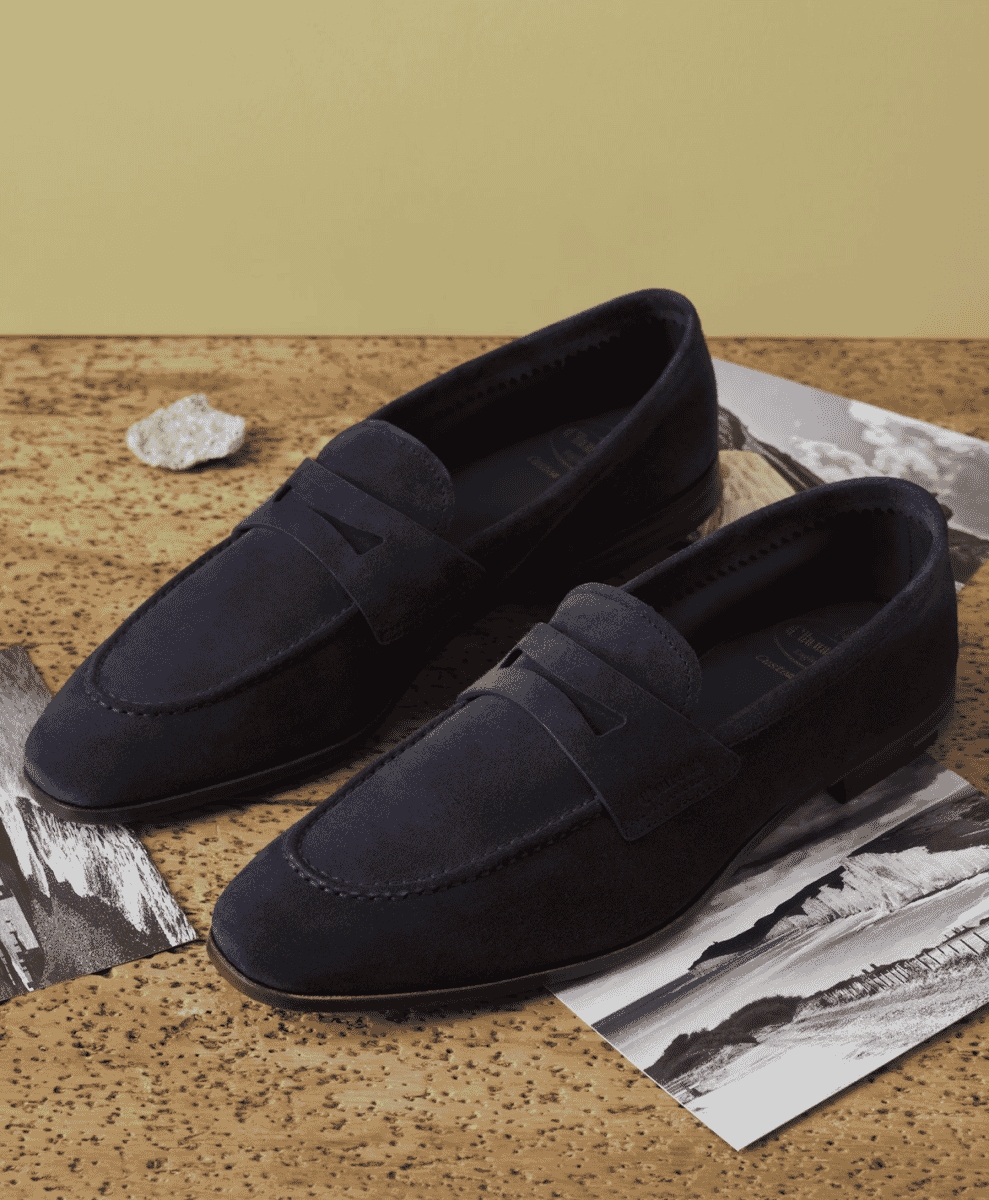
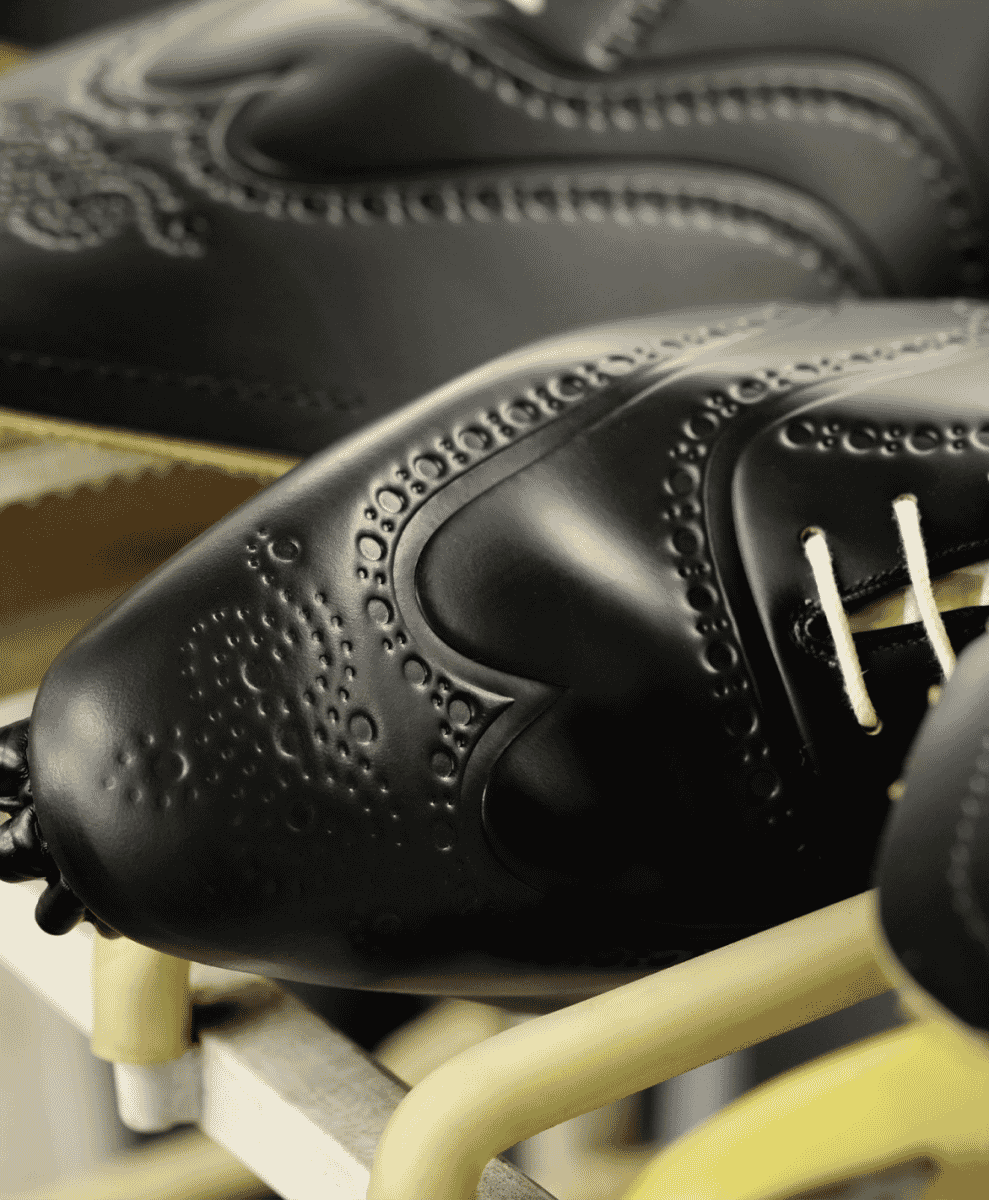
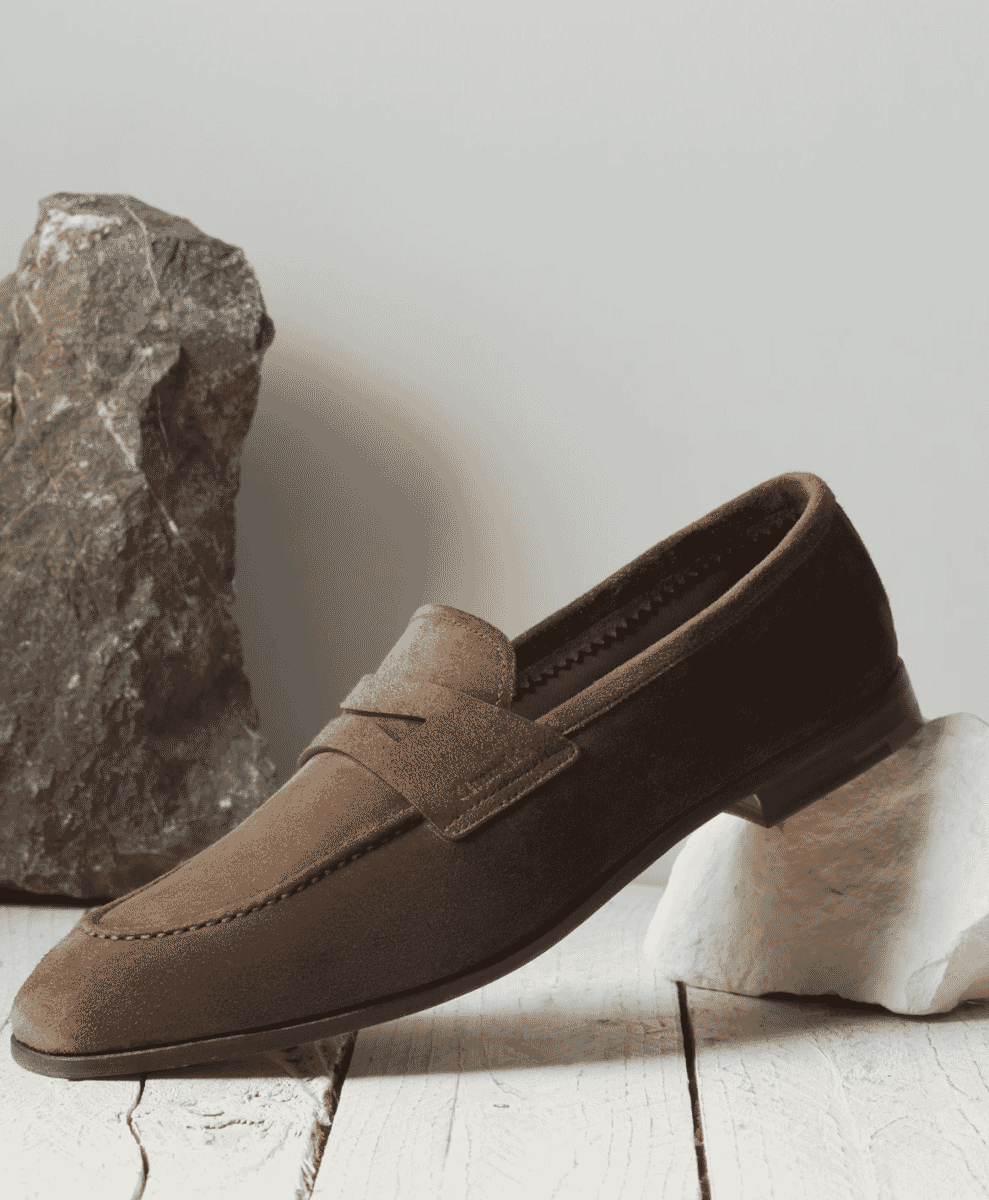
Church’s
Founded in 1873 in Northampton, Church’s has long been considered a benchmark of English shoemaking. Known for its Goodyear-welted construction, classic silhouettes and meticulous finishing, Church’s shoes became staples for professionals around the world. Since its acquisition by Prada in 1999, the brand has become more fashion-facing, with bolder styles and branding. Purists sometimes lament the changes, but there’s no denying Church’s influence – and its continued role in defining the modern English dress shoe.
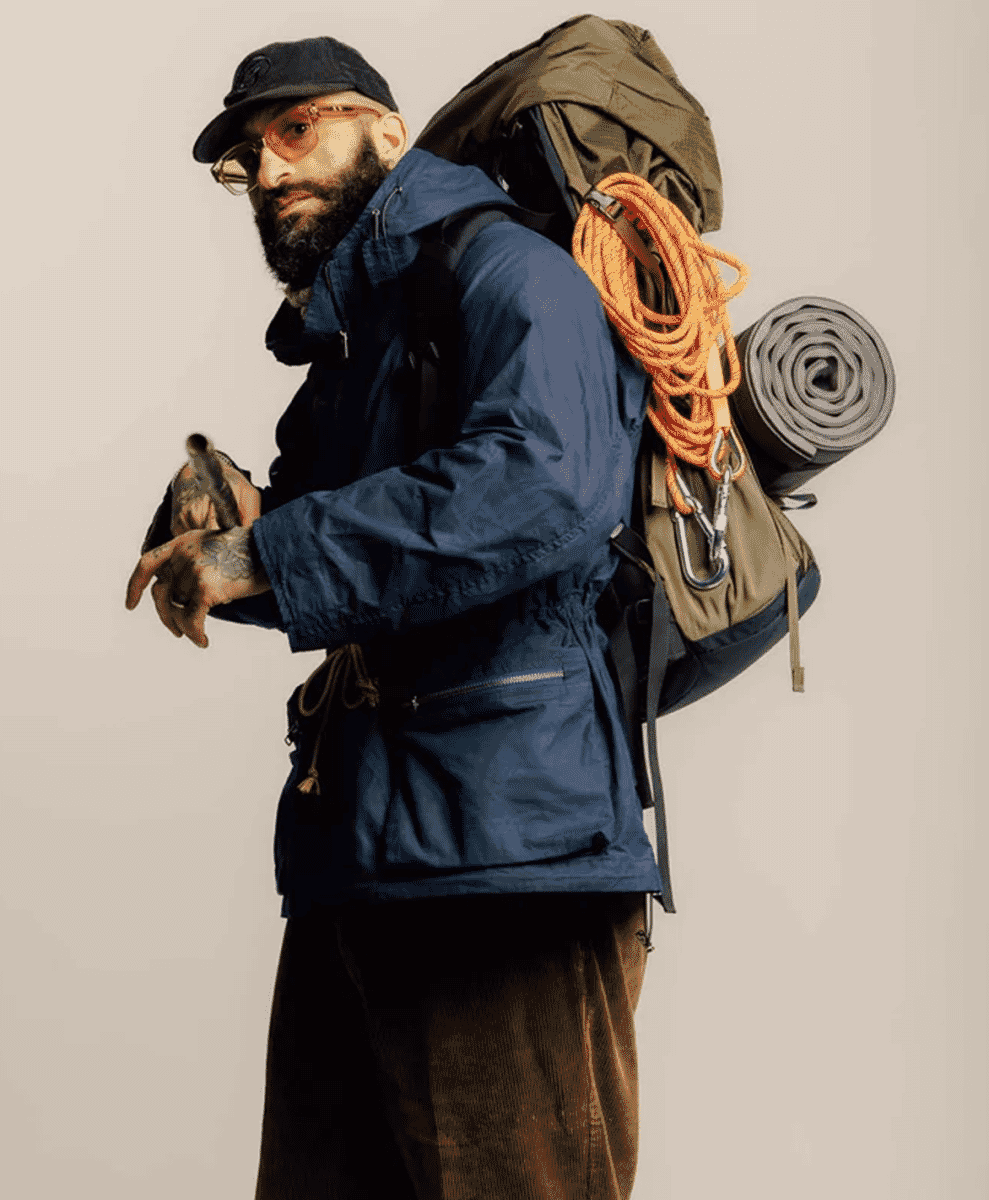
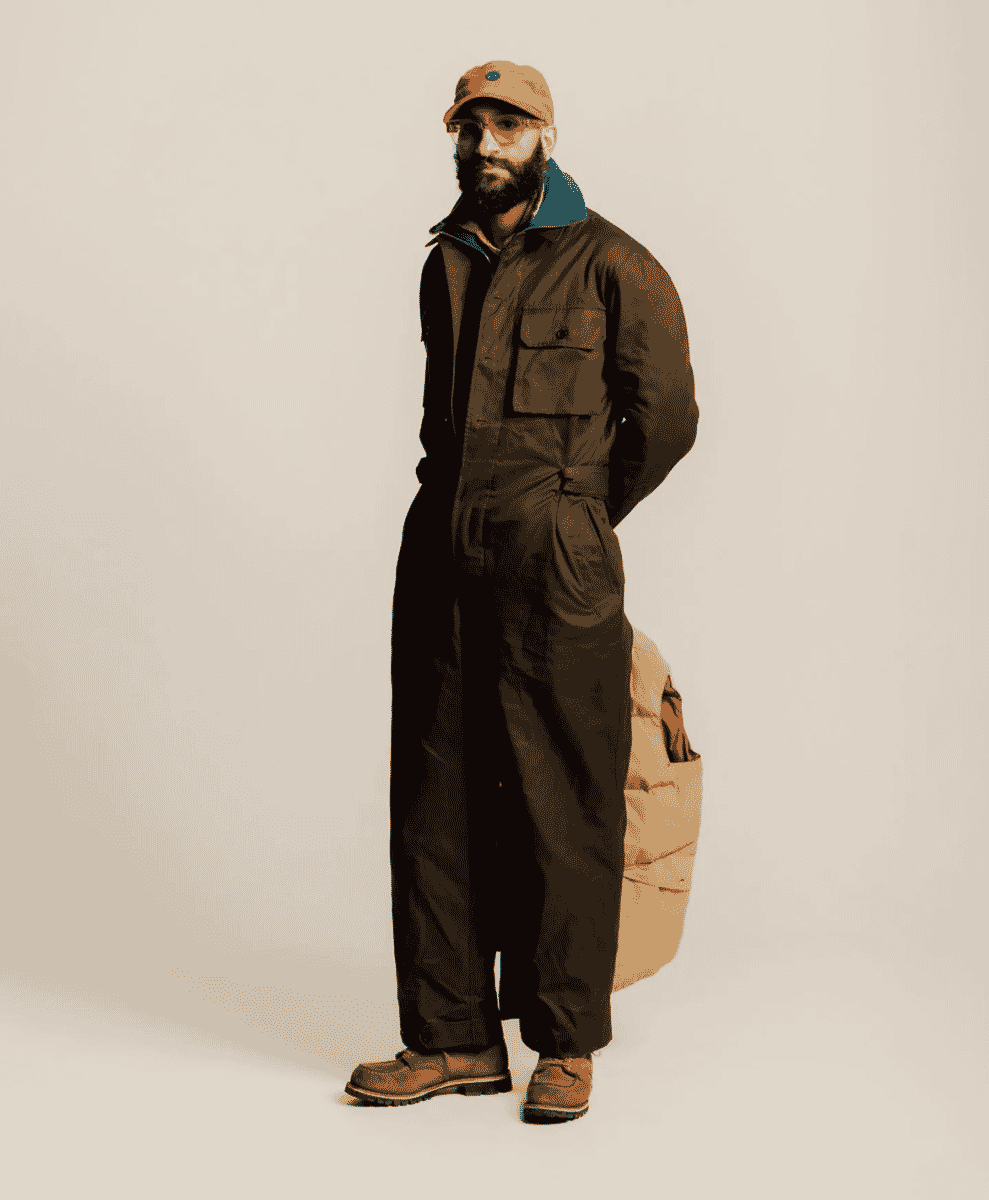
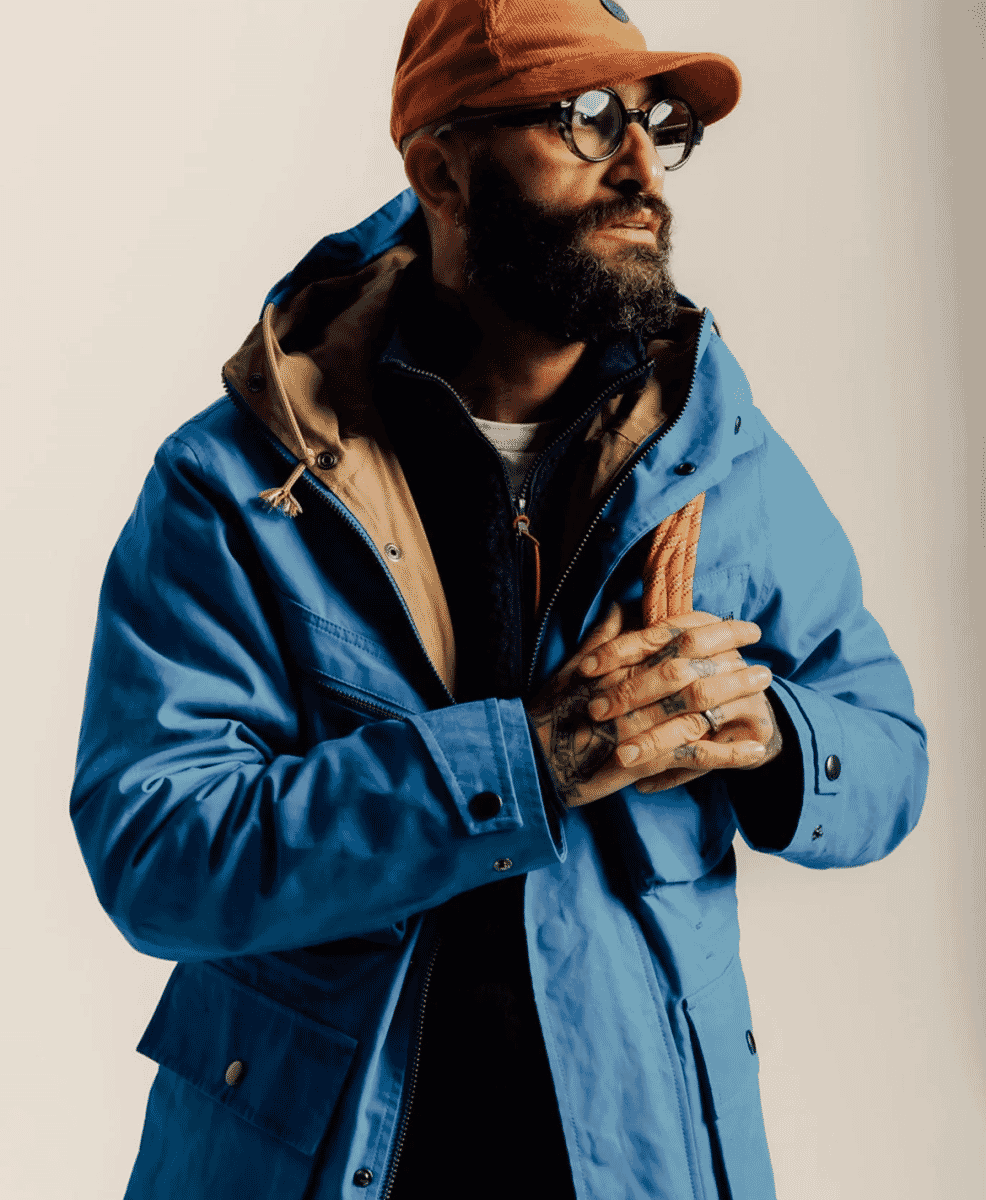
Gloverall
Gloverall’s history is tied to the duffle coat – the brand began by repurposing military surplus after WWII, before producing its own in the 1950s. Today, it still manufactures in Britain, making heavyweight wool coats with horn toggles and rope loops – details that haven’t changed in decades. Gloverall remains one of the few outerwear brands that combines functional design with a strong sense of British identity. Whether you’re in Soho or St Ives, a Gloverall duffle still feels completely at home.
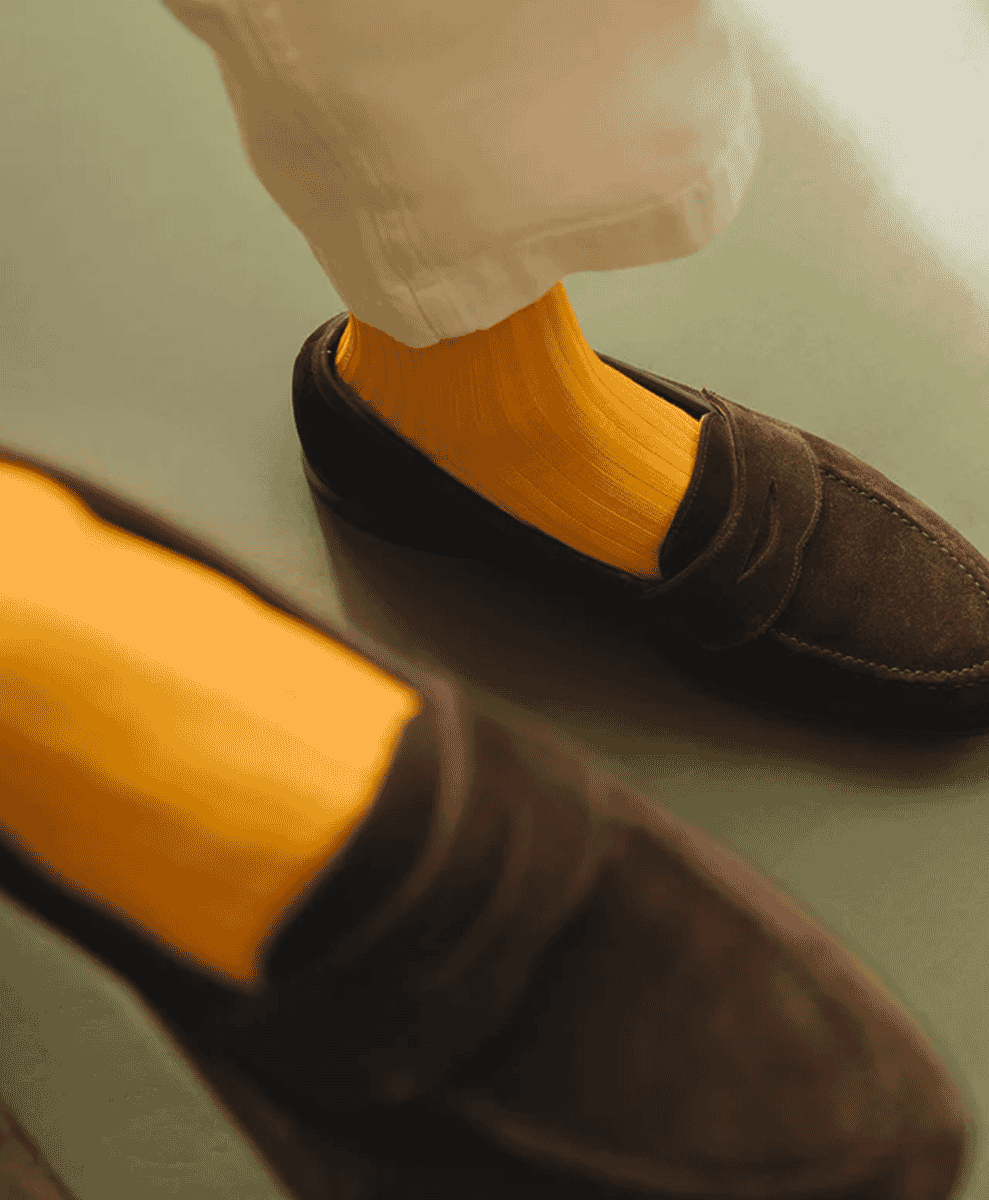
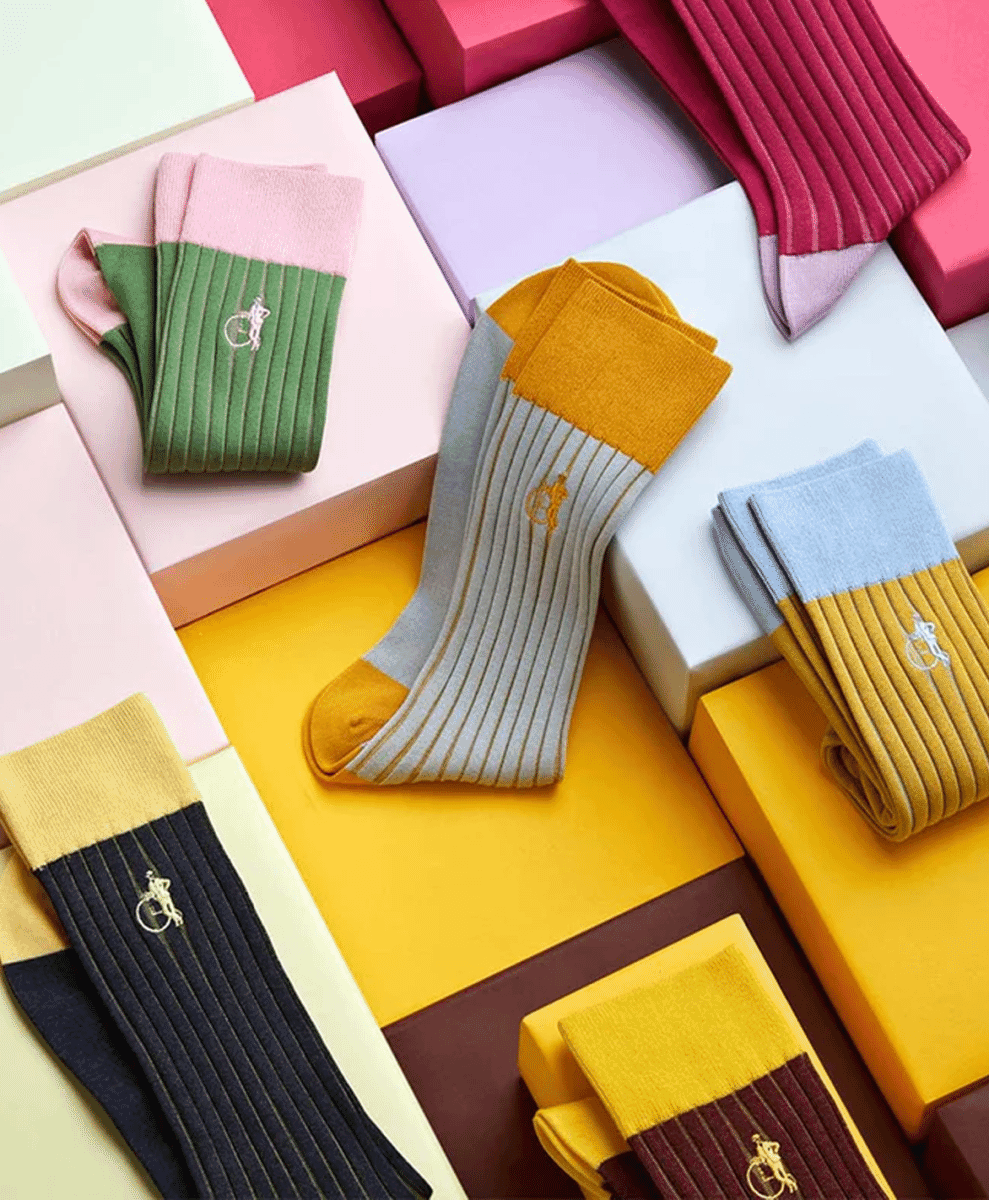
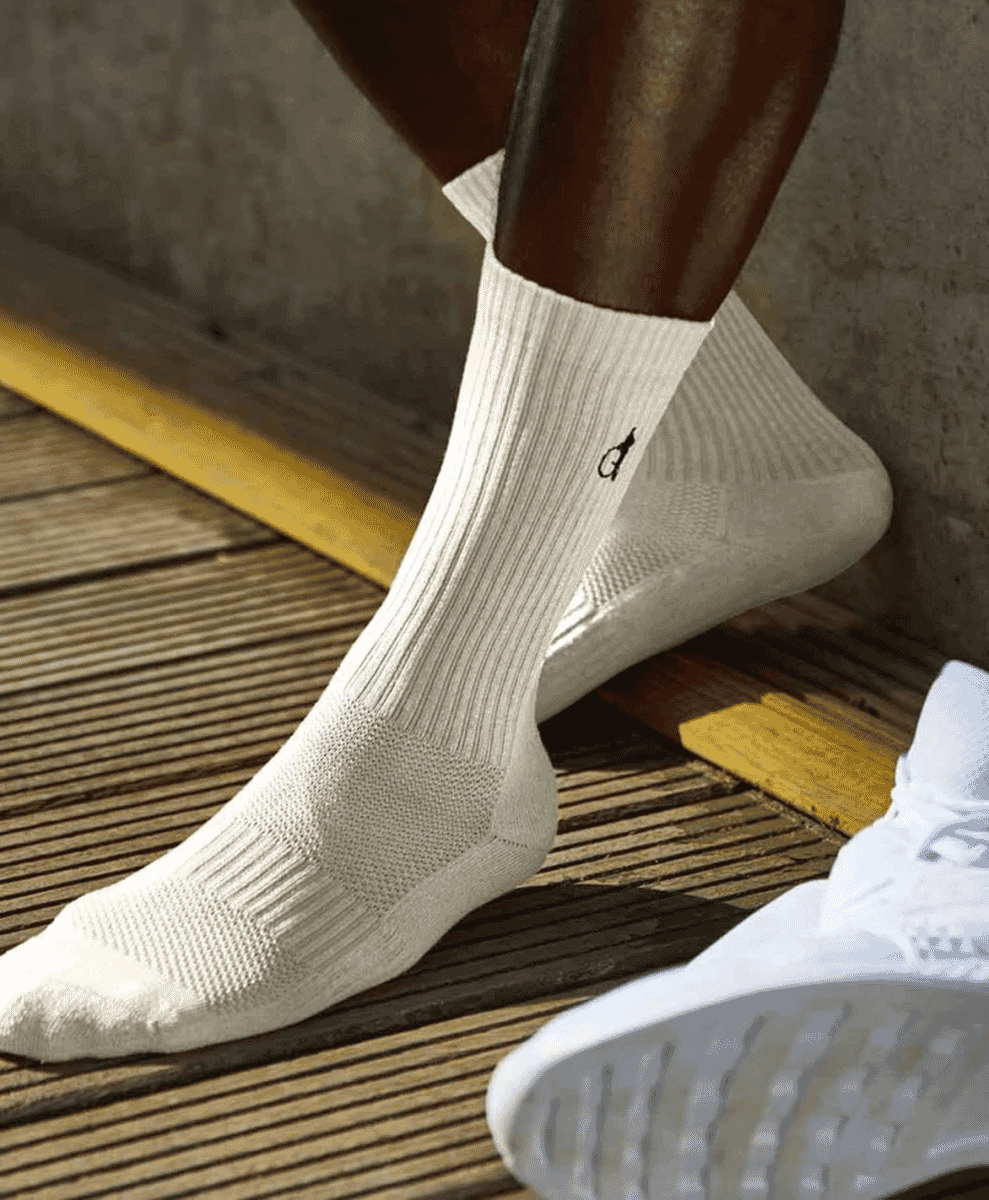
London Sock Company
A relatively young brand, London Sock Company has managed to make the humble sock something of a power move. It offers bold colours, ribbed textures and classic patterns – all made in Britain from Scottish Lisle cotton. The branding is unapologetically polished, with nods to British gent culture and Mayfair sophistication. Worn by Daniel Craig, David Gandy and Tom Hiddleston, the socks are designed to add flair without fuss. Perfect as a gift – or as a quiet flex under navy wool trousers.
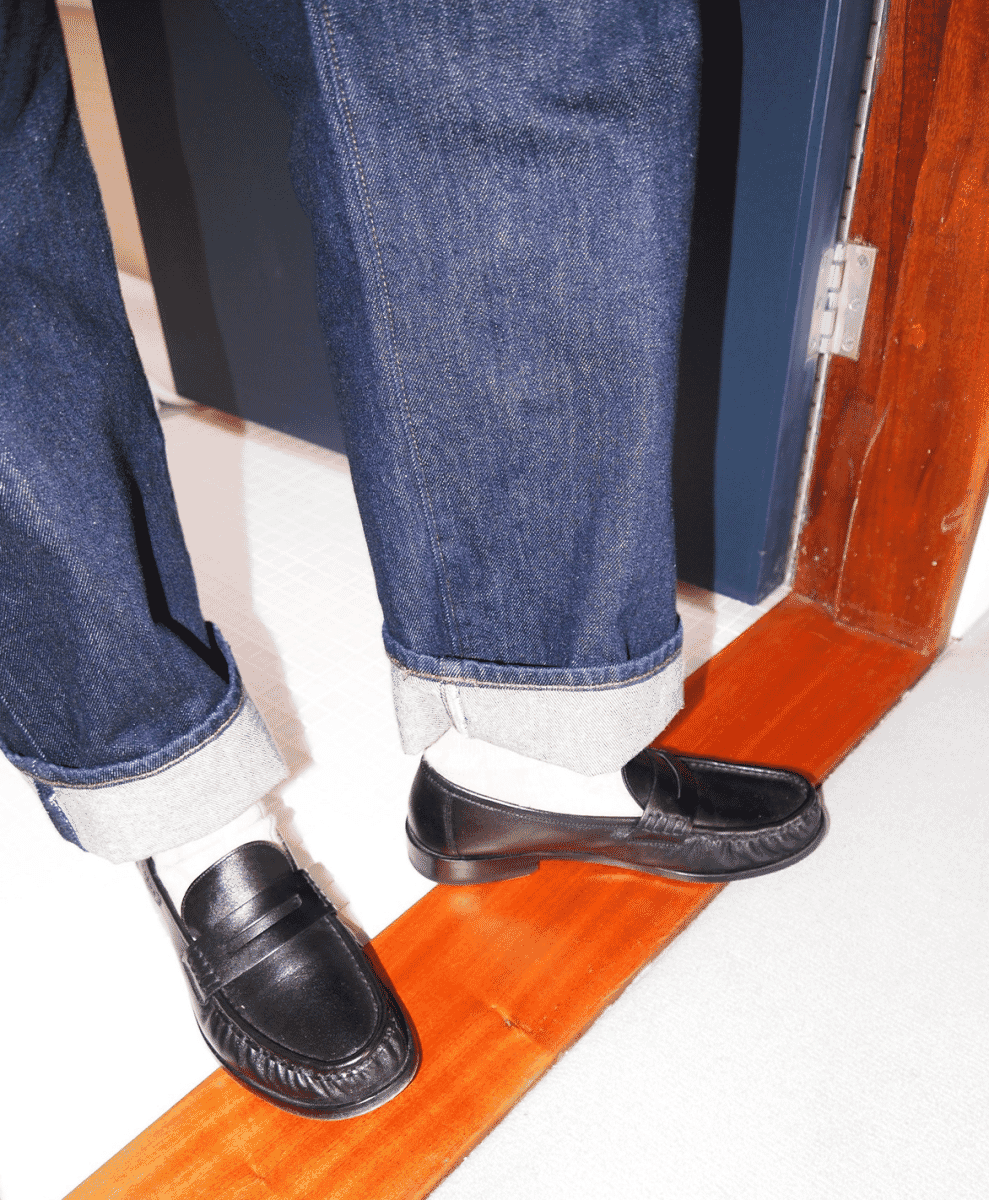
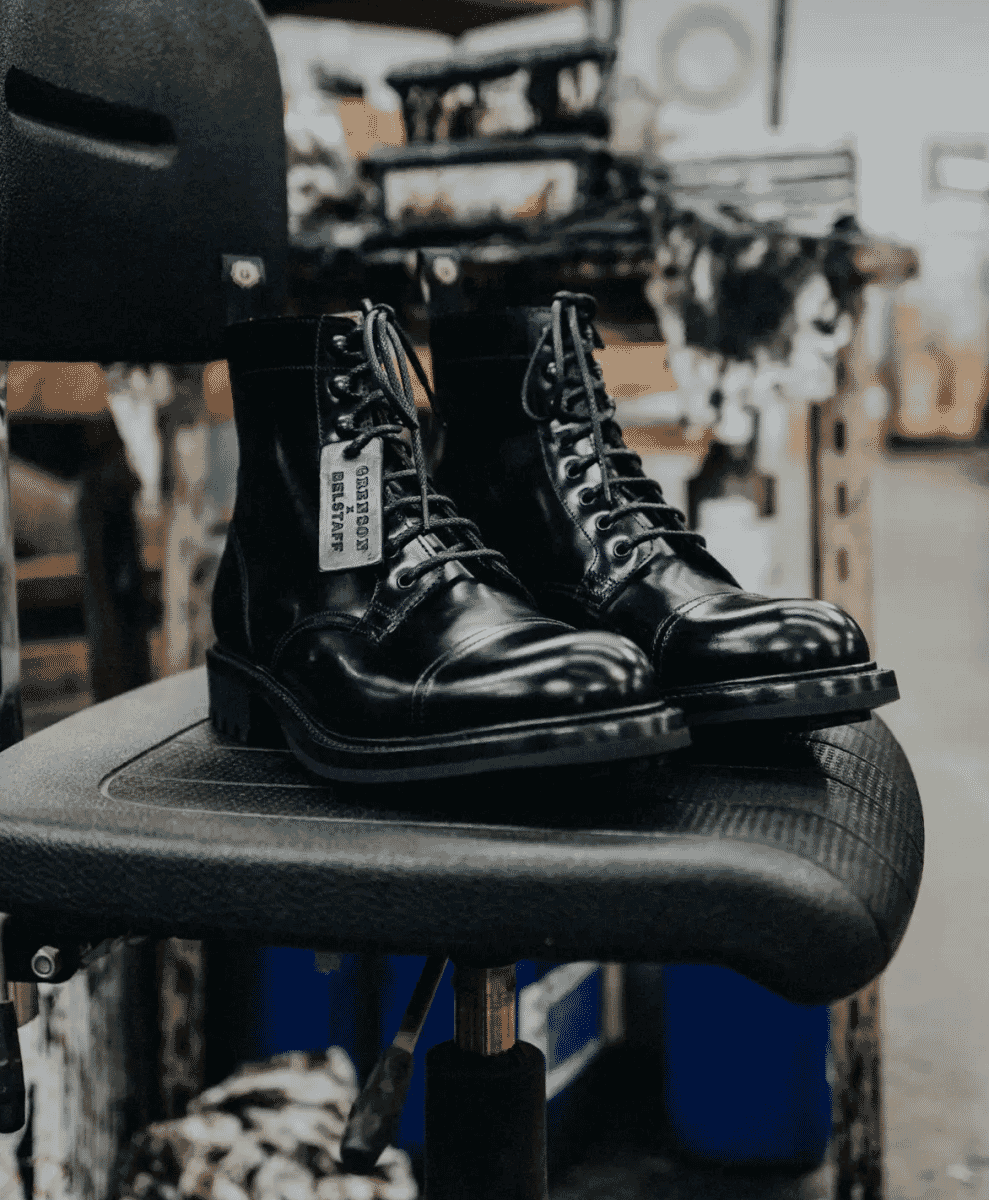
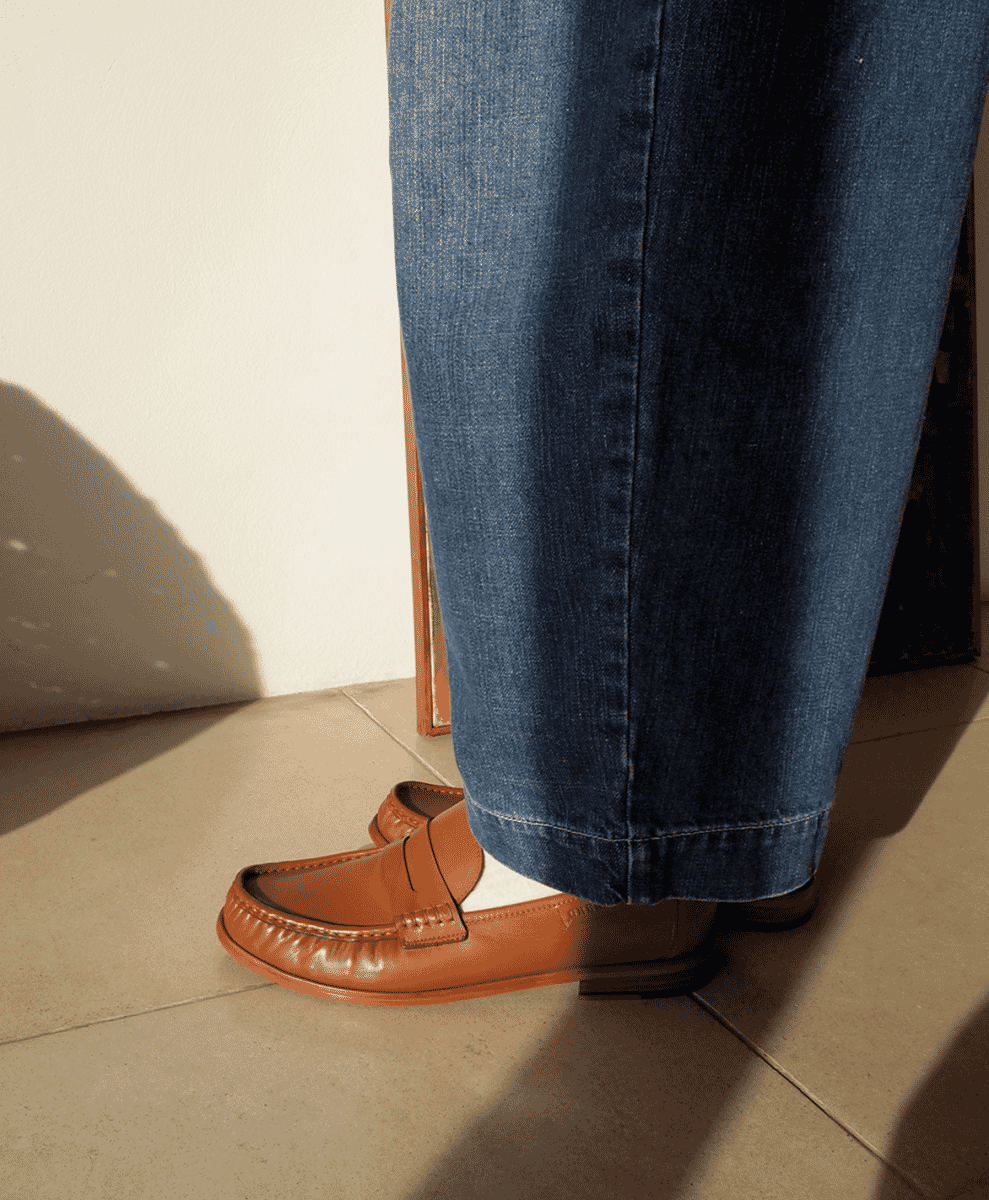
Grenson
Grenson has one of the longest histories in British shoemaking – founded in 1866 and known for its Goodyear-welted construction. But what sets it apart today is its ability to modernise classic styles without losing authenticity. The triple-welt sole has become a design signature, giving traditional brogues and boots a more robust, fashion-forward edge. Grenson’s blend of heritage craftsmanship and contemporary appeal has made it a favourite among younger wearers looking for durability, style, and a strong British identity.
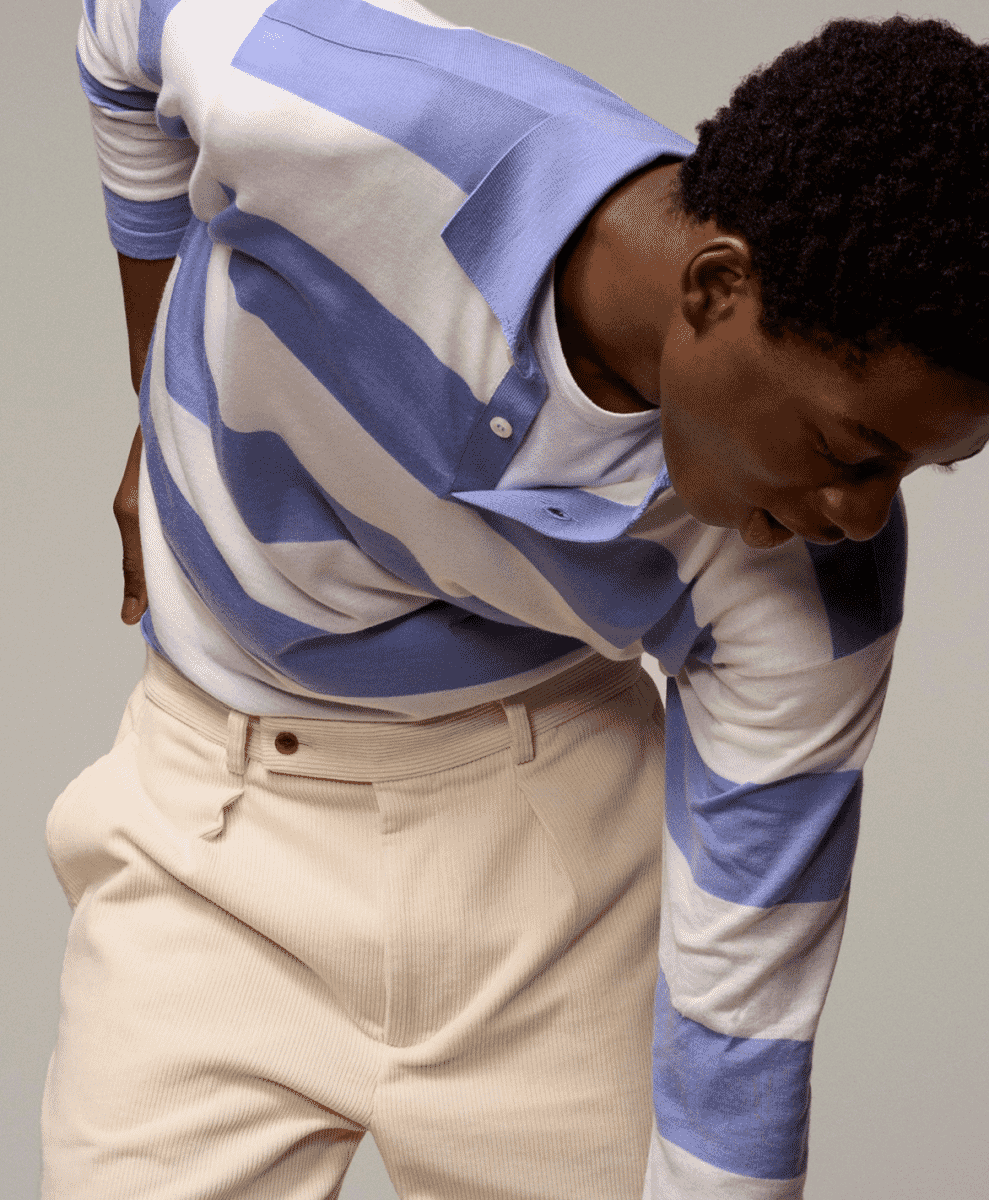
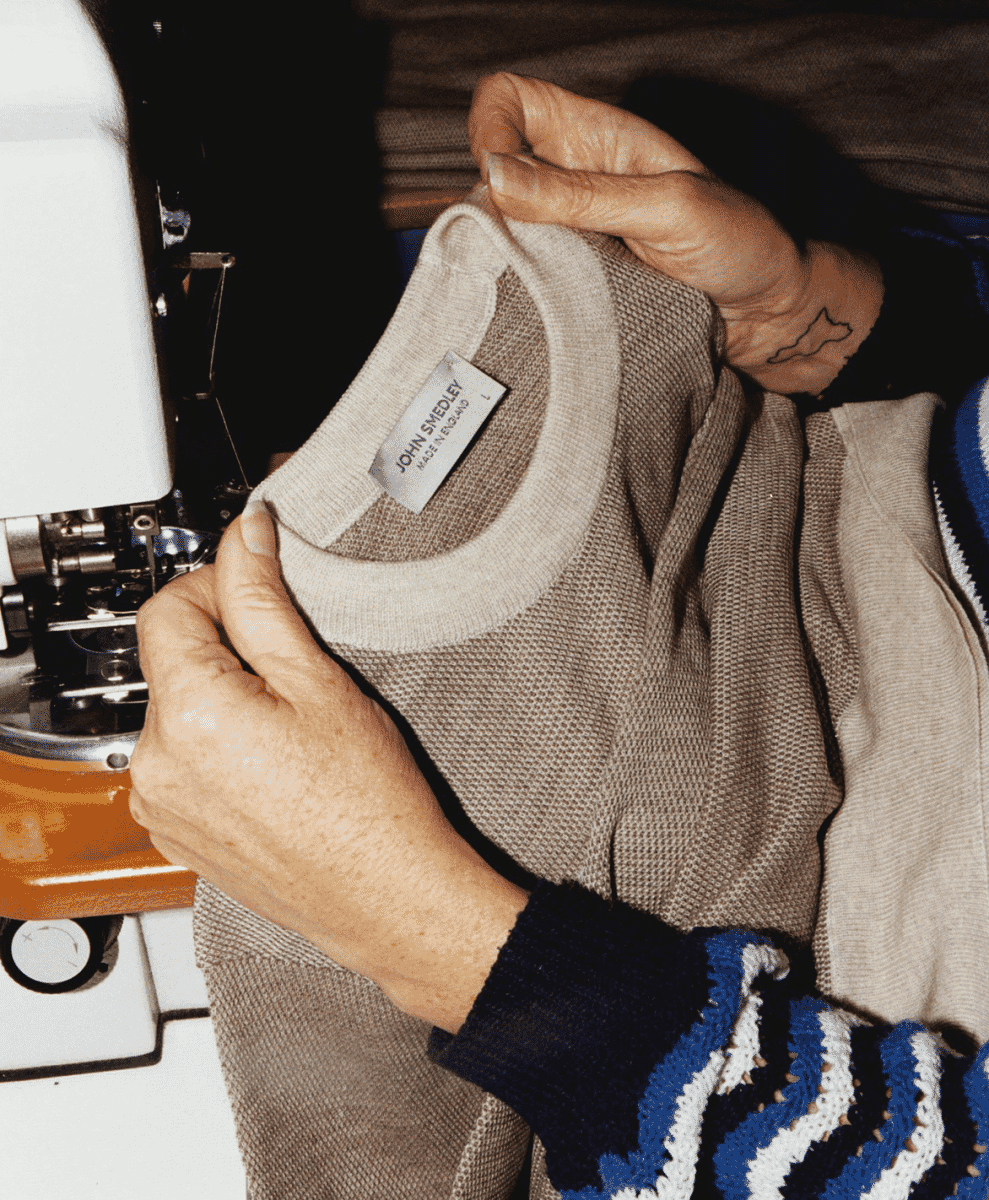
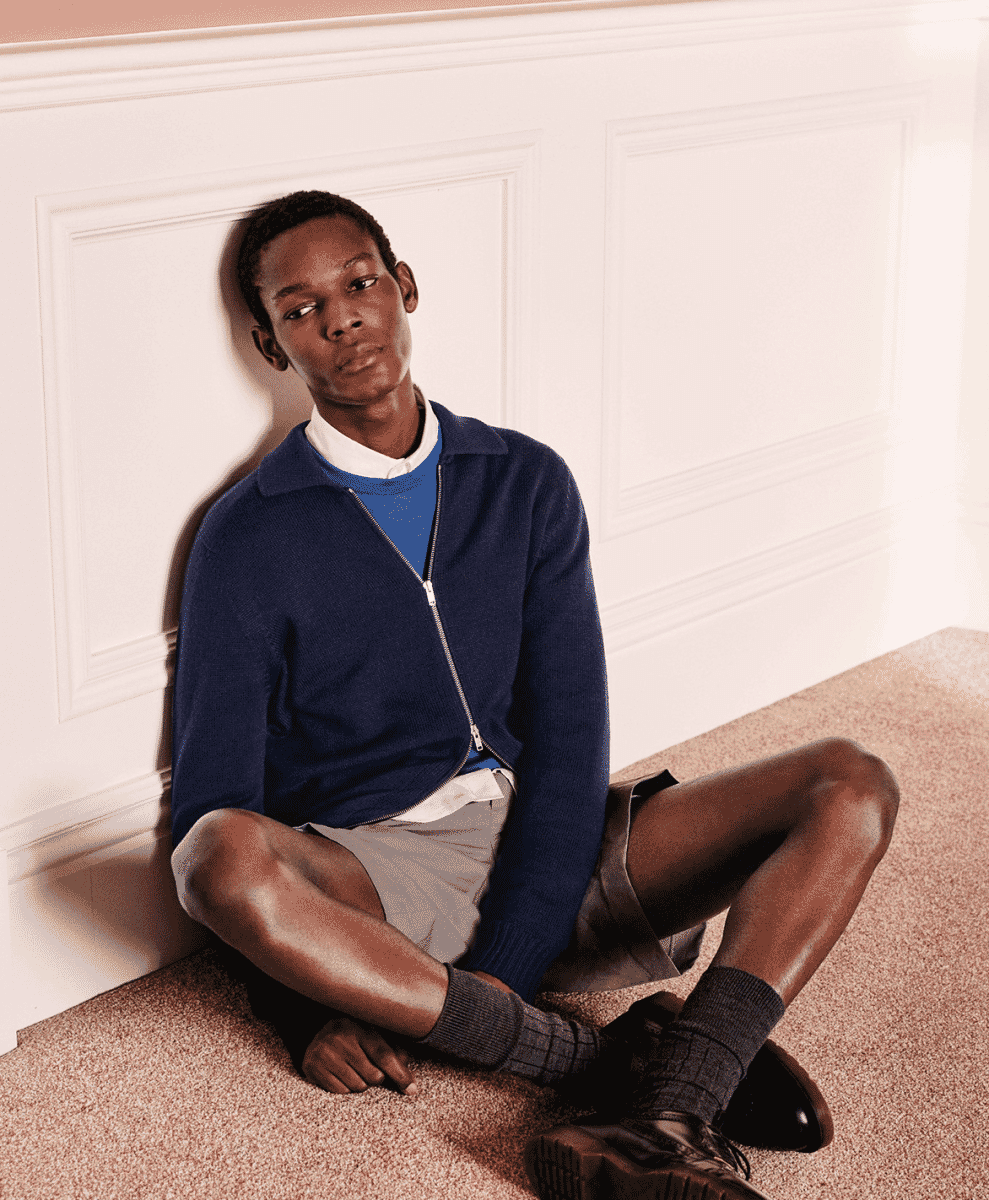
John Smedley
John Smedley has been producing fine-gauge knitwear in Derbyshire since 1784 – the oldest manufacturing factory in the world still in continuous operation. The brand is known for its incredibly soft Sea Island cotton and extra-fine merino, which it uses to make lightweight polos, rollnecks and crewnecks with timeless appeal. Worn by everyone from James Bond to modern-day creatives, Smedley’s knitwear is understated, versatile, and built to last. It’s quiet luxury in the purest, most literal sense.
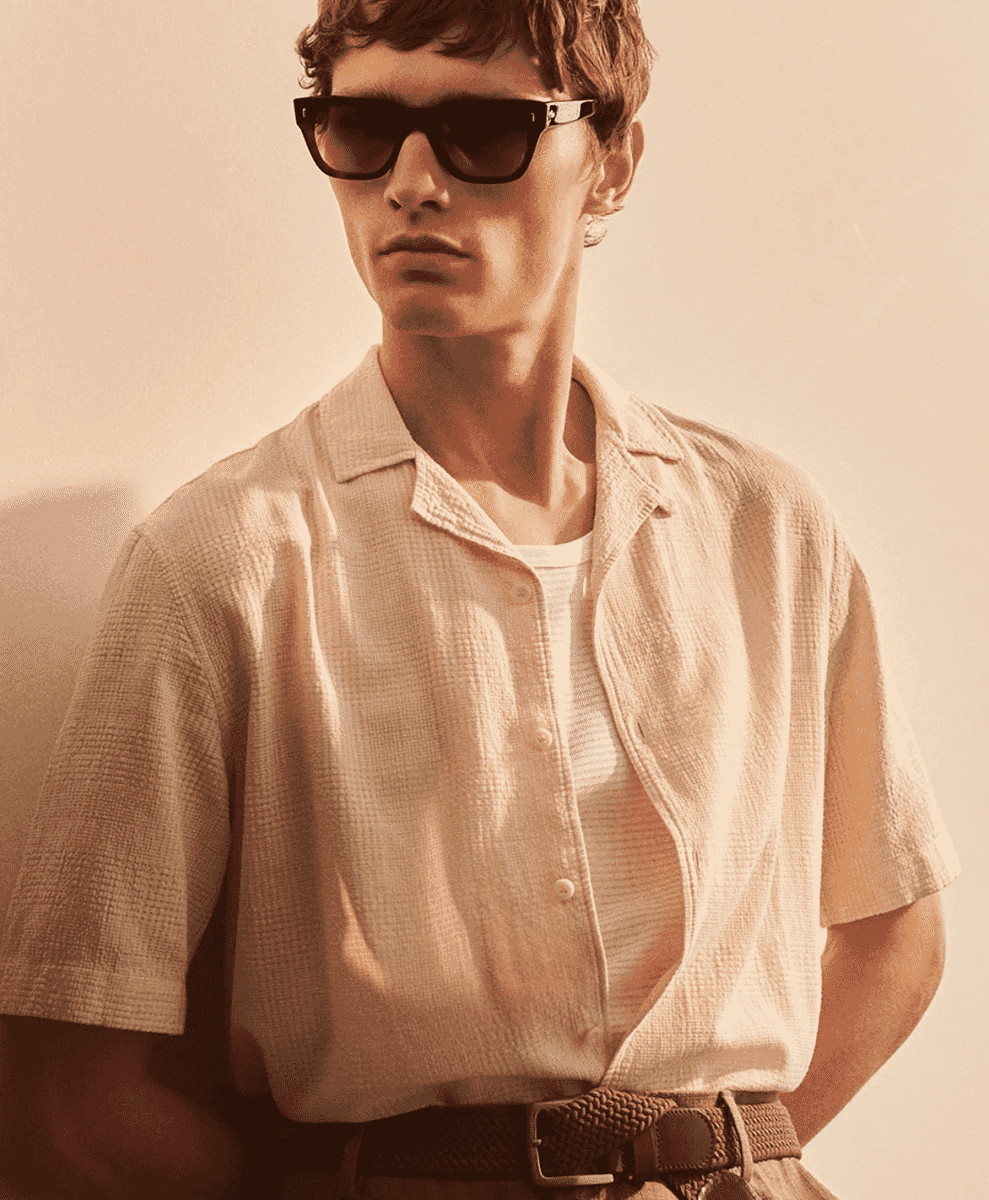
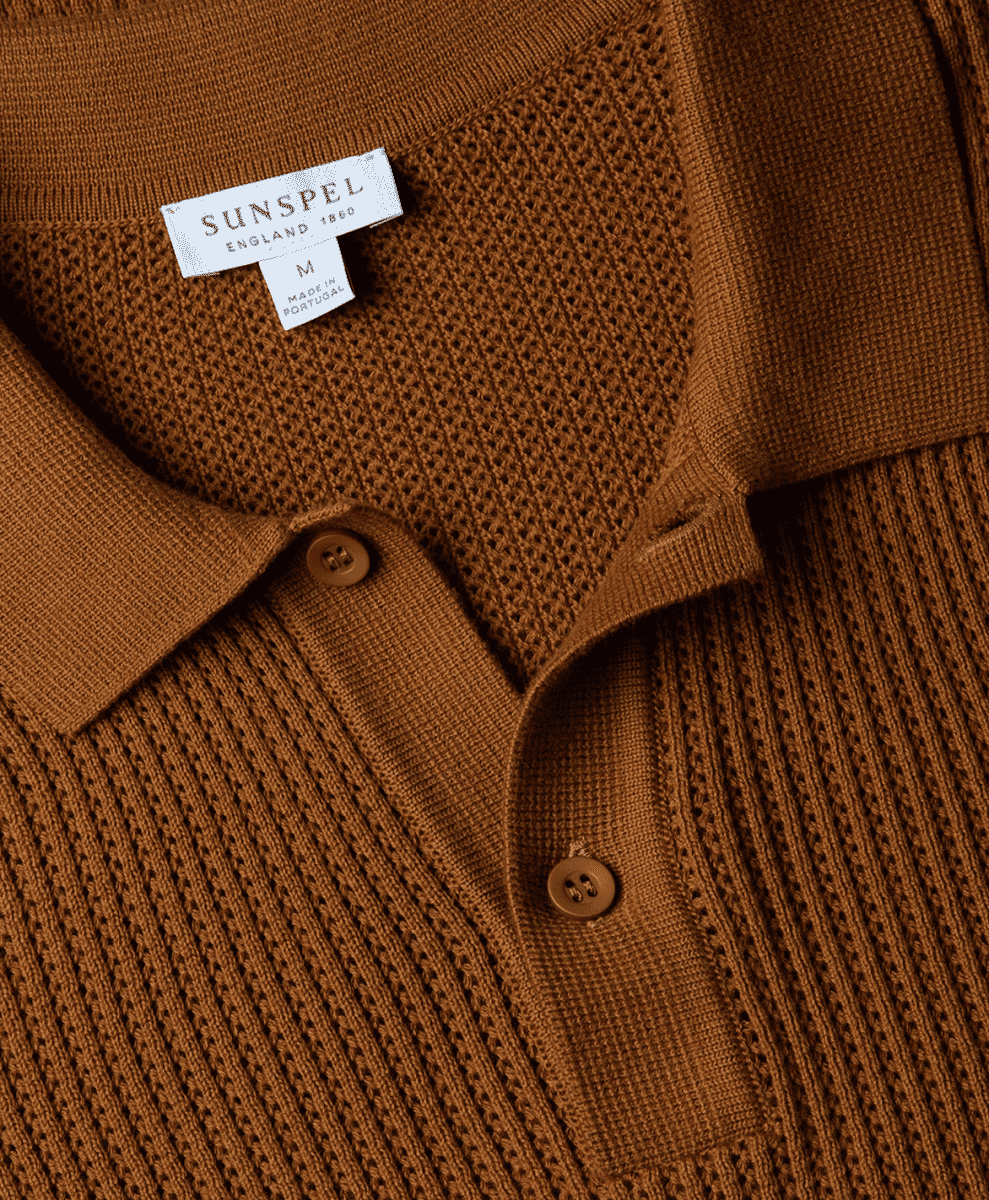
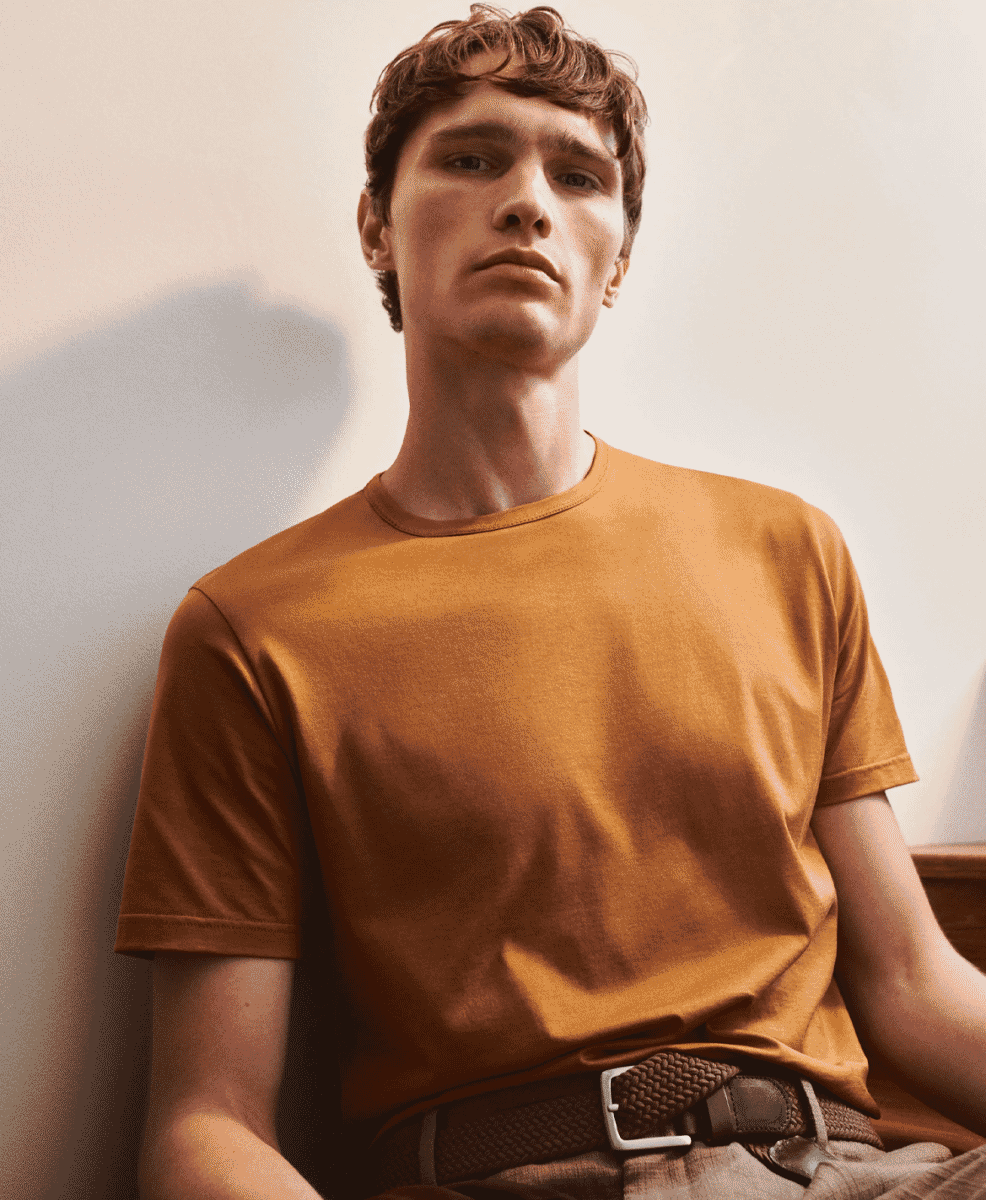
Sunspel
Sunspel is a master of the elevated basic – T-shirts, polos, boxers and knitwear made from exceptional fabrics and built for everyday wear. Founded in 1860, the brand introduced the first T-shirt to Britain and has kept refining its essentials ever since. The Riviera Polo, worn by Daniel Craig in Casino Royale, remains a modern icon. Sunspel garments aren’t flashy – but they’re beautifully cut, supremely comfortable, and made with fabric knowledge that few can rival.
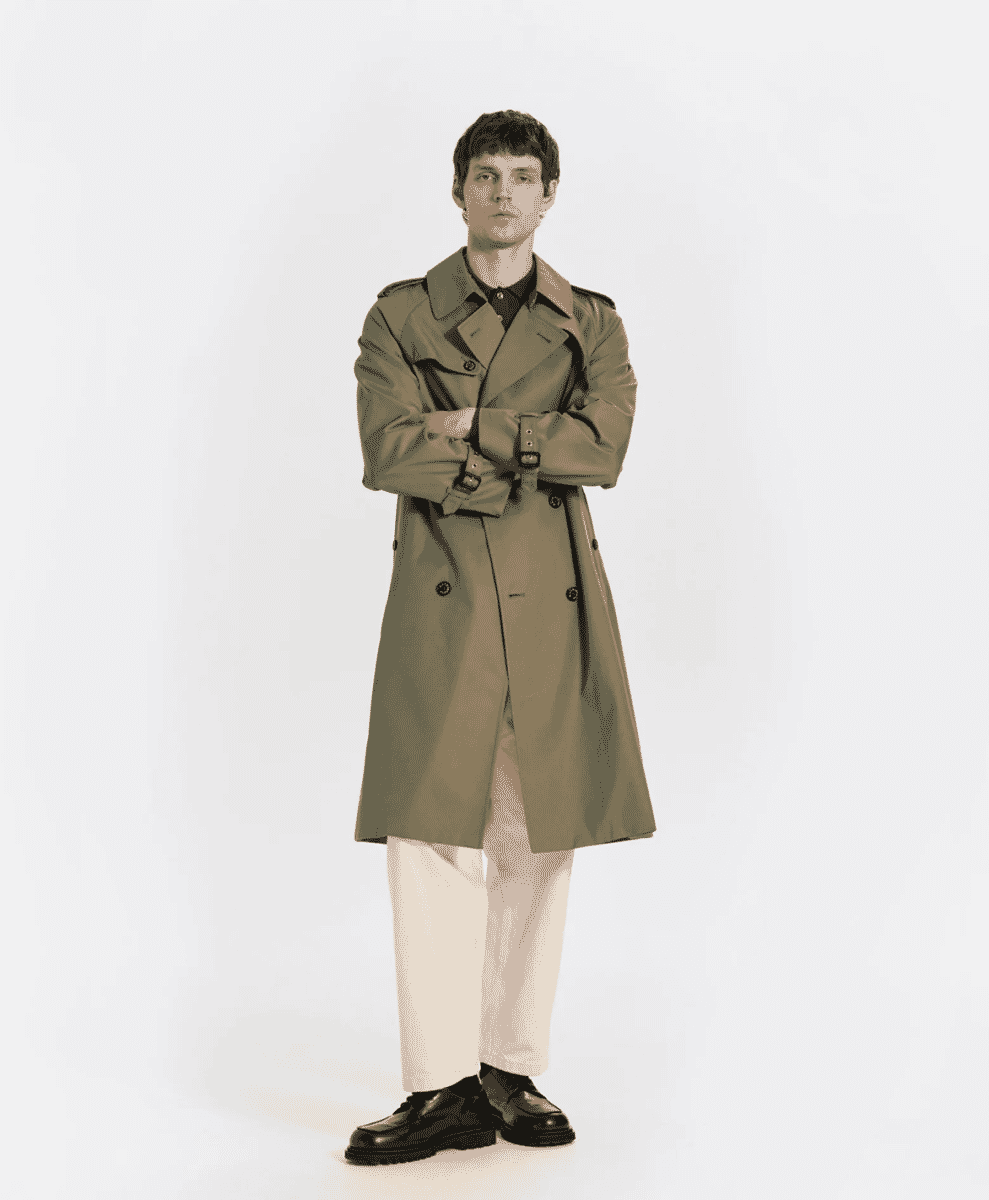
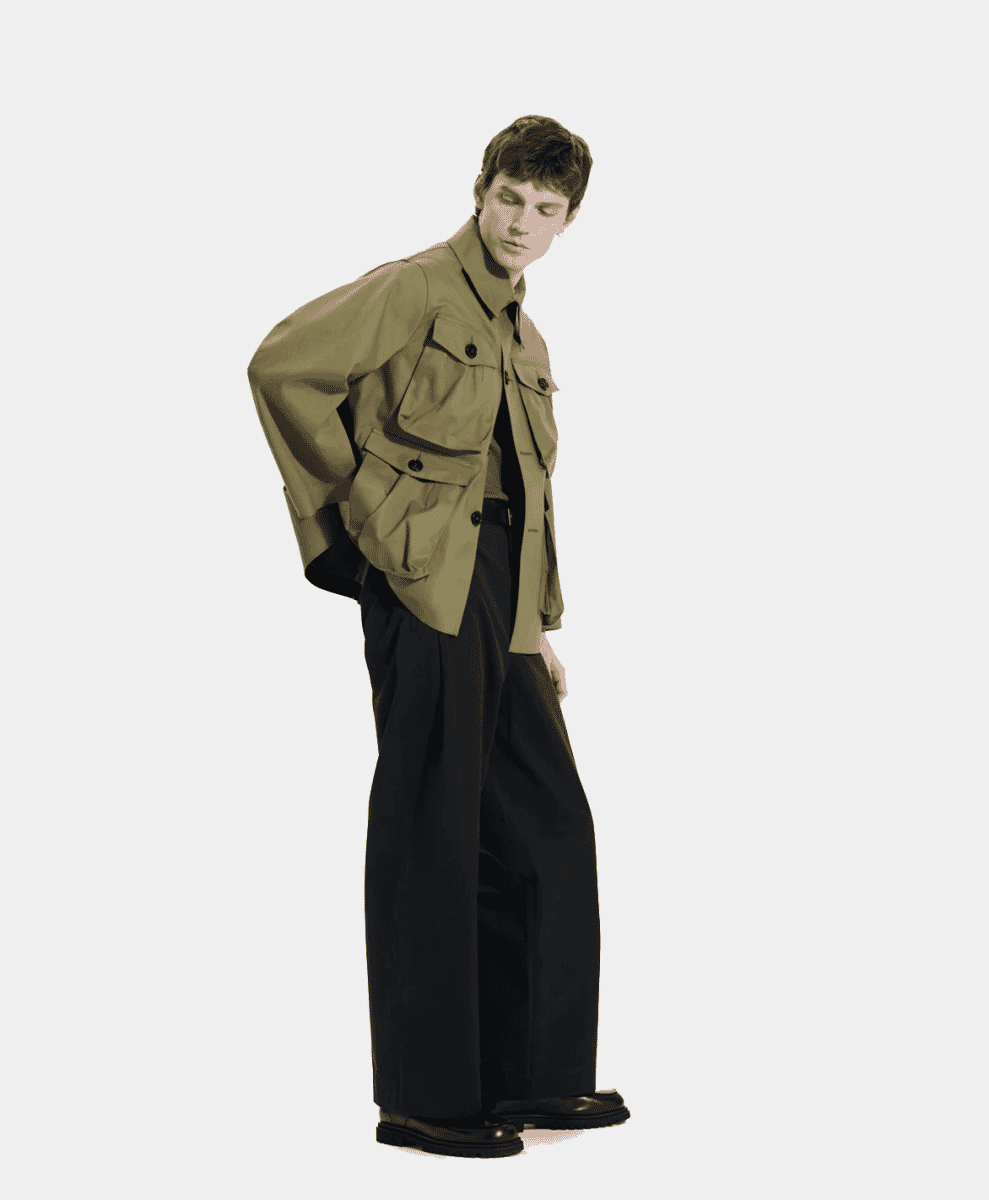
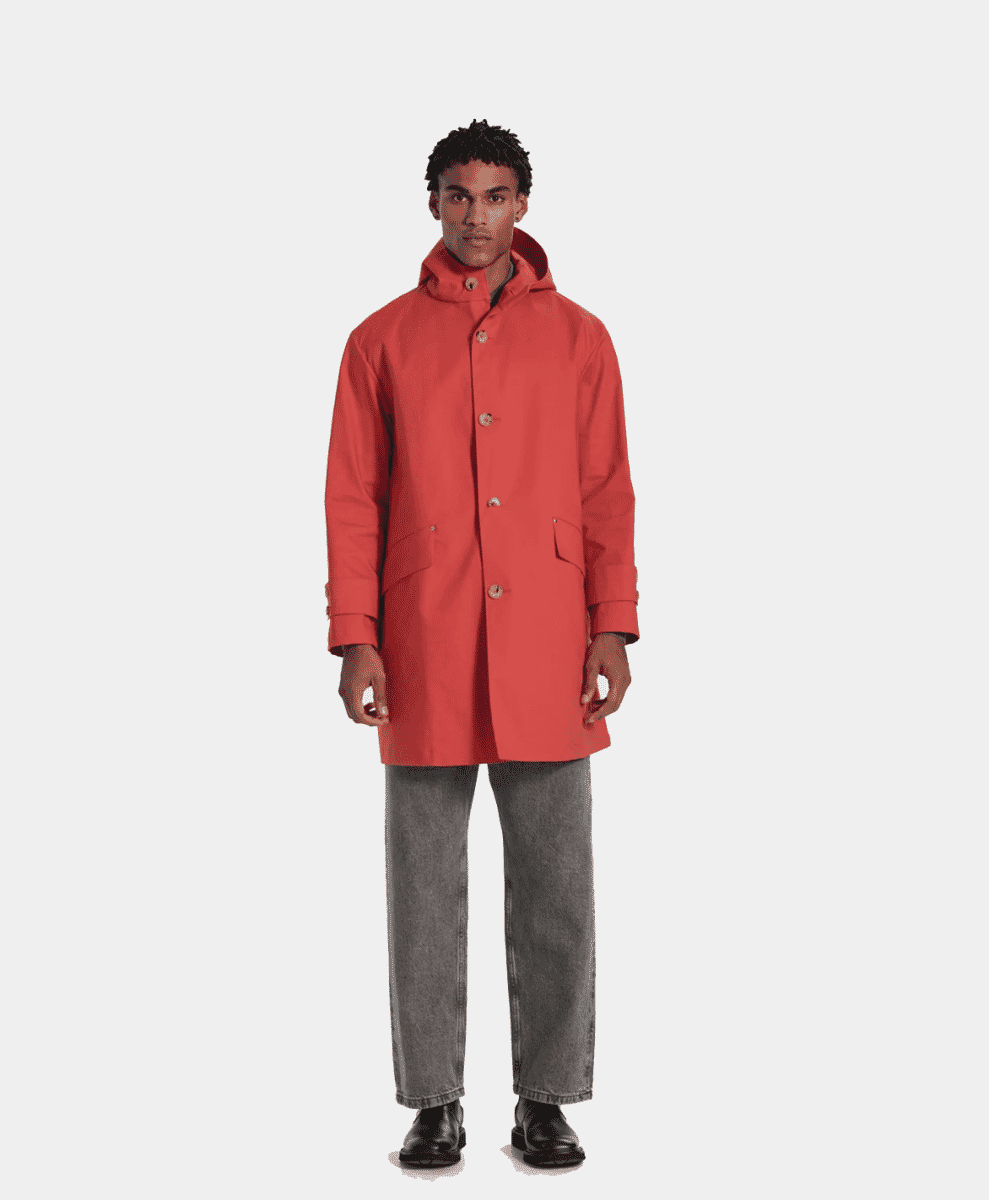
Mackintosh
Invented in the early 19th century by Charles Macintosh, the Mackintosh raincoat revolutionised outerwear with its rubber-bonded waterproof fabric. Today, the brand continues to produce its iconic coats in Scotland using the same labour-intensive techniques – pressing rubber between layers of cotton, then taping the seams by hand. It has evolved to include collaborations with the likes of Jil Sander and Maison Margiela, bringing its minimalist aesthetic to a broader fashion audience while staying rooted in British functional design.
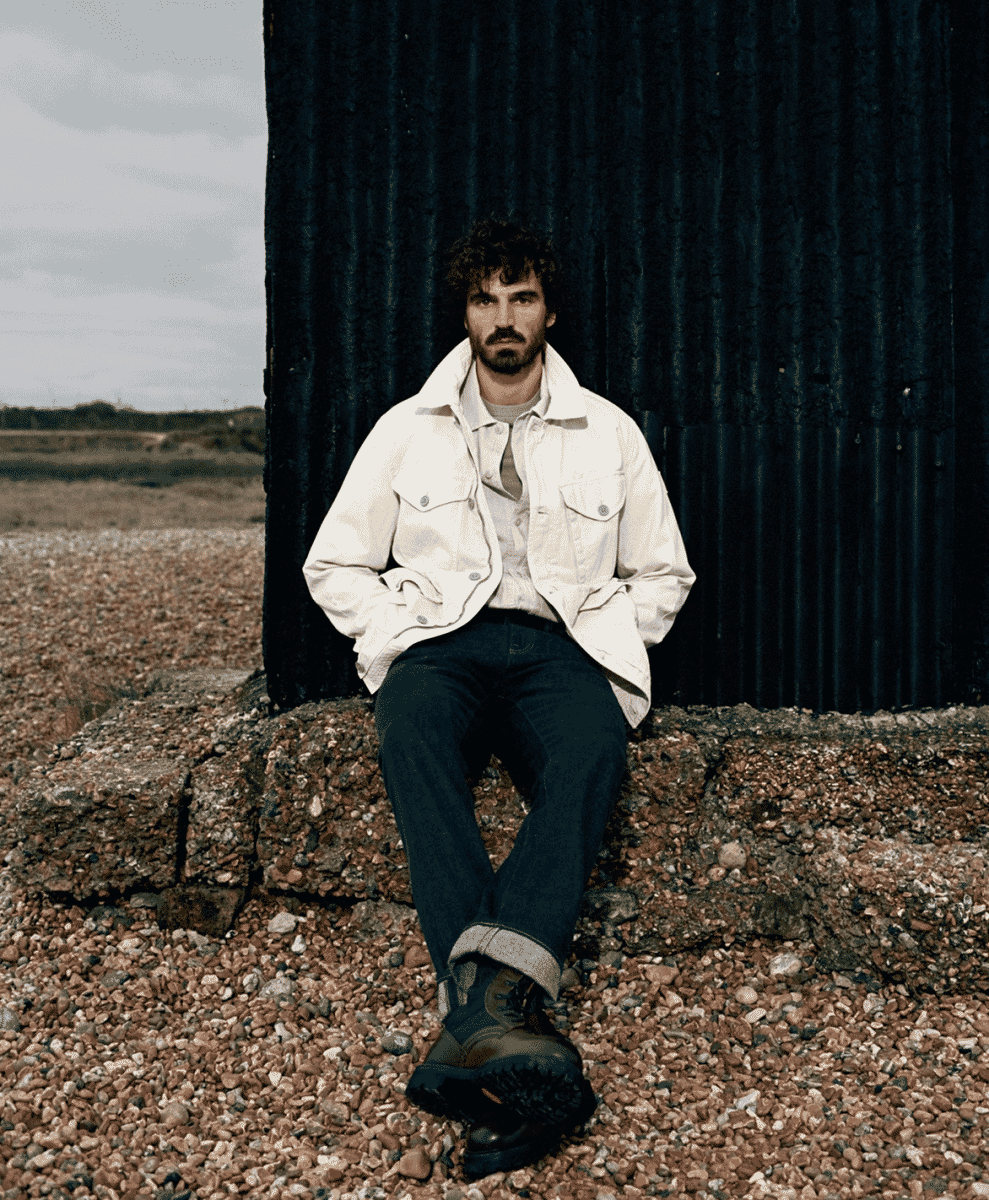
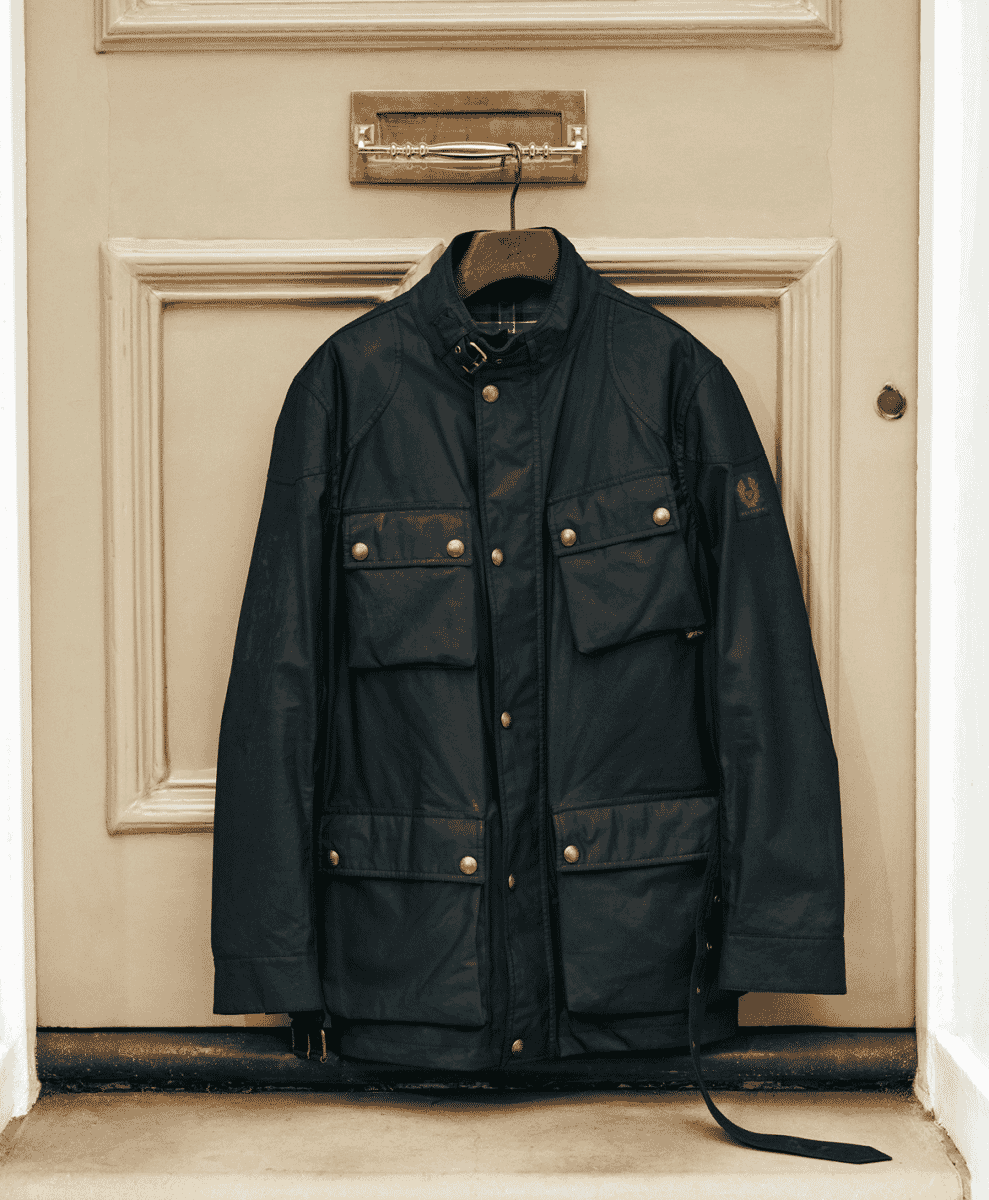
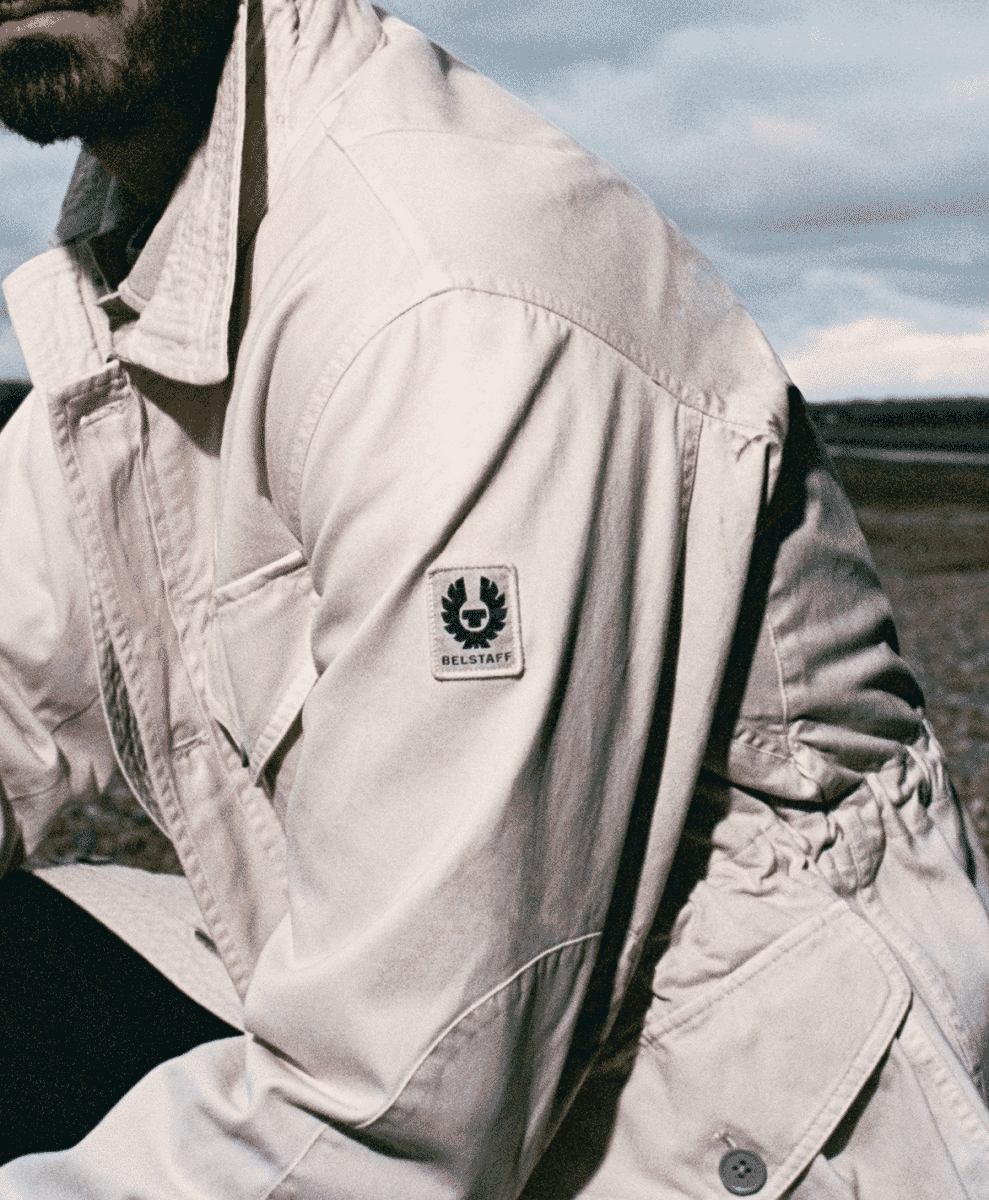
Belstaff
Belstaff has long been associated with fearless style – its jackets worn by pilots, bikers and film icons alike. The brand was founded in 1924 and became the first to use waxed cotton in motorcycling gear. Today, it’s best known for rugged outerwear like the Trialmaster and Roadmaster – timeless silhouettes that blend utility and style. Belstaff remains one of the few brands to truly balance performance heritage with cinematic cool – the kind of jacket that earns its patina.
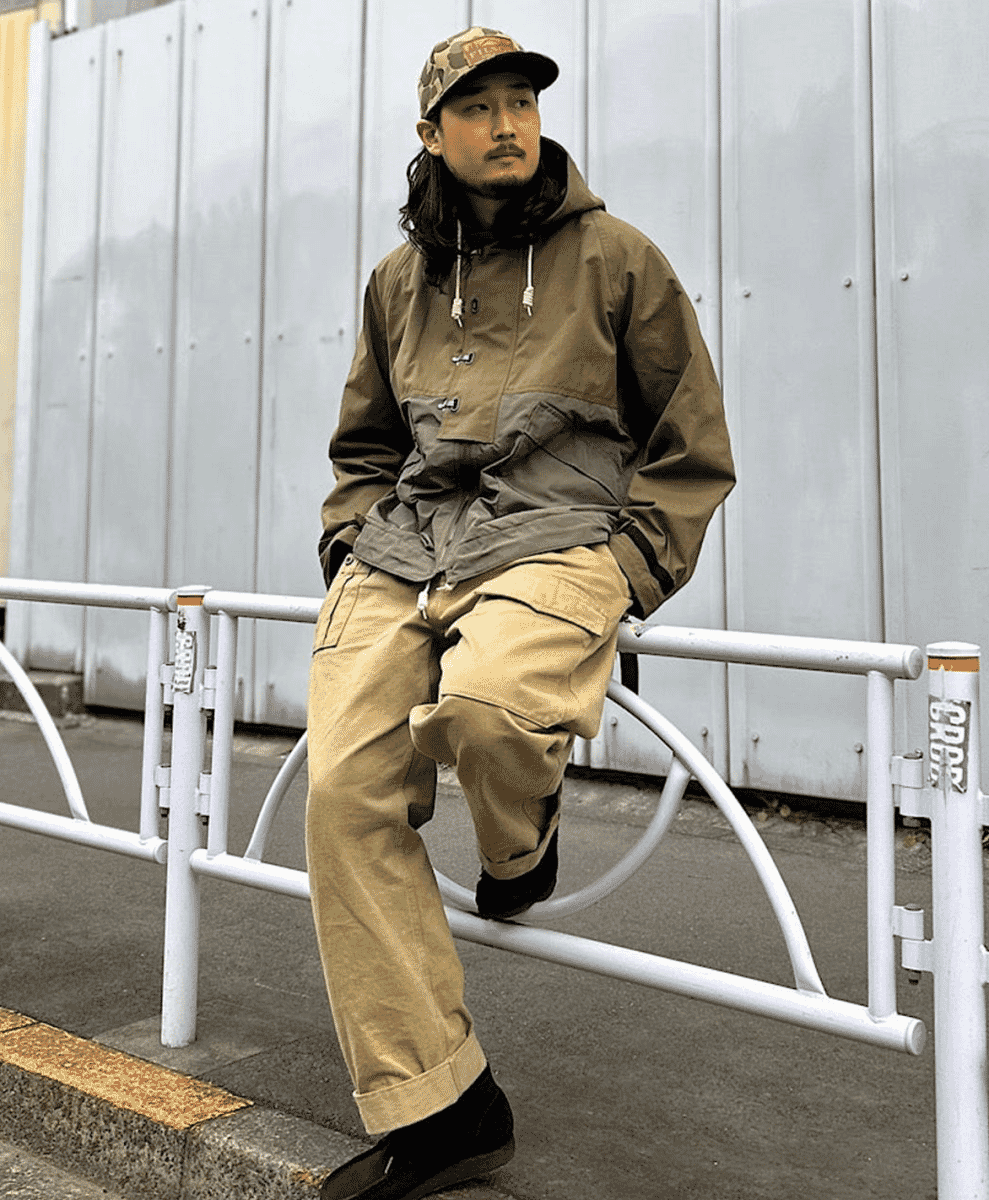
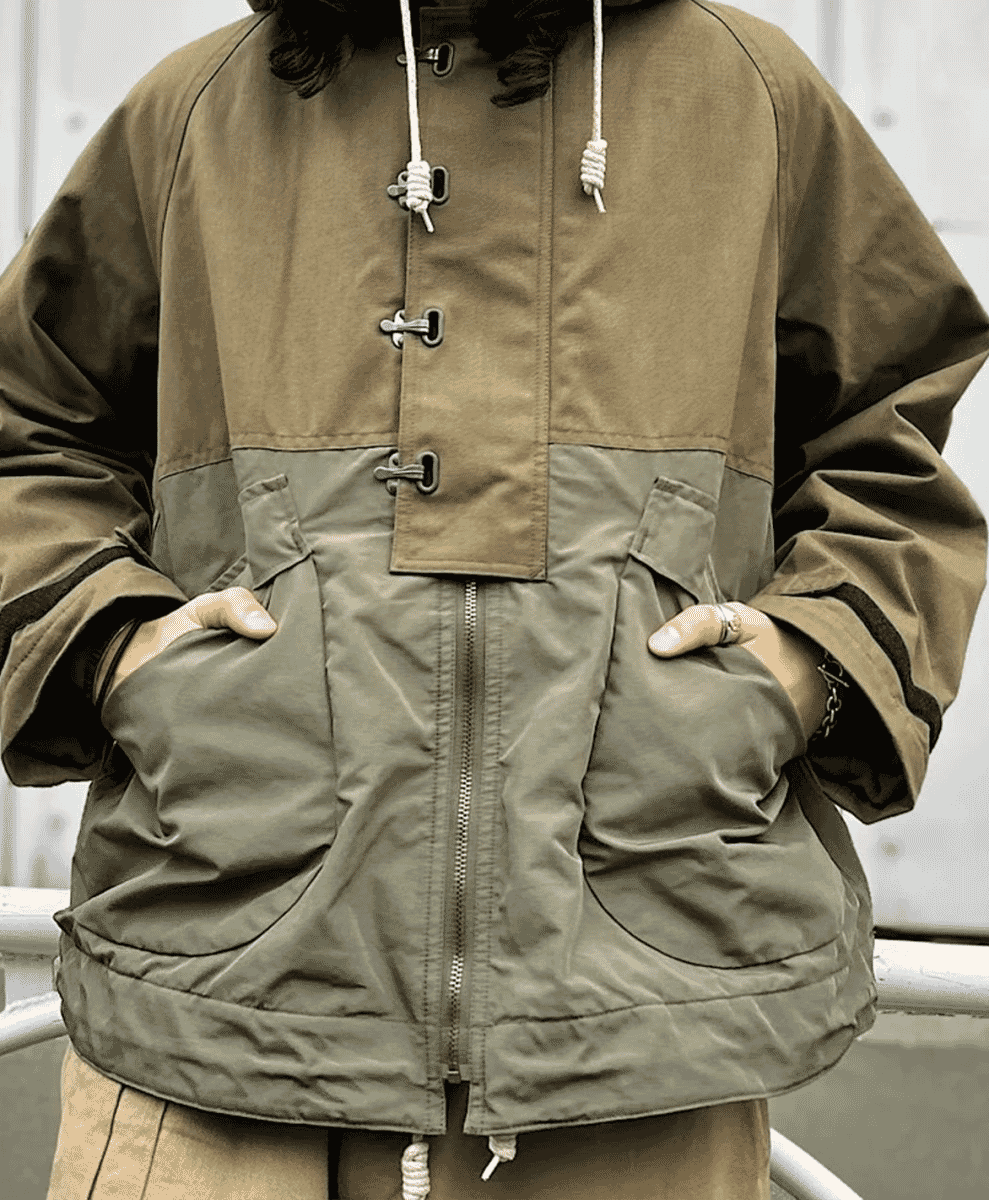
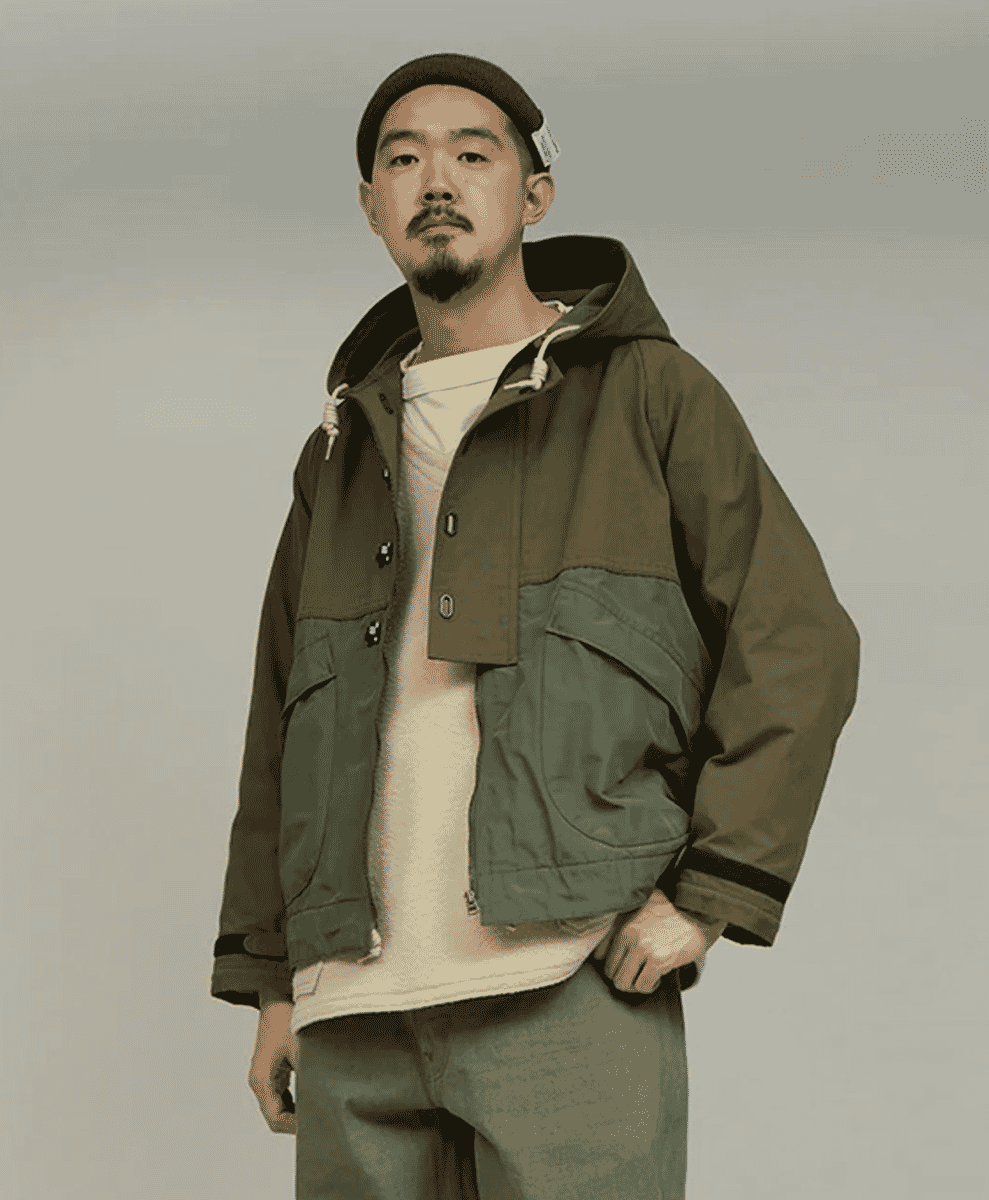
Nigel Cabourn
Nigel Cabourn approaches design like an archivist – drawing from vintage British military and expedition gear to produce outerwear and utility pieces with real character. The Cameraman jacket, Everest Parka and Naval Dungarees are examples of garments that feel authentic but wearable, made in the UK or Japan using hardwearing fabrics like Harris Tweed and Ventile. Every Cabourn piece has a story behind it – not marketing fluff, but genuine research. It’s cult, it’s niche, and totally uncompromising.

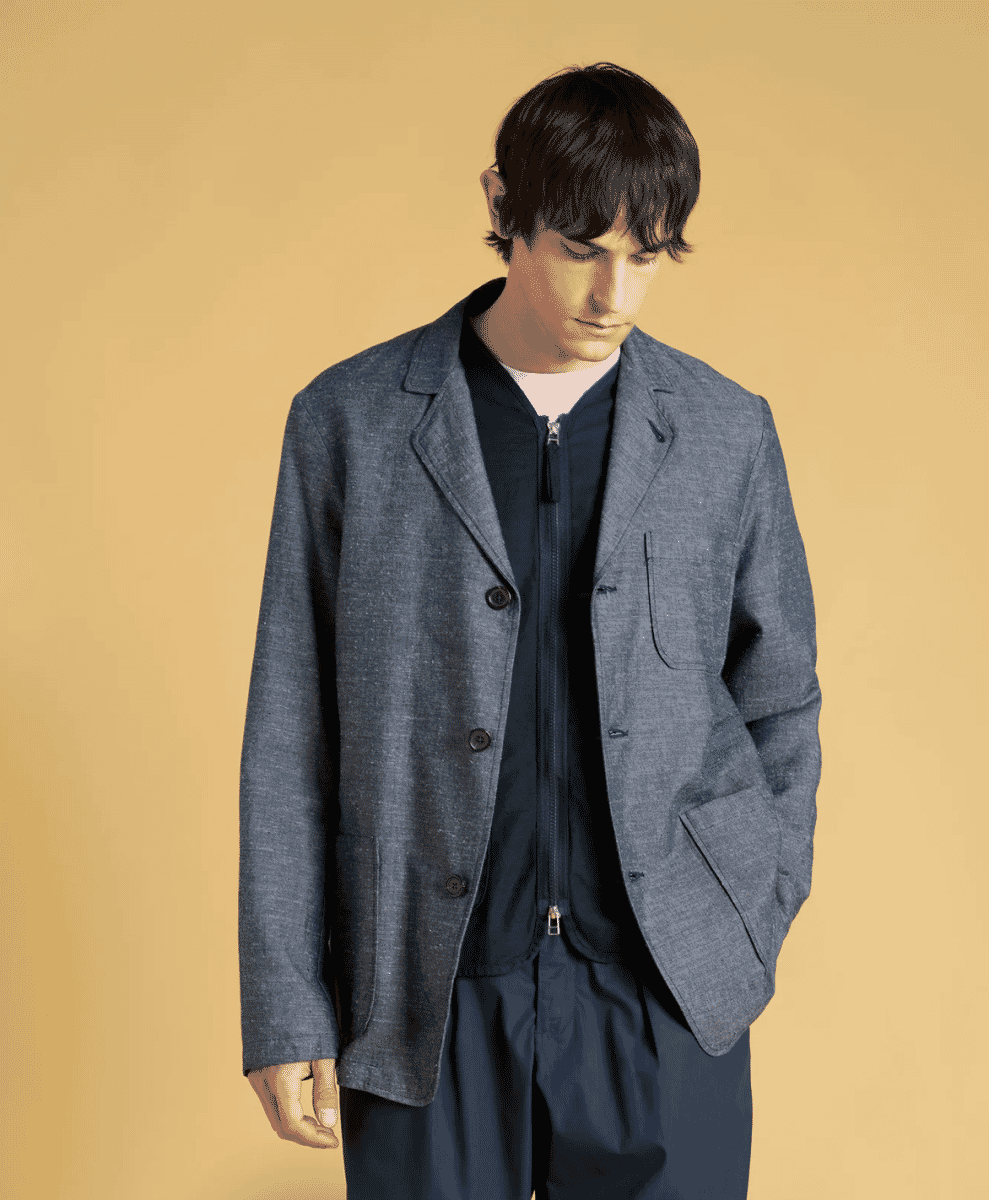
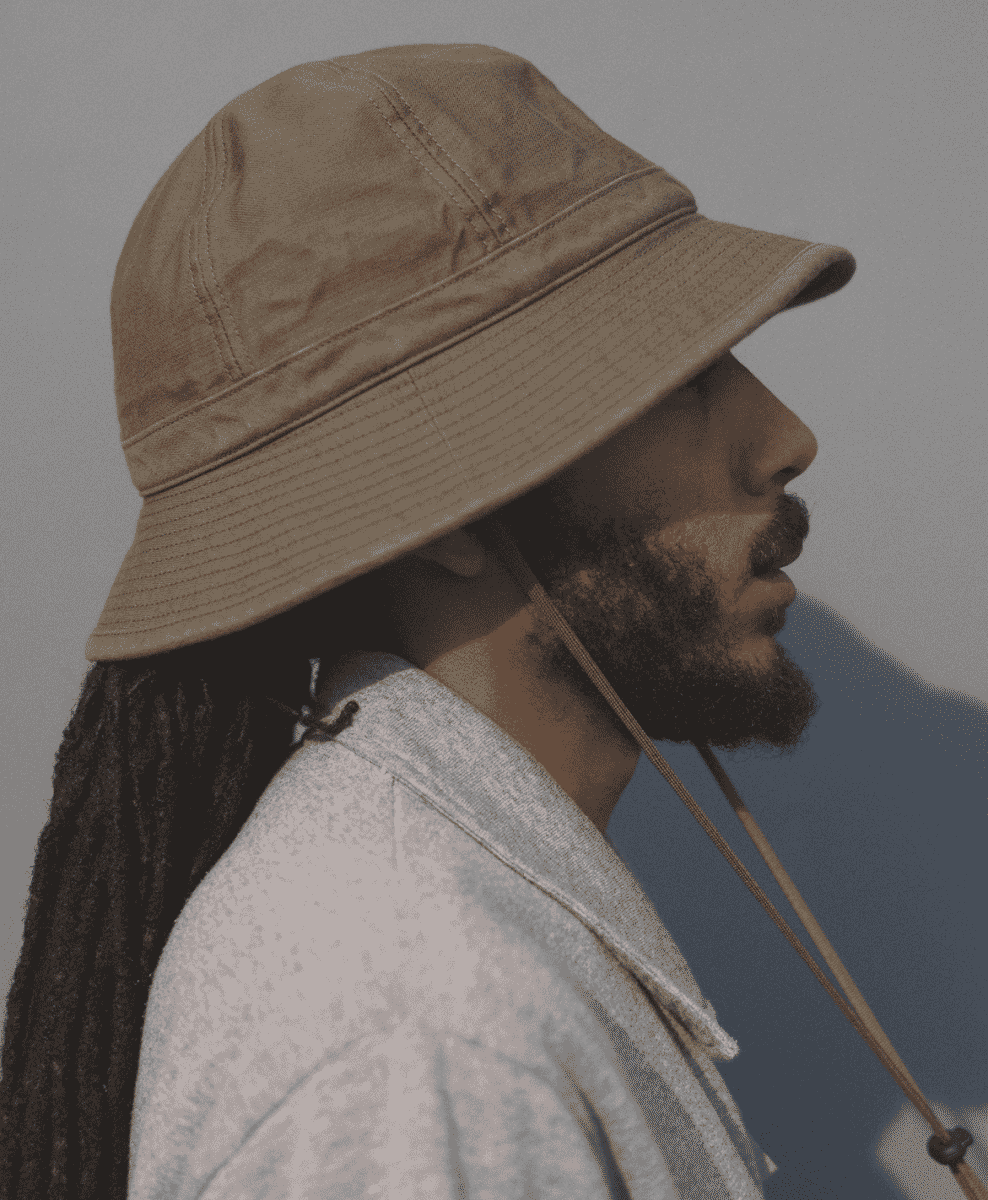
Universal Works
Founded in 2009 by David Keyte, Universal Works takes classic British workwear and gives it a soft, wearable update. The brand’s strength lies in its consistency – easy silhouettes, practical detailing, and a palette that shifts subtly with the seasons. Think chore jackets, drawstring trousers and layered knits – all cut to flatter without feeling fussy. It’s a label that champions real-life dressing – the kind of wardrobe that works just as well in a studio, coffee shop or neighbourhood pub.
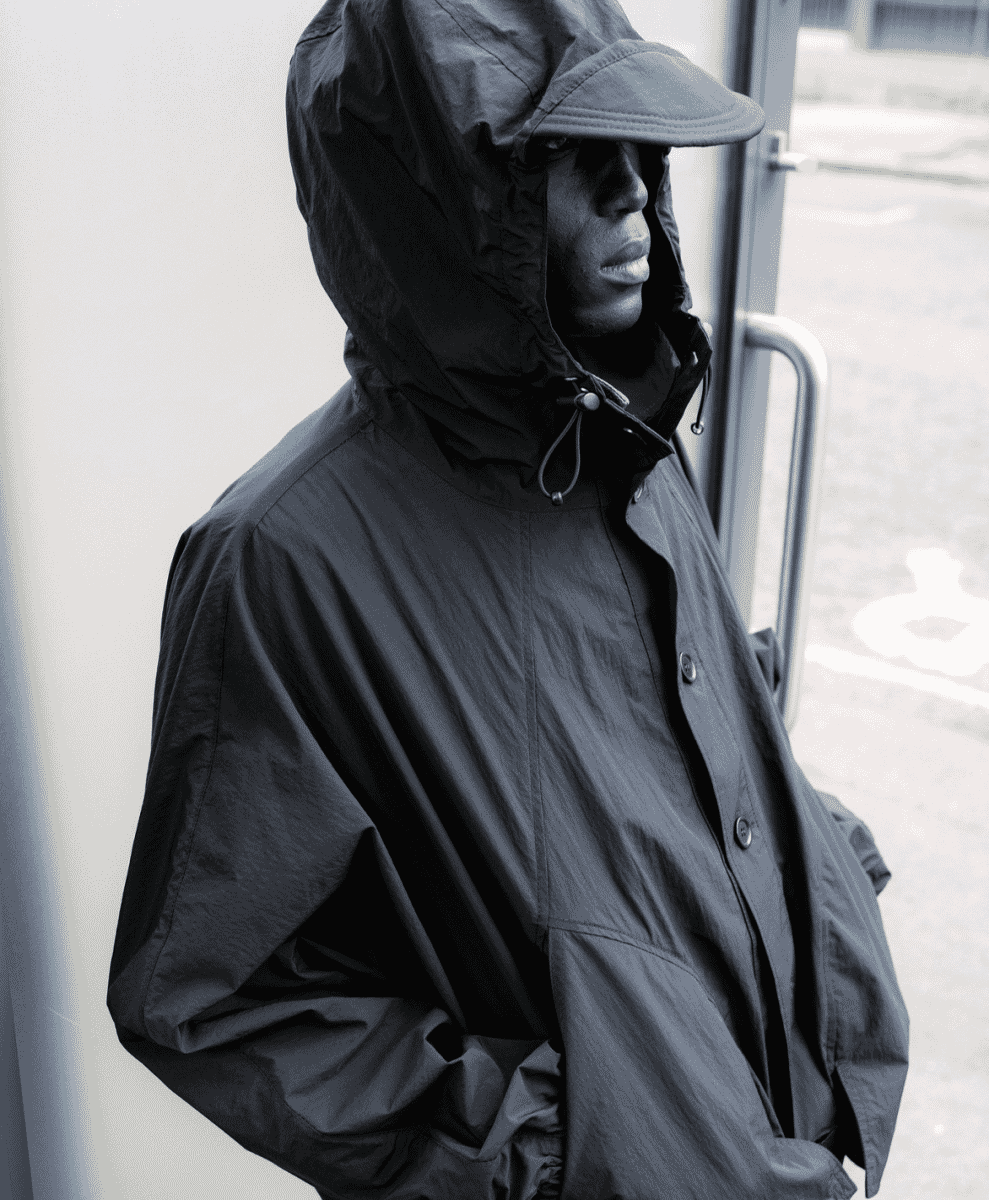
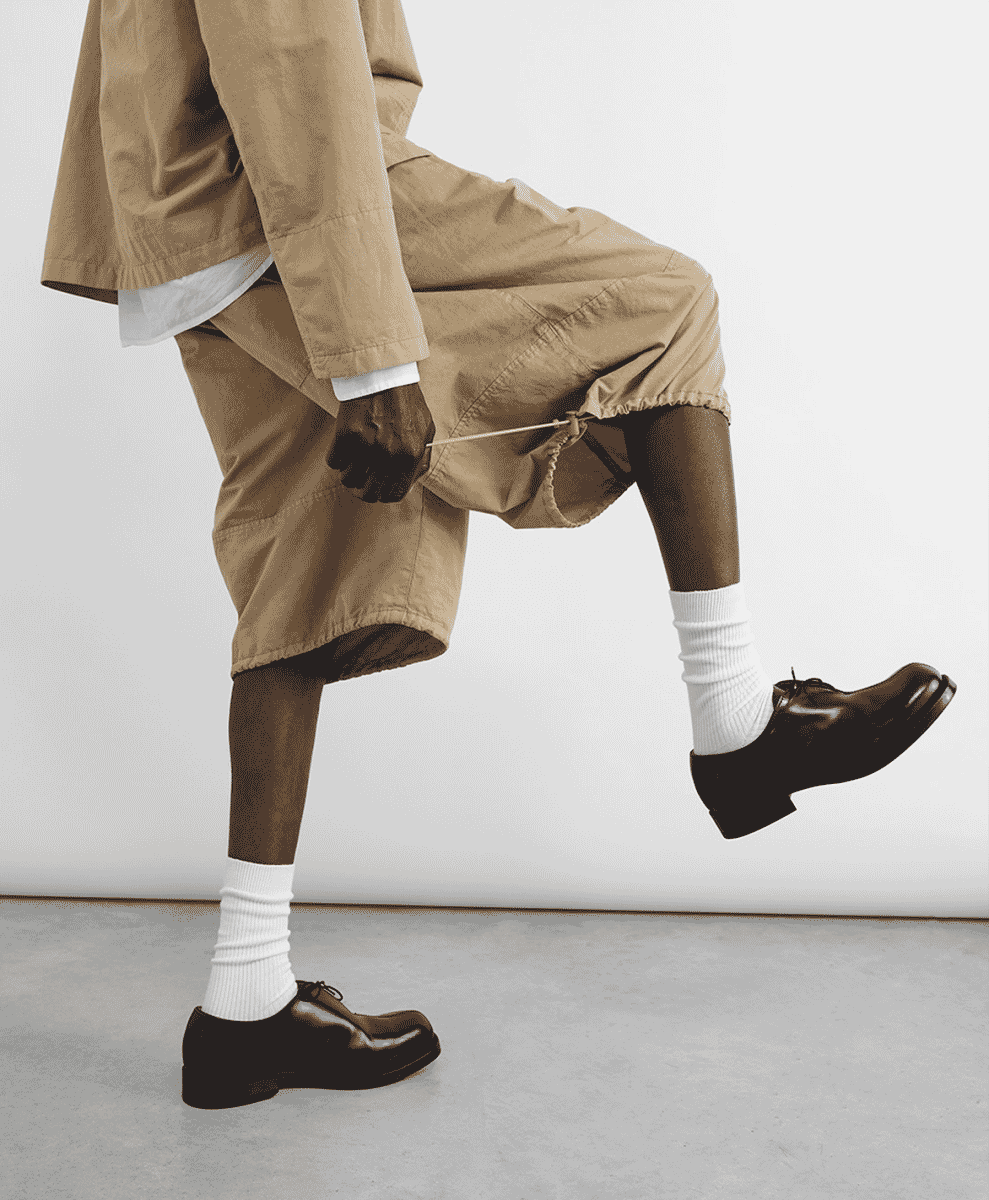
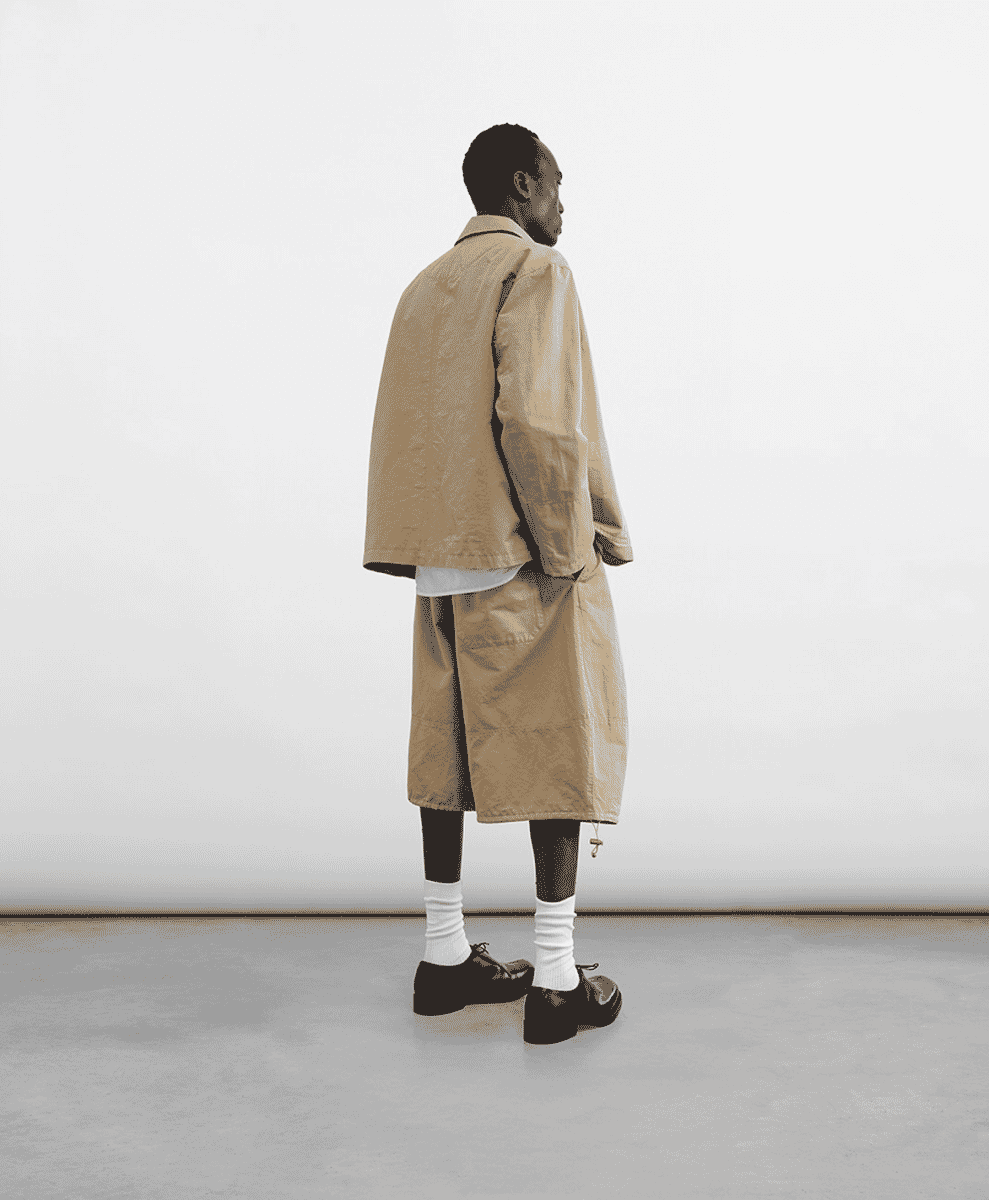
YMC (You Must Create)
YMC has always done things its own way. Since the mid-90s, it’s quietly built a reputation for clothes that are wearable but slightly off-centre – from cropped pleated trousers to oversized knits and workwear-inspired shirting. There’s a strong countercultural thread that runs through each collection, with subtle references to punk, military and skate. The fits are relaxed, the colours muted, and the vibe is creative but grounded. It’s a brand for people who like detail – but not logos.
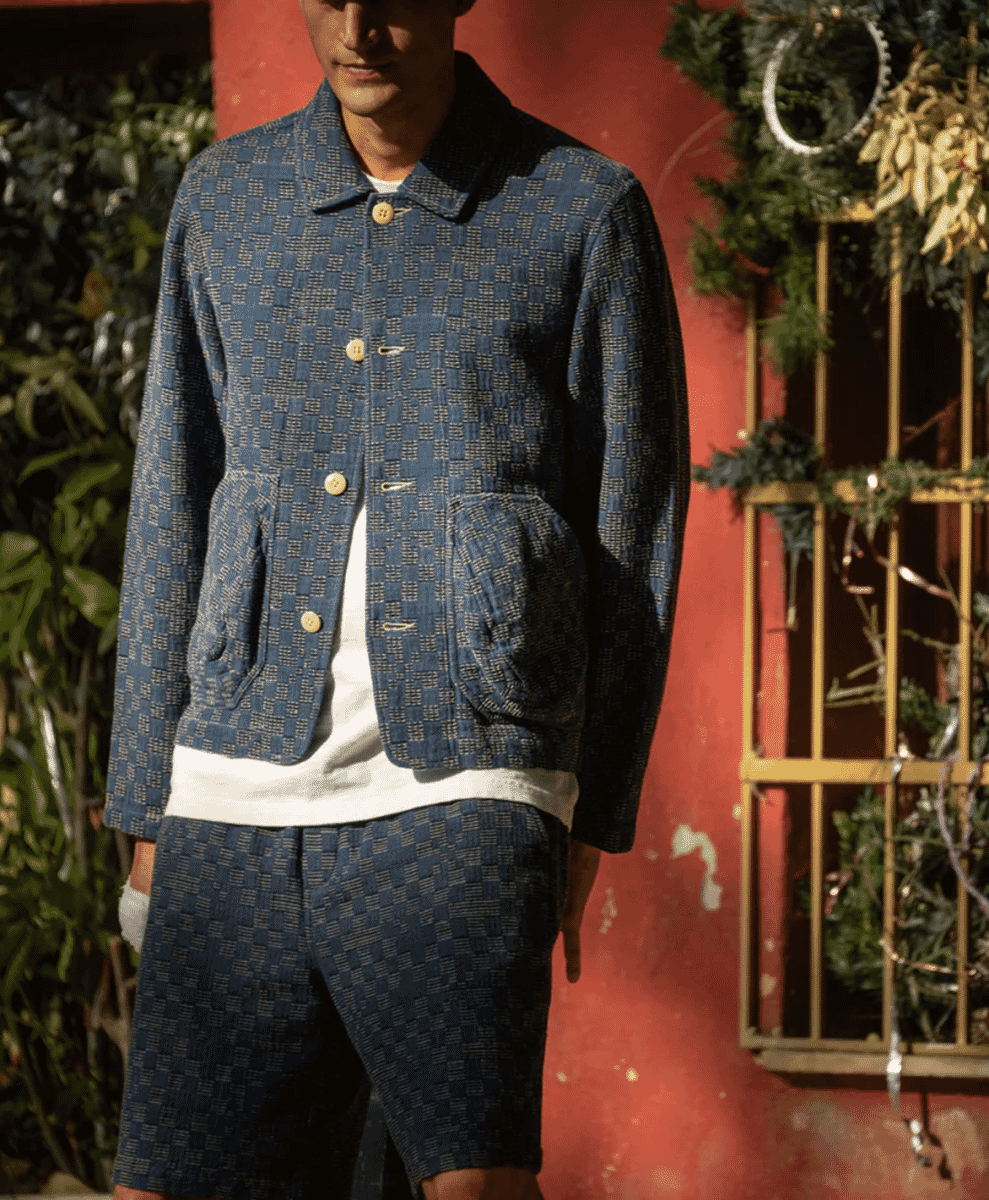
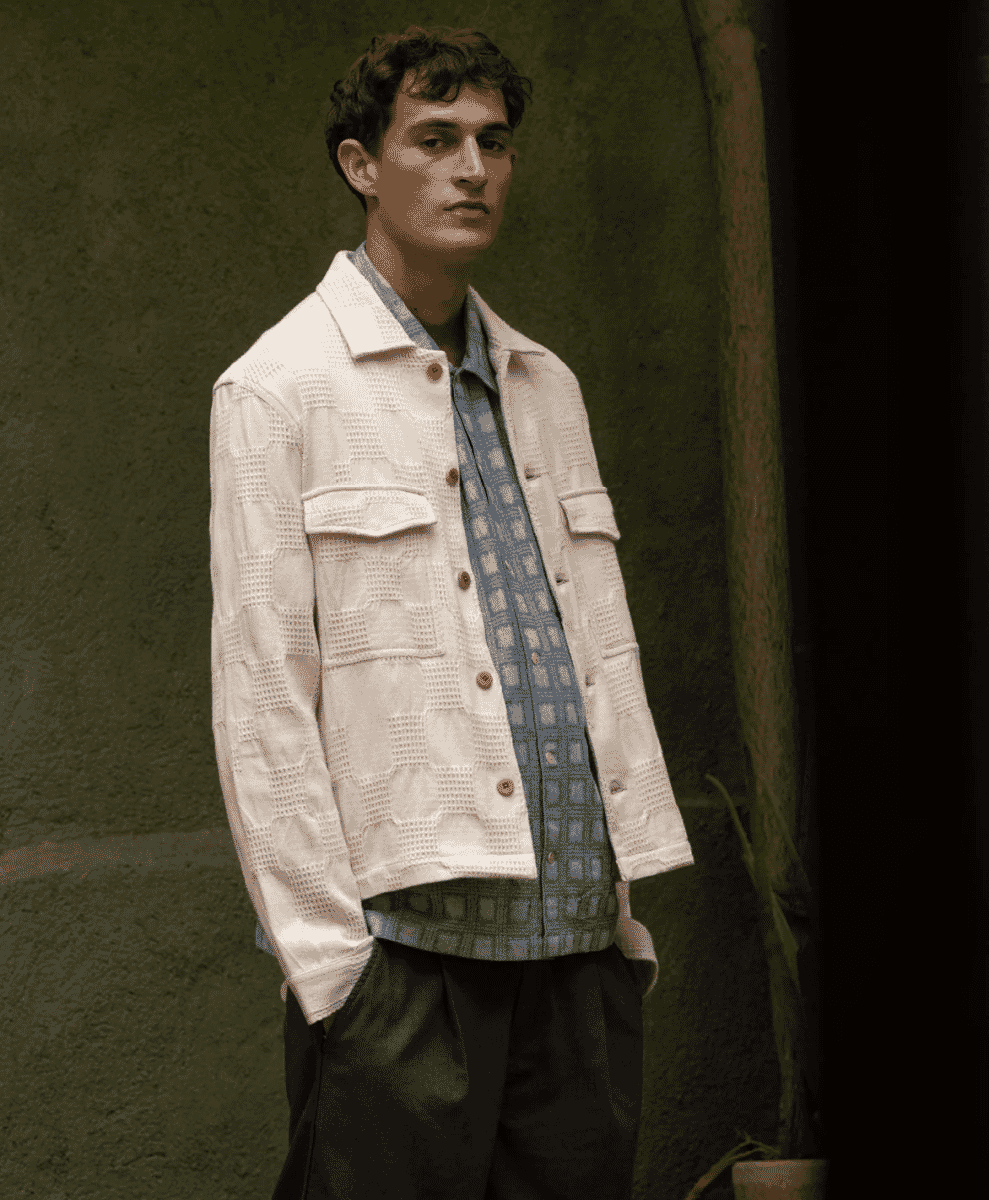
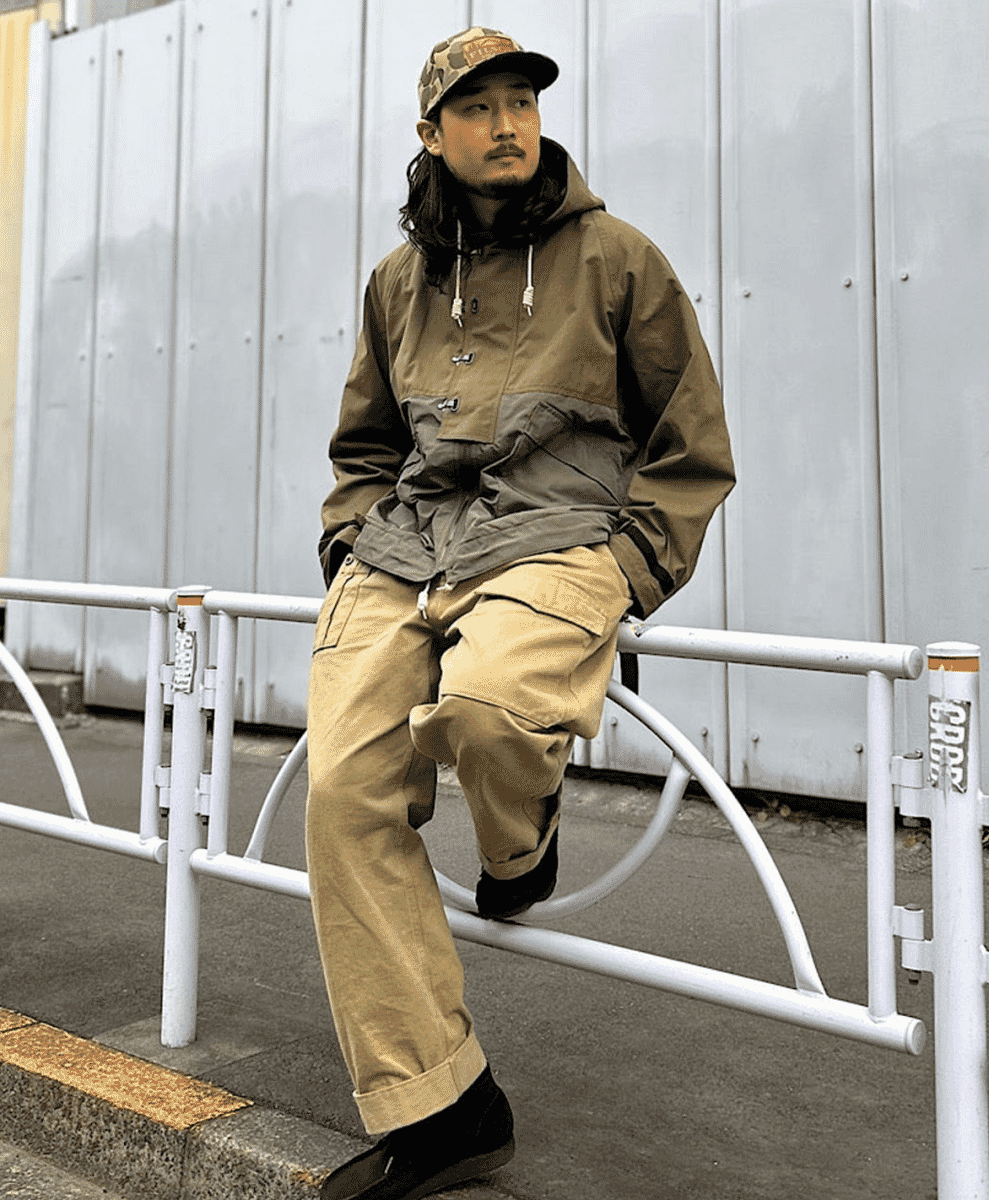
Folk
Folk operates at the smarter end of British casualwear, delivering pared-back essentials that feel tactile and quietly refined. It’s the details that elevate it – tonal paneling, contrast trims, soft textures – always understated, never over-designed. The collections are tight, cohesive and often produced in natural or garment-dyed fabrics. Folk is particularly strong on transitional layering pieces – the sort of thing that works in spring, autumn or just about any pub garden in between. Think modern menswear without the ego.
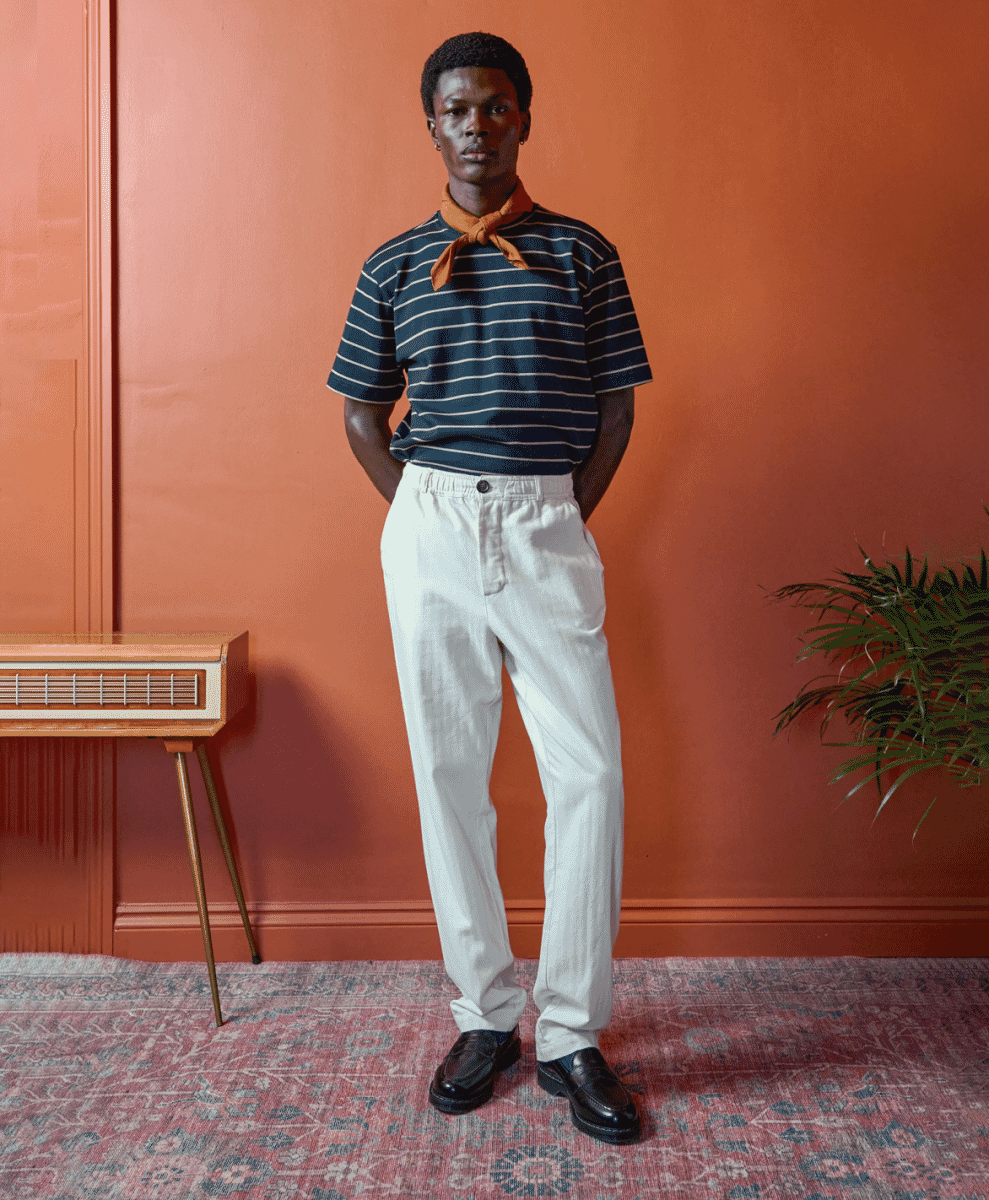
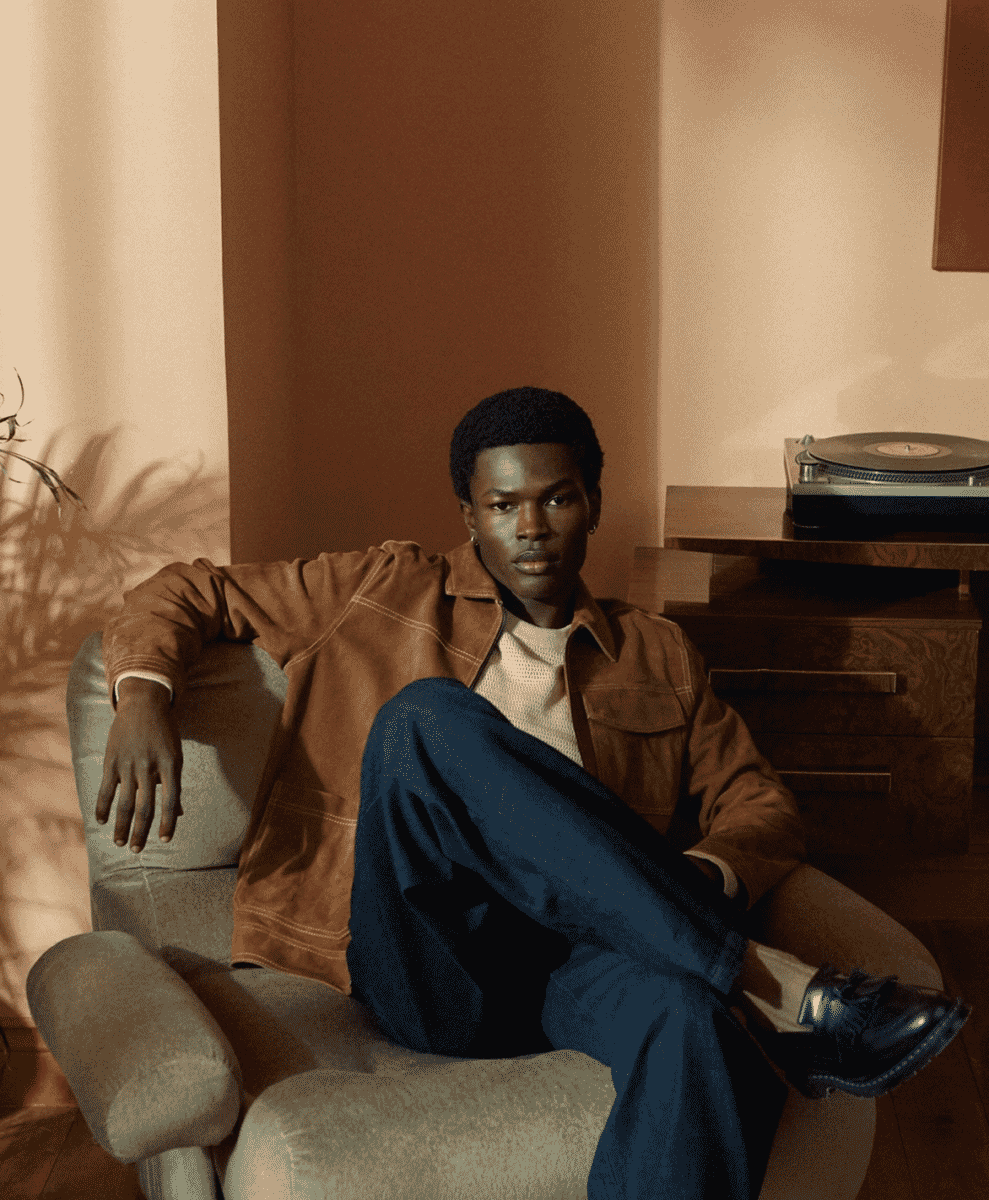
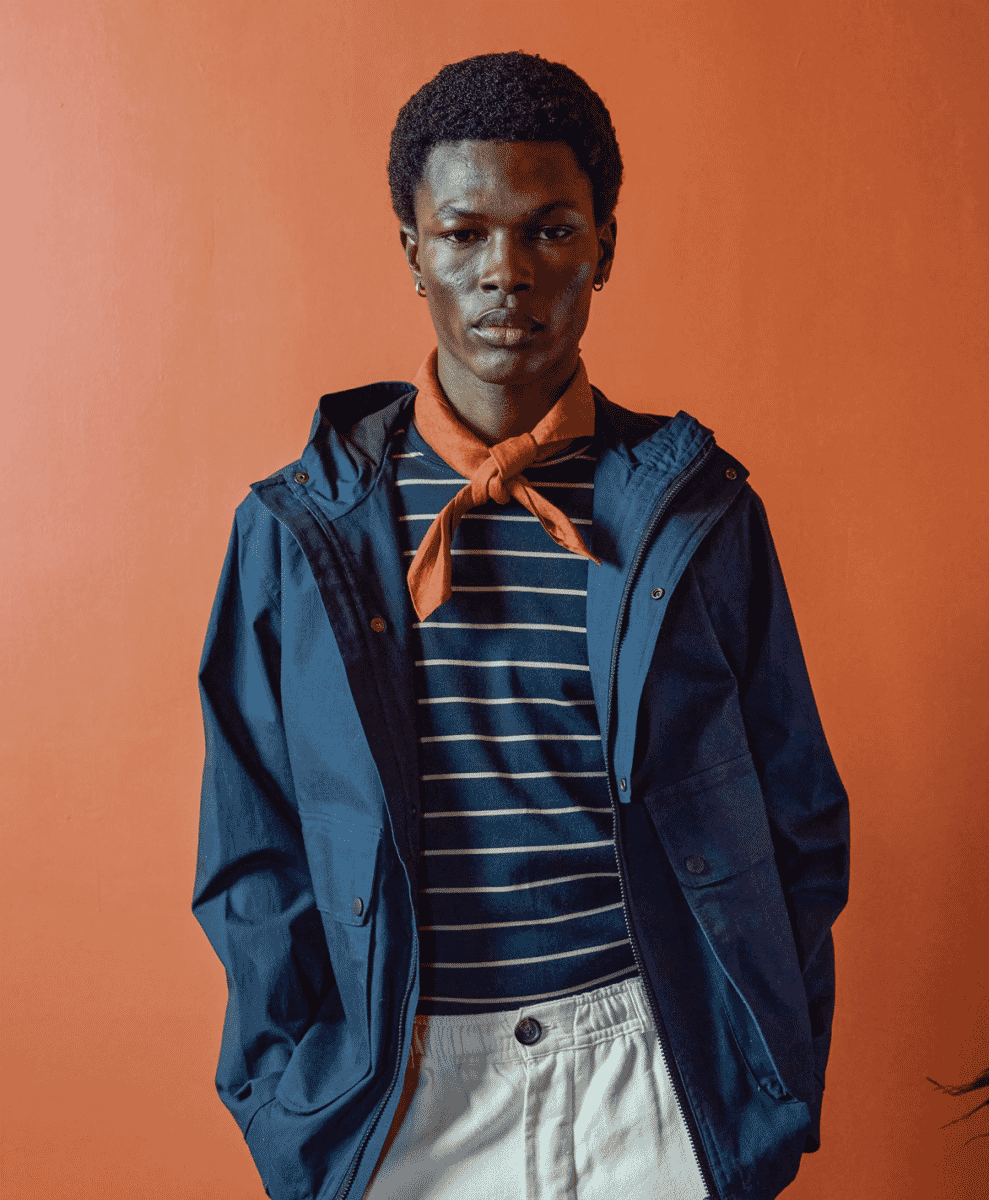
Oliver Spencer
Oliver Spencer strikes a rare balance between structure and ease. Blazers without padding, trousers with a tailored line but a drawstring waist. The brand’s foundations are in British tailoring, but its execution is firmly contemporary. Spencer’s use of organic fabrics and support for British manufacturing give it added depth, but the appeal is simple: clothes that look relaxed but intentional. Ideal for a city wardrobe that needs to flex between smart and casual without leaning too far in either direction.
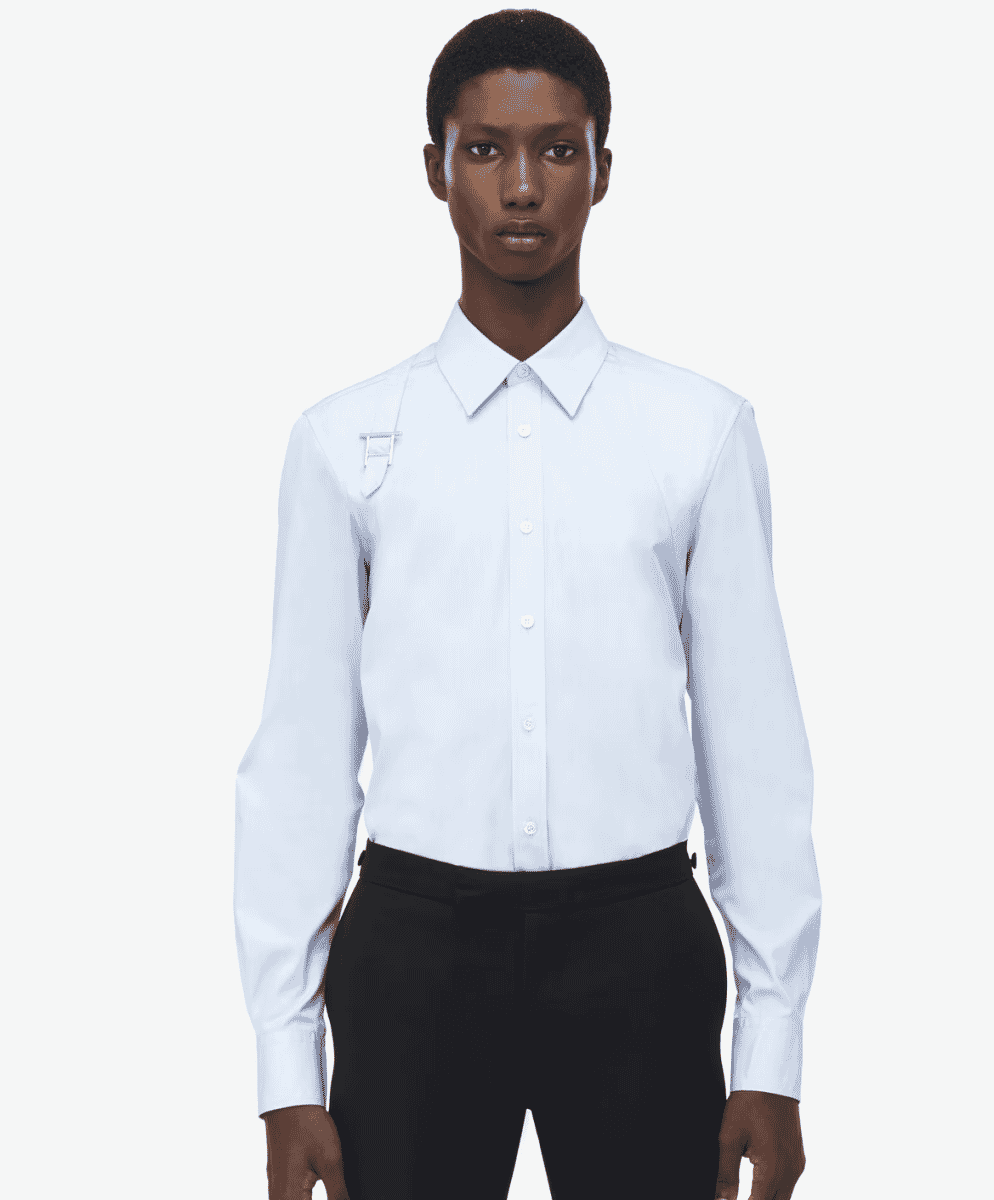
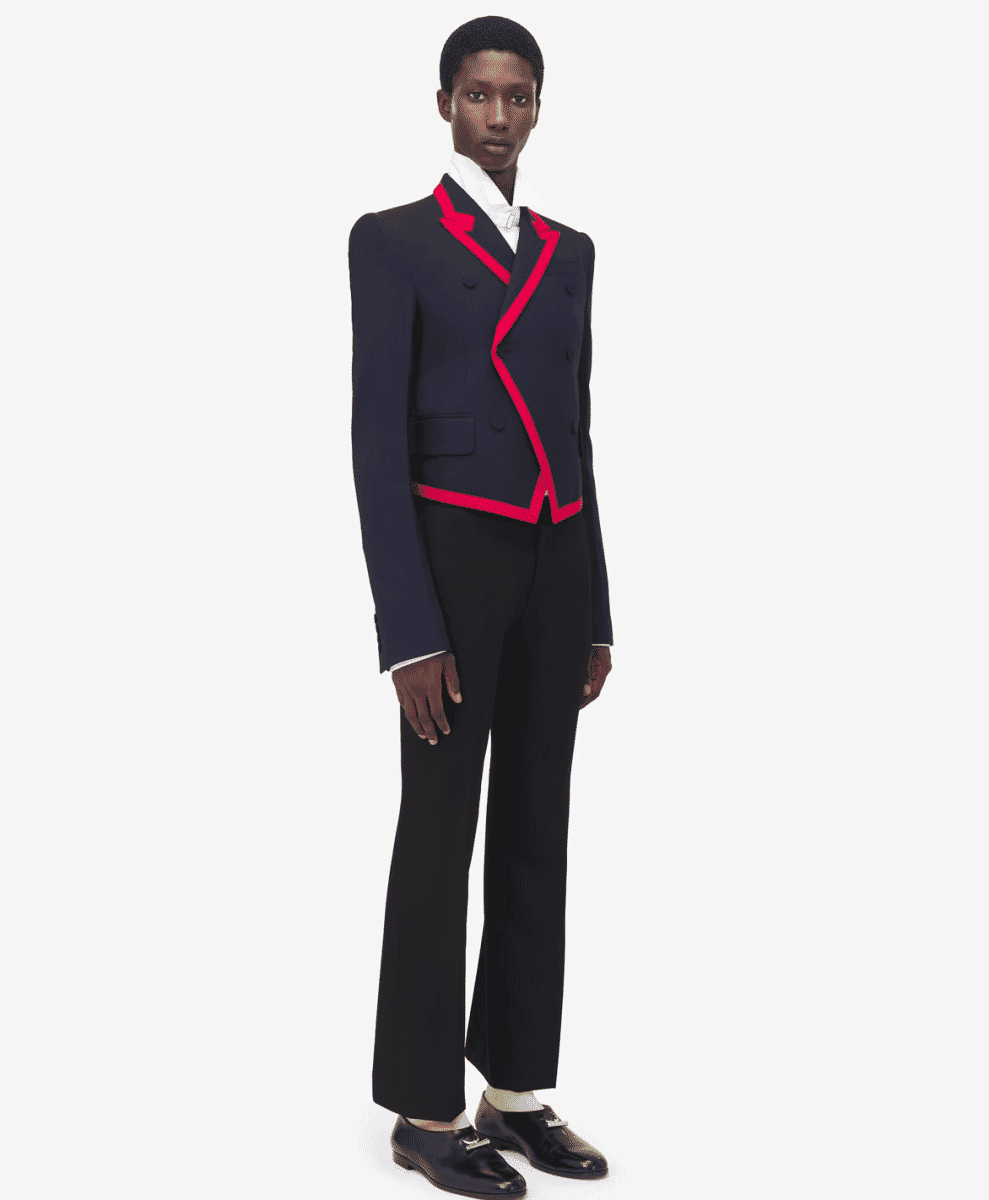
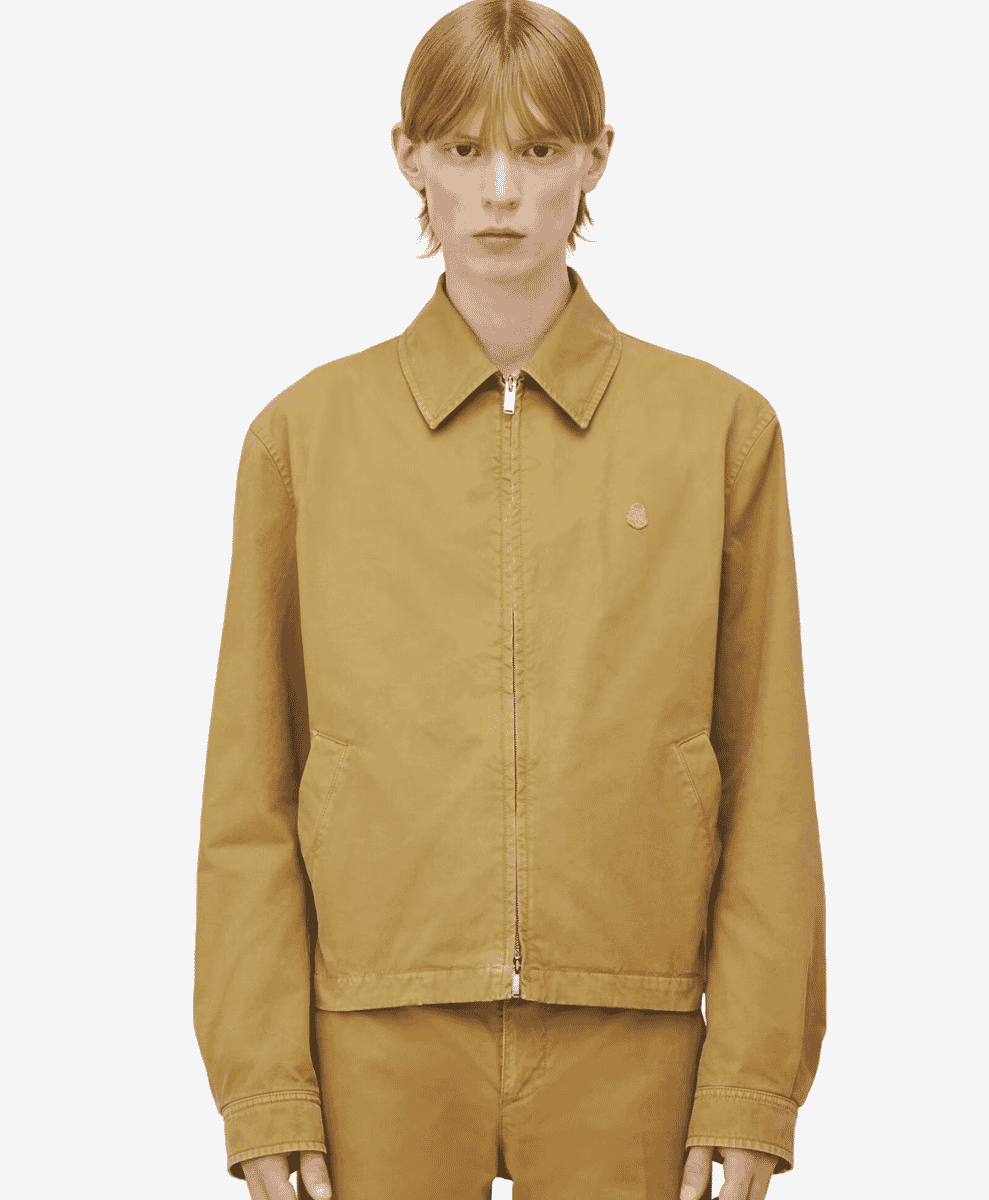
Alexander McQueen
McQueen’s menswear, though housed within a high-fashion label, remains rooted in British tailoring tradition. Trained on Savile Row, Lee Alexander McQueen brought technical rigour to some of the most dramatic and emotional designs in fashion history. Today, the house continues to produce sharply tailored suits, sculptural outerwear and oversized sneakers with a recognisably gothic edge. There’s romance, rebellion and precision in every piece. McQueen is not for the faint-hearted, but it’s one of the few fashion brands still grounded in British craft.
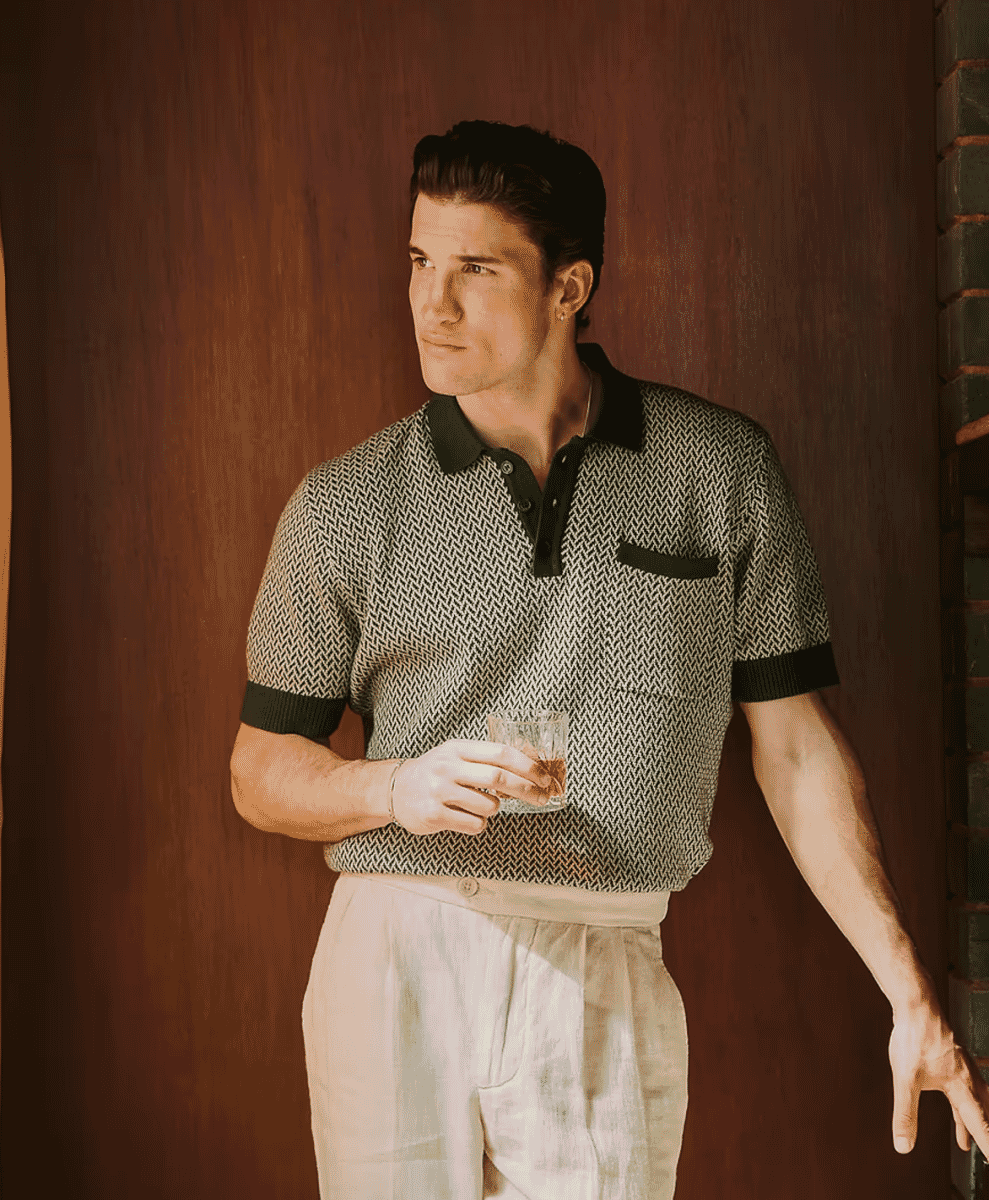
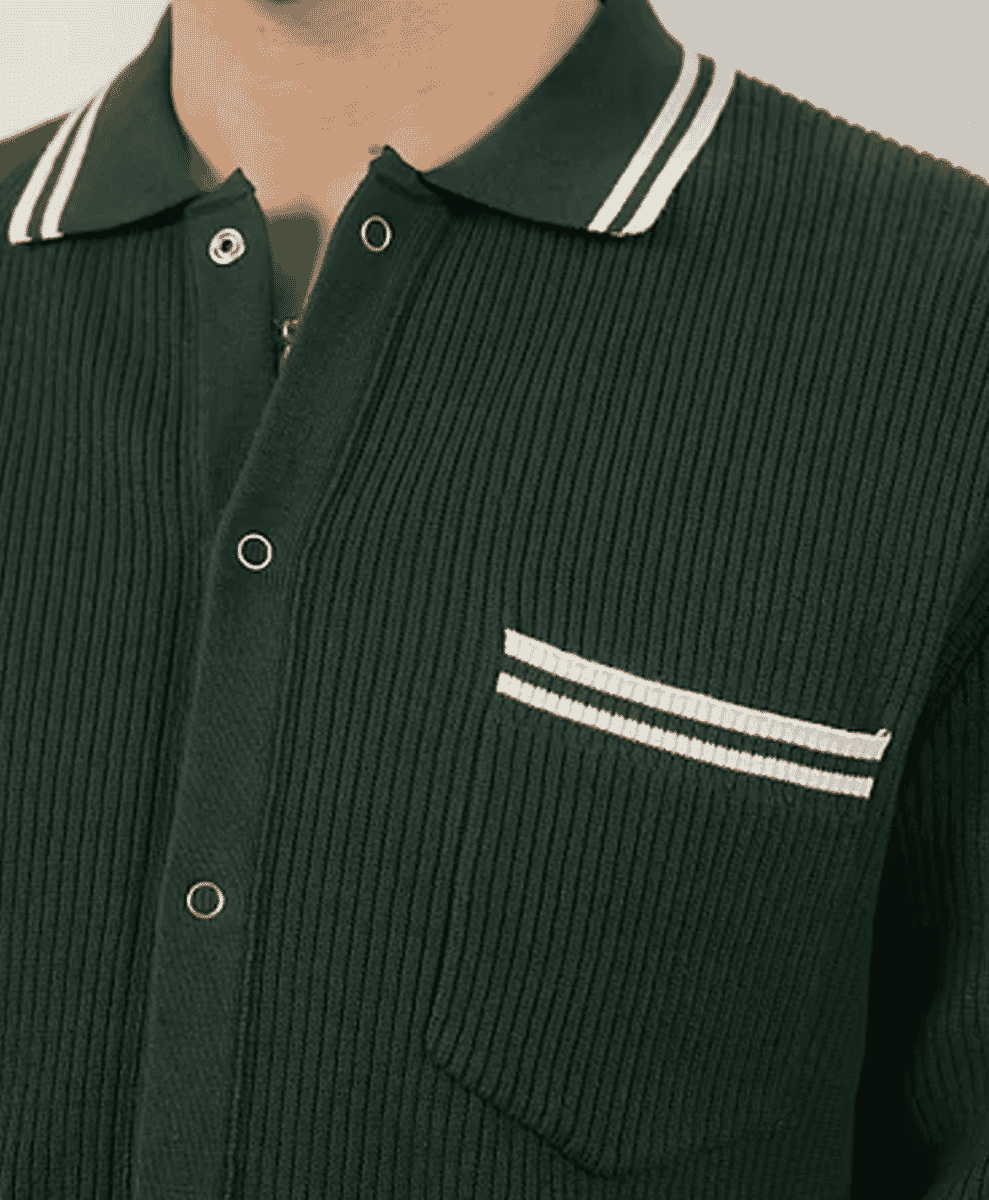
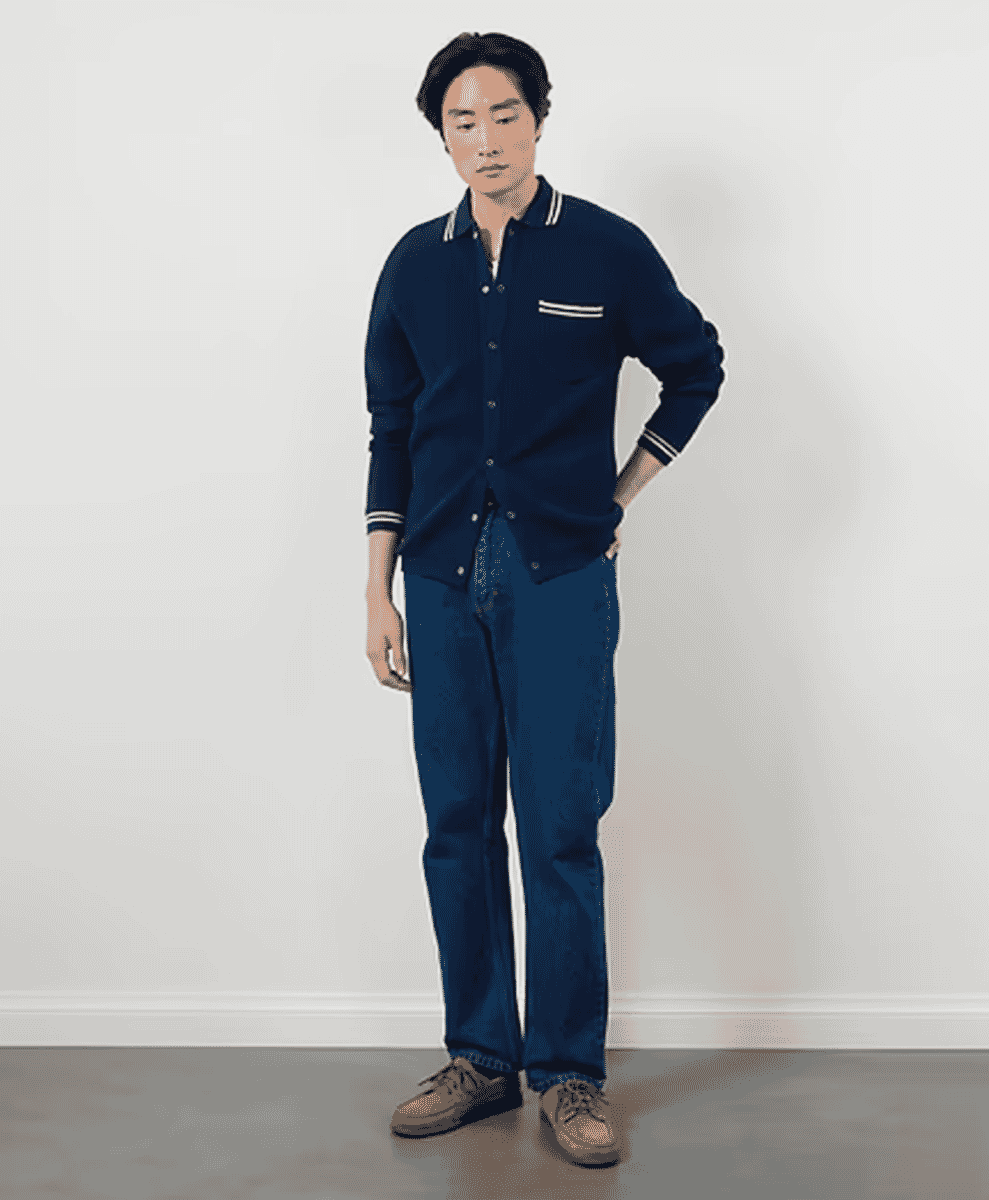
Percival
Percival describes its style as “subverting the classics” – and that’s about right. Based in East London, the brand reimagines traditional menswear with a modern, often irreverent twist. It’s known for its playful embroidery, textured overshirts, and tongue-in-cheek graphics – think cricket jumpers with fox motifs or tailoring made from towelling. While the branding leans cheeky, the materials are serious – Portuguese cottons, British wool, Italian flannel. Percival has become a cult favourite among creatives, stylists and Instagram dressers alike.
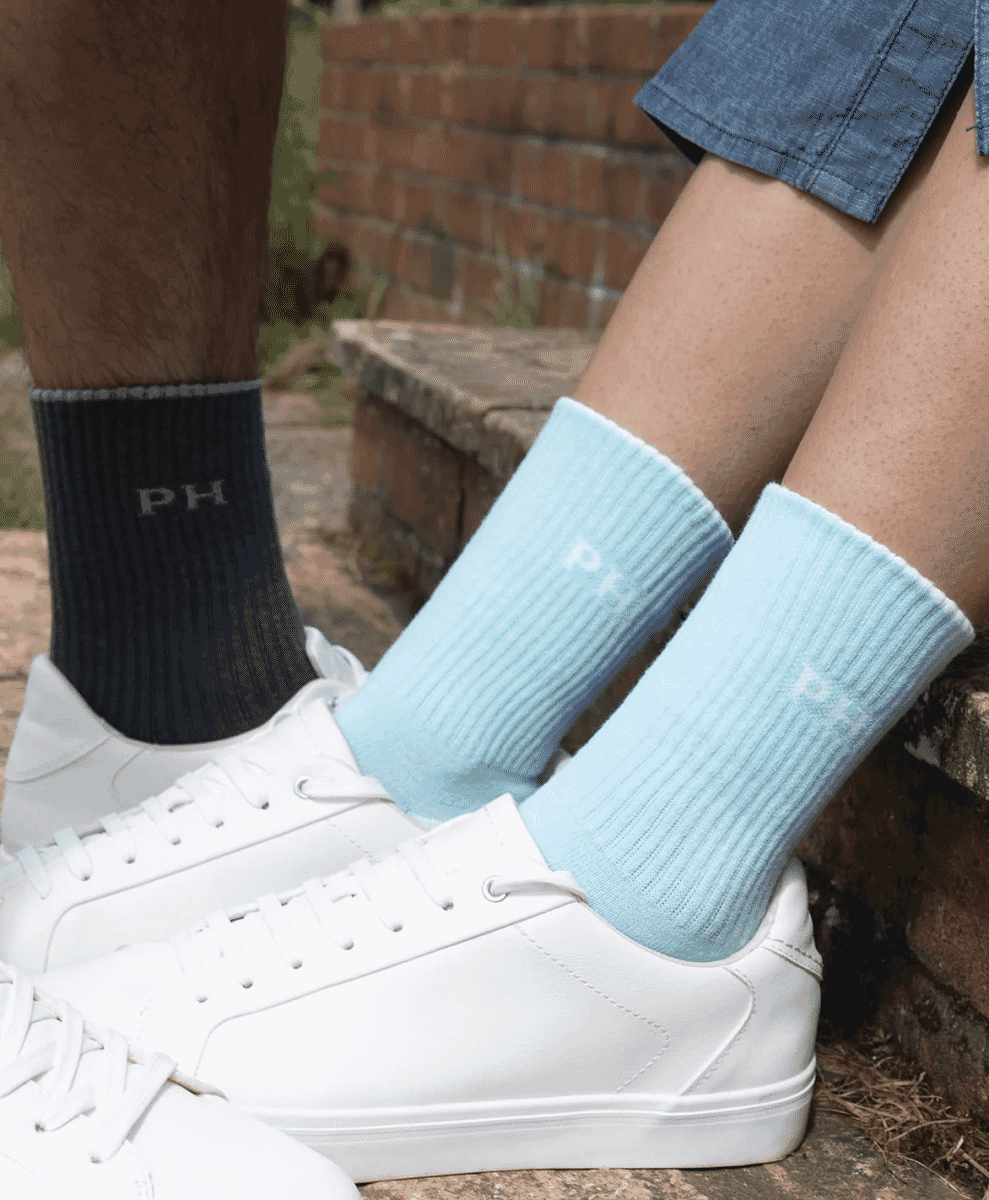
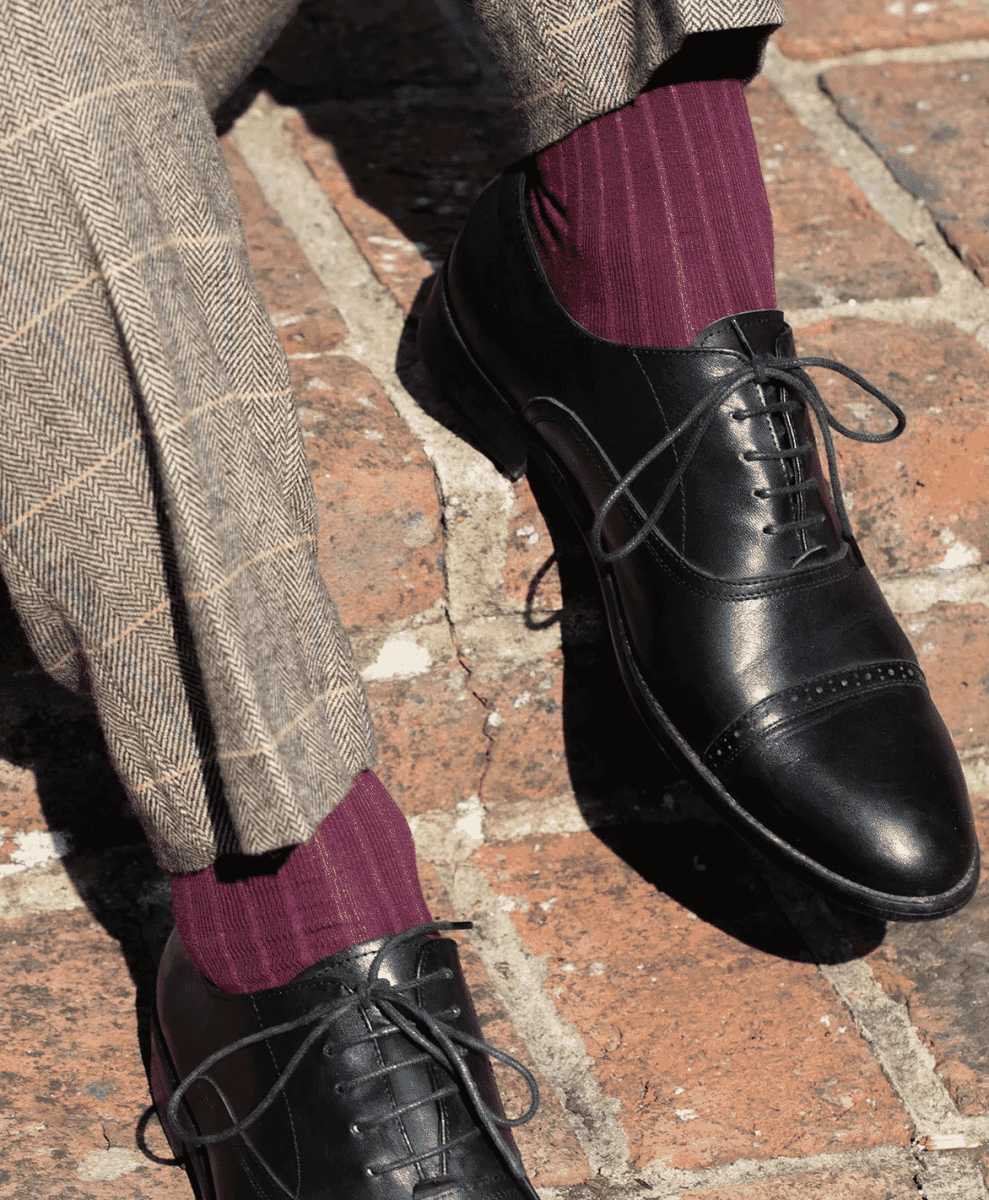
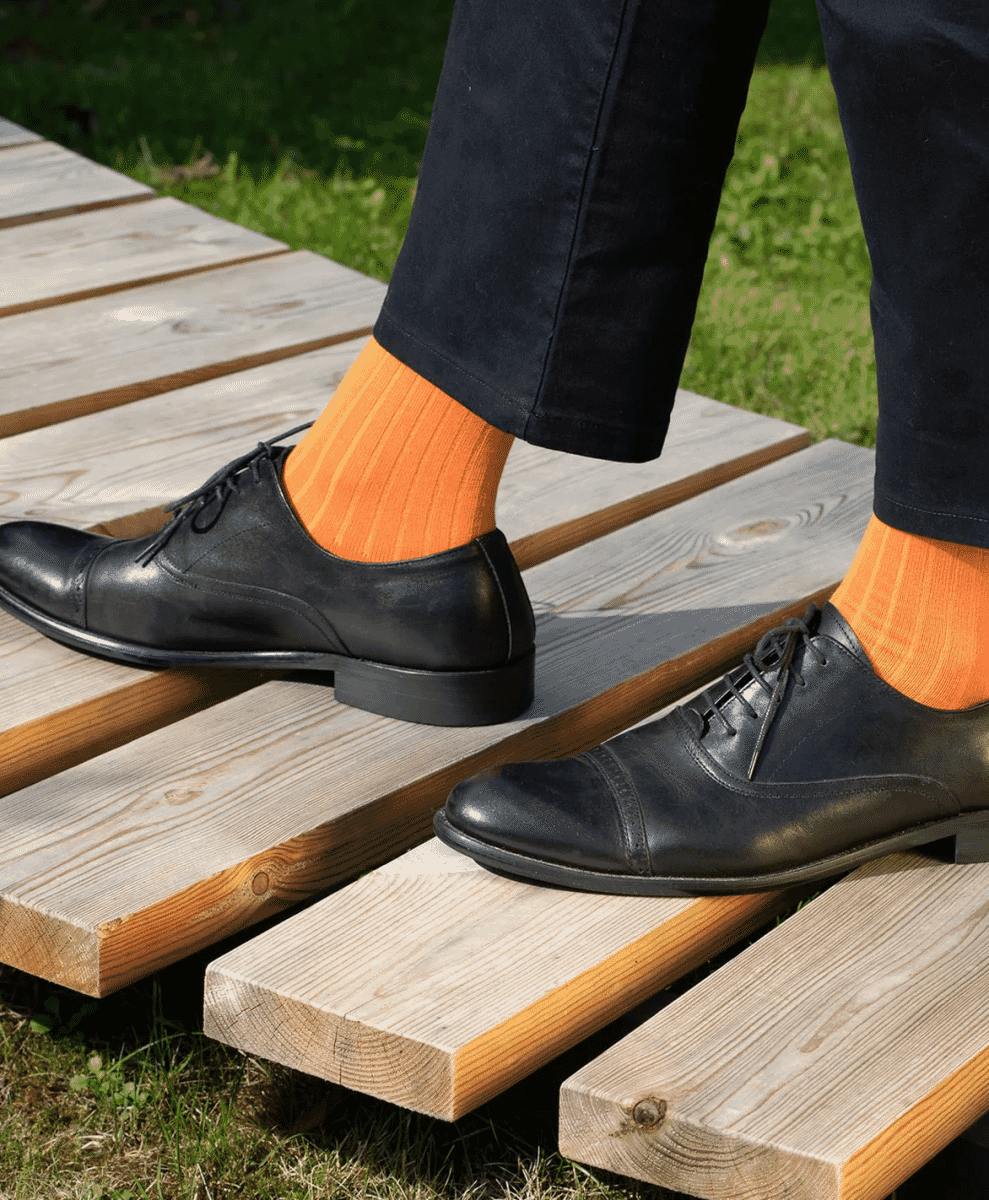
Peper Harow
Peper Harow is a premium sockmaker based in West Sussex, producing colourful, contemporary designs using ethical practices and long-staple cotton. The socks are knitted in England, often in small batches, with attention paid to every detail – from hand-linked toes to reinforced heels. Unlike novelty socks, these are fun without being throwaway – stripes, geometrics and unexpected colour combinations that sit comfortably between classic and modern. For men who appreciate craftsmanship but aren’t afraid to wear something a little more expressive.
Next up: Our pick of the UK's best contemporary menswear stores.




